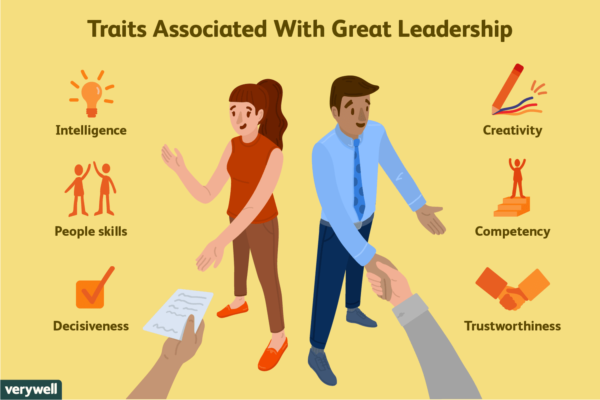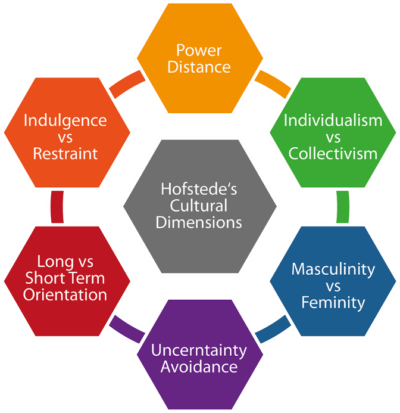Coaching Leaders – Workshop 1 (Introduction To Coaching)
The Appleton Greene Corporate Training Program (CTP) for Coaching Leaders is provided by Dr. Jinks, PhD, MBA, BCC Certified Learning Provider (CLP). Program Specifications: Monthly cost USD$2,500.00; Monthly Workshops 6 hours; Monthly Support 4 hours; Program Duration 12 months; Program orders subject to ongoing availability.
If you would like to view the Client Information Hub (CIH) for this program, please Click Here
Learning Provider Profile
As an award-winning professional photographer, Dr. Jinks knows the value of viewing challenges through the right lenses to achieve success. After a successful 22-year career in organizational leadership, Dr. Jinks changed lenses to serve leaders from another perspective. Today, he coaches and trains leaders and coaches in both the social and corporate sectors. He is Founder and President of a coaching and training organization based in Columbia, SC. Dr. Jinks is a multi-best-selling author and member of the National Association of Experts, Writers, and Speakers. This Coaching Leaders program is based on Dr. Jinks’ Organizational Leadership Coaching Training (OLCT), a 30-hour, CCE-accredited online program that certifies coaches.
With a Ph.D. in Organizational Leadership, Dr. Jinks regularly contributes to Forbes.com as a member of the Forbes Coaches Council. He is a Board Certified Coach, certified adjunct coach and trainer with Leadership Systems, Inc., and certified Influencer™ trainer with VitalSmarts®. He is also certified as an Academy of Choice coach. He is a teaching supporter of the Right Question Institute and holds a Harvard Business School Certificate in using the Question Formulation Technique™ (QFT).
Dr. Jinks has been featured as a GameChanger® and a Master of Success® in USA Today and The Wall Street Journal respectively, for his fresh take on strategy and leadership through a strategic coaching continuum. He was recognized as one of the Top 10 Most Influential People in Leadership Coaching by CIO Views Magazine, and as one of the 10 most successful leadership coaches to watch in 2024 by Enterprise Wired Magazine. His speaking stages range from The Citadel to Universal Studios, and from TEDx to The United Nations. Dr. Jinks’ globally-acclaimed podcast, The Leadership Window is a Feedspot Top-10 podcast for social sector leadership.
Dr. Jinks’ rapid success as a coach earned him a spot as keynote speaker at the Global LEAP Summit and an invitation to co-author a book, along with such master coaches as Marshall Goldsmith, Mark Thompson, Marc Steinberg, and Chicken Soup for the Soul creator Jack Canfield. Dr. Jinks’ work with Canfield on their second collaborative book achieved Amazon best-seller status in its first week and earned Dr. Jinks an Editor’s Choice Award for his contribution. Dr. Jinks’ signature solo work is titled “Strategic Fail: Why Nonprofit Strategic Planning Fails, and How to Fix It,” which premiered on Amazon as a #1 New Release in February 2018. The 2nd edition is currently in development.
MOST Analysis
Mission Statement
In this introductory workshop, participants will begin to understand how coaching differs from other management disciplines. This module will cover a brief history outlining the evolution of coaching as a practice and highlighting some of the research on the impact of leadership coaching in the workplace. Participants will be exposed to the differences between coaching, consulting, and counseling. This workshop will also highlight the different types of coaching and help participants understand the unique nuances of leadership coaching. In addition to defining leadership coaching, participants will also be introduced to the basic tenets of leadership, from definitions to various theories to diverse styles. The critical aspect of this program is that it centers on leadership coaching as opposed to health coaching, business coaching, performance coaching, et cetera. In order to be effectively trained in leadership coaching, one must first have a full grasp of the overall objective, which is the development of leadership among the organization’s people. The overarching objective of this orientation workshop is to get participants comfortable with the concept of coaching as an optional and powerful tool for leading and managing others. Activities will include role plays, foundational tenets of leadership, and short case studies on identifying the differences between coaching and other managerial tools and disciplines. This module will also serve to prepare participants for the content that will be covered throughout the course. Emphasis is placed on the notion that this program is designed to teach leaders to coach other leaders to be better leaders.
Objectives
01. Defining Coaching: departmental SWOT analysis; strategy research & development. Time Allocated: 1 Month
02. Differentiating Coaching: departmental SWOT analysis; strategy research & development. Time Allocated: 1 Month
03. History of Coaching: departmental SWOT analysis; strategy research & development. Time Allocated: 1 Month
04. Coaching Research: departmental SWOT analysis; strategy research & development. Time Allocated: 1 Month
05. Coaching Types: departmental SWOT analysis; strategy research & development. Time Allocated: 1 Month
06. Leadership Focus: departmental SWOT analysis; strategy research & development. Time Allocated: 1 Month
07. Defining Leadership: departmental SWOT analysis; strategy research & development. 1 Month
08. Coaching Basics: departmental SWOT analysis; strategy research & development. Time Allocated: 1 Month
09. Internal Coaching: departmental SWOT analysis; strategy research & development. Time Allocated: 1 Month
10. Coaching Mindset: departmental SWOT analysis; strategy research & development. Time Allocated: 1 Month
11. Ability to Account: departmental SWOT analysis; strategy research & development. Time Allocated: 1 Month
12. 10 Coaching Rules: departmental SWOT analysis; strategy research & development. Time Allocated: 1 Month
Strategies
01. Defining Coaching: Each individual department head to undertake departmental SWOT analysis; strategy research & development.
02. Differentiating Coaching: Each individual department head to undertake departmental SWOT analysis; strategy research & development.
03. History of Coaching: Each individual department head to undertake departmental SWOT analysis; strategy research & development.
04. Coaching Research: Each individual department head to undertake departmental SWOT analysis; strategy research & development.
05. Coaching Types: Each individual department head to undertake departmental SWOT analysis; strategy research & development.
06. Leadership Focus: Each individual department head to undertake departmental SWOT analysis; strategy research & development.
07. Defining Leadership: Each individual department head to undertake departmental SWOT analysis; strategy research & development.
08. Coaching Basics: Each individual department head to undertake departmental SWOT analysis; strategy research & development.
09. Internal Coaching: Each individual department head to undertake departmental SWOT analysis; strategy research & development.
10. Coaching Mindset: Each individual department head to undertake departmental SWOT analysis; strategy research & development.
11. Ability to Account: Each individual department head to undertake departmental SWOT analysis; strategy research & development.
12. 10 Coaching Rules: Each individual department head to undertake departmental SWOT analysis; strategy research & development.
Tasks
01. Create a task on your calendar, to be completed within the next month, to analyze Defining Coaching.
02. Create a task on your calendar, to be completed within the next month, to analyze Differentiating Coaching.
03. Create a task on your calendar, to be completed within the next month, to analyze History of Coaching.
04. Create a task on your calendar, to be completed within the next month, to analyze Coaching Research.
05. Create a task on your calendar, to be completed within the next month, to analyze Coaching Types.
06. Create a task on your calendar, to be completed within the next month, to analyze Leadership Focus.
07. Create a task on your calendar, to be completed within the next month, to analyze Defining Leadership.
08. Create a task on your calendar, to be completed within the next month, to analyze Coaching Basics.
09. Create a task on your calendar, to be completed within the next month, to analyze Internal Coaching.
10. Create a task on your calendar, to be completed within the next month, to analyze Coaching Mindset.
11. Create a task on your calendar, to be completed within the next month, to analyze Ability to Account.
12. Create a task on your calendar, to be completed within the next month, to analyze 10 Coaching Rules.
Introduction
Welcome to the Coaching Introduction Workshop, the inaugural session of our comprehensive Coaching Leaders program. As we embark on this journey together, we invite you to delve into the dynamic world of leadership coaching—a practice that transcends traditional management disciplines and empowers individuals to unlock their full potential as leaders.
In this introductory workshop, we will lay the foundation for your exploration of coaching as a powerful tool for leadership development. We will begin by demystifying coaching and distinguishing it from other management practices, setting the stage for a deep dive into its principles, methodologies, and applications within organizational contexts.
Understanding the Evolution of Coaching
To fully appreciate the significance of coaching in contemporary leadership development, it is essential to explore its historical roots and evolutionary trajectory. Through a brief historical overview, we will trace the emergence of coaching as a distinct discipline and examine its transformative impact on leadership effectiveness in the workplace. Drawing upon research findings and real-world examples, we will illuminate the tangible benefits of leadership coaching and its role in driving organizational success.
Differentiating Coaching from Consulting and Counseling
One of the fundamental challenges in understanding coaching lies in distinguishing it from related disciplines such as consulting and counseling. In this workshop, we will clarify these distinctions, elucidating the unique characteristics and objectives of coaching as compared to other managerial tools and interventions. By exploring the boundaries and applications of coaching, participants will gain clarity on its relevance and potential within their leadership roles.

Case Study: Bill Gates’ Coaching Journey with Warren Buffett
Background
Bill Gates, co-founder of Microsoft and one of the world’s wealthiest individuals, sought guidance and mentorship from legendary investor Warren Buffett to enhance his business acumen and philanthropic endeavors.
Coaching Intervention
Warren Buffett, renowned for his investment expertise and business acumen, became a trusted advisor and mentor to Bill Gates. Through regular meetings, discussions, and shared experiences, Buffett provided Gates with invaluable insights and wisdom on business strategy, investment principles, and leadership.
Transformation
Under Buffett’s guidance, Gates gained a deeper understanding of financial markets, strategic decision-making, and long-term thinking. He learned to approach business challenges with patience, discipline, and a focus on value creation rather than short-term gains. Buffett’s mentorship also influenced Gates’ philanthropic efforts, shaping the strategic direction of the Bill & Melinda Gates Foundation.
Outcome
Bill Gates’ coaching journey with Warren Buffett not only enriched his business acumen but also contributed to his philanthropic legacy. Together, Gates and Buffett have championed causes such as global health, education, and poverty alleviation, leveraging their wealth and influence to drive positive social change on a global scale.
Key Takeaways: The coaching relationship between Bill Gates and Warren Buffett exemplifies the transformative impact of mentorship and guidance from seasoned experts. Through their partnership, Gates gained valuable insights and perspectives that shaped his approach to business and philanthropy, underscoring the importance of seeking mentorship from those with wisdom and experience.
Exploring Types of Coaching and Leadership Coaching Nuances
 Coaching is not a one-size-fits-all practice; rather, it encompasses a diverse array of approaches and methodologies tailored to specific contexts and objectives. Through interactive discussions and exploratory activities, we will delve into the various types of coaching and elucidate the nuanced dynamics of leadership coaching. By understanding the distinct requirements and challenges of leadership coaching, participants will be better equipped to navigate its complexities and harness its transformative potential.
Coaching is not a one-size-fits-all practice; rather, it encompasses a diverse array of approaches and methodologies tailored to specific contexts and objectives. Through interactive discussions and exploratory activities, we will delve into the various types of coaching and elucidate the nuanced dynamics of leadership coaching. By understanding the distinct requirements and challenges of leadership coaching, participants will be better equipped to navigate its complexities and harness its transformative potential.
Defining Leadership and its Intersection with Coaching
At the heart of effective leadership coaching lies a deep understanding of leadership itself—the principles, theories, and diverse styles that underpin leadership excellence. In this workshop, we will embark on a journey to explore the essence of leadership, from its fundamental definitions to its multifaceted manifestations in organizational settings. By examining different leadership theories and styles, participants will gain insights into the dynamic interplay between leadership and coaching, laying the groundwork for their development as impactful leaders and coaches.
Preparation for the Journey Ahead
 As we embark on this transformative learning journey, it is imperative to set clear expectations and objectives for the Coaching Leaders program. This workshop serves as a gateway to a series of enriching experiences designed to equip you with the knowledge, skills, and mindset required to excel as leaders and coaches. Through engaging activities, role plays, and interactive exercises, we will cultivate a learning environment that fosters collaboration, exploration, and growth.
As we embark on this transformative learning journey, it is imperative to set clear expectations and objectives for the Coaching Leaders program. This workshop serves as a gateway to a series of enriching experiences designed to equip you with the knowledge, skills, and mindset required to excel as leaders and coaches. Through engaging activities, role plays, and interactive exercises, we will cultivate a learning environment that fosters collaboration, exploration, and growth.
Embracing the Power of Coaching Leadership
At the core of the Coaching Leaders program lies a powerful vision: to empower leaders to become catalysts for positive change within their organizations. By embracing the principles of coaching leadership, participants will not only enhance their own leadership capabilities but also cultivate a culture of continuous learning and development within their teams and organizations.
Conclusion
As we embark on this transformative journey together, let us embrace the opportunity to expand our horizons, challenge our assumptions, and unlock our potential as leaders and coaches. The Coaching Introduction workshop marks the beginning of an exciting odyssey—a journey of discovery, growth, and transformation. Together, we will explore the boundless possibilities of coaching leadership and pave the way for a future defined by excellence, innovation, and inspired leadership. Welcome to the Coaching Leaders program—a journey that will redefine the way you lead, inspire, and empower others.

Case Study: Oprah Winfrey’s Coaching Journey with Maya Angelou
Background
Oprah Winfrey, media mogul, and cultural icon, sought guidance and mentorship from acclaimed author and poet Maya Angelou to navigate personal and professional challenges and cultivate her inner strength and resilience.
Coaching Intervention
Maya Angelou, renowned for her wisdom, grace, and profound insights, became a trusted mentor and confidante to Oprah Winfrey. Through their deep and meaningful conversations, Angelou provided Oprah with guidance, encouragement, and perspective on life’s challenges and opportunities.
Transformation
Under Angelou’s mentorship, Oprah embarked on a journey of self-discovery and personal growth. She learned to embrace her authenticity, cultivate her voice, and navigate adversity with courage and resilience. Angelou’s mentorship also inspired Oprah to use her platform for social change and empowerment, amplifying the voices of marginalized communities and advocating for justice and equality.
Outcome
Oprah Winfrey’s coaching journey with Maya Angelou profoundly influenced her personal and professional trajectory, shaping her identity as a compassionate leader and advocate for positive change. Their deep bond of friendship and mentorship endured until Angelou’s passing, leaving a lasting legacy of empowerment and inspiration.
Key Takeaways: The coaching relationship between Oprah Winfrey and Maya Angelou exemplifies the transformative power of mentorship and guidance in navigating life’s challenges and realizing one’s fullest potential. Through their deep connection and shared wisdom, Oprah gained valuable insights and perspective that shaped her journey as a leader, influencer, and philanthropist.

Ice-Breaker Exercise: Leadership Journey Map
1. Preparation:
• Provide each participant with a large sheet of paper or a poster board and a set of colorful markers, pens, or sticky notes.
• Set up a designated space in the room where participants can work individually or in small groups.
2. Reflection:
• Invite participants to take a few moments to reflect on their leadership journeys, considering significant moments, achievements, challenges, and lessons learned.
• Encourage participants to jot down key milestones, experiences, and insights on their sheet of paper or poster board, using words, drawings, symbols, or diagrams to represent their journey visually.
3. Sharing:
• Once participants have had sufficient time to reflect and create their leadership journey maps, invite them to share their maps with the group.
• Encourage each participant to present their map to the group, highlighting notable experiences, turning points, and personal insights.
• Facilitate a supportive and inclusive atmosphere where participants can actively listen to each other’s stories, ask questions, and offer feedback or encouragement.
4. Group Discussion:
• After each participant has shared their leadership journey map, facilitate a group discussion to explore common themes, challenges, and learnings that emerge from the stories shared.
• Encourage participants to discuss similarities and differences in their leadership journeys, identifying shared experiences and valuable lessons that resonate with the group as a whole.
5. Reflection and Connection:
• Conclude the ice-breaker exercise by inviting participants to reflect on what they have learned from sharing their leadership journey maps and connecting with their peers.
• Encourage participants to identify commonalities, insights, and areas for collaboration as they continue their learning journey together throughout the Coaching Leaders program.
Reflecting on your own leadership journey can be insightful, but how can we extend that reflection to consider how we, as leaders, can facilitate a productive journey for those we coach? Share your thoughts on the importance of creating pathways for growth and development within our teams.
Preview of Future Leadership Workshop
We should highlight the interesting material we will cover in our next leadership-oriented workshop as we start our thorough Coaching Leaders program. Deeply exploring two key ideas—Transformational Leadership Theory and Self-Determination Theory—both of which are essential for good leadership in contemporary corporate environments—will be the focus of future sessions.
Theory of Transformational Leadership
We shall closely review Transformational Leadership Theory in the next workshop. This notion underlines the need of leaders who inspire and drive their staff to surpass their own expectations and produce outstanding results. Transformational leaders concentrate in creating an innovative and changeable environment by means of:
Transformational leaders clearly and persuasively present a vision that motivates team members toward a shared objective.
They foster innovation by means of an environment that welcomes fresh ideas and creativity, therefore enabling the company to remain competitive and flexible.
These leaders assist their team members realize their best by investing in their personal development.
Transformational leaders create trust and respect by modeling the attitudes and actions they hope to find in their teams.
Self-Determination Theory: The Leader’s Function
We will also thoroughly discuss Self-Determination Theory (SDT) with an eye on how leaders could inspire natural drive and autonomy among their subordinates. Three basic psychological demands drive people toward development and transformation, according to SDT:
Autonomy: The necessity of feeling in charge of one’s own goals and actions. Leaders can support self-initiative and provide team members choices thereby fostering autonomy.
Competence: One must learn to grasp activities. Leaders might help this by giving chances for skill improvement and helpful criticism.
Relatedness: One’s need of connecting with other people. Encouragement of a cooperative and supporting team atmosphere helps leaders to improve relatedness.
Understanding and using Self-Determination Theory will help leaders establish conditions whereby team members feel driven, involved, and devoted to their task. Greater degrees of productivity, job happiness, and general well-being follow from this.
At last
The forthcoming leadership workshop looks to be a rewarding and transforming event that will empower you with the skills and tools needed to run a successful company and promote a strong team. We want to equip you for a more in-depth knowledge and application in our next sessions by previewing these foundational theories now. We eagerly await releasing each of your potential to be powerful, motivating leaders as we travel the Coaching Leaders program.
Executive Summary
Chapter 1: Defining Coaching
Coaching is a dynamic and evolving discipline, characterized by its diverse interpretations and methodologies. As it adapts to various contexts—from sports to business and personal development—the definitions of coaching reflect a broad spectrum of purposes and approaches, emphasizing its foundational aim to facilitate growth and maximize individual performance. This program embraces the diversity within the coaching field by presenting a mosaic of expert definitions, which serves as a starting point for participants to explore and define coaching according to their own perspectives.
Historically rooted in sports, coaching aimed at improving performance through guidance and training. Today, however, coaching spans a much broader range of applications, each with its own unique definition shaped by the practitioner’s experiences, cultural influences, and philosophical views. This expansion reflects coaching’s adaptability and its capacity to empower individuals not just in achieving specific outcomes, but in discovering and leveraging their own insights and solutions.
In this program, participants engage with various expert definitions to gain a multifaceted understanding of coaching. They are encouraged to articulate their personal definition, integrating their experiences and beliefs. This reflective exercise is crucial as it allows participants to align their coaching methods with their values, bridging the gap between theoretical knowledge and practical application.
Moreover, this program underscores the importance of the coach-client dynamic, which is not centered on instruction, but on fostering an environment conducive to deep, reflective thinking. Through active listening, incisive questioning, and assumption challenging, coaches facilitate a process that draws out a client’s best thinking, empowering them to take committed actions towards their desired outcomes. This approach highlights the coachee’s active role in their developmental journey, emphasizing personal agency and the transformational potential of coaching.

The definition of coaching provided in this program not only guides the content and methodology of delivery but also ensures a uniform approach across its structure. This consistency is vital for maintaining the effectiveness of the program and fostering leadership qualities in participants. By establishing a common language and shared understanding among all participants and facilitators, the program supports a consistent coaching practice that amplifies its transformative impact.
In summary, the program’s comprehensive and carefully articulated definition of coaching is more than a statement of intent; it is the essence of the program’s philosophy. It informs every aspect of how coaching is taught and practiced within the program, serving as a guiding light towards development and empowerment. This principled understanding of coaching ensures that participants not only acquire coaching skills but also embody a transformative philosophy that enhances their personal and professional lives. The program, therefore, not only teaches coaching but also instills a deep-seated philosophy of empowerment and leadership, preparing participants to effectively navigate and impact their environments.

Chapter 2: Differentiating Coaching
Coaching is a dynamic and distinct discipline that, while sharing similarities with fields like counseling, consulting, mentoring, supervising, managing, and directing, is unique in its approach and focus. Unlike other forms of professional support that may provide direct advice or guidance, coaching emphasizes empowering individuals to explore and develop their own solutions. The essence of coaching lies in its facilitative approach, which aims to unlock a person’s potential to maximize their own performance through self-guided learning and personal growth.
Counseling focuses on addressing personal, psychological, or emotional challenges within a supportive environment, allowing clients to explore and resolve their issues. Consulting, by contrast, involves experts providing advice and strategies to improve organizational performance or solve business-related problems. Mentoring features a more experienced individual guiding a less experienced person, sharing knowledge and wisdom primarily for career and personal development. Supervising and managing involve oversight roles, with the former focusing more on compliance and performance, while the latter encompasses broader administrative and strategic responsibilities to lead teams and projects towards organizational goals.
Directing, which is more authoritative, involves making decisions and issuing commands to achieve specific outcomes, often within tight timelines or critical conditions. Coaching, however, stands apart in its core philosophy and methodology. It is fundamentally about fostering an environment where the coachee can develop autonomy over their learning and decisions. Coaches facilitate this growth not by instructing but by asking powerful questions that prompt reflection, challenge assumptions, and foster a high degree of accountability. This approach enables individuals to enhance their self-awareness, discover their capabilities, and achieve their personal and professional goals effectively.
Understanding these distinctions is crucial for anyone looking to harness the benefits of these diverse disciplines effectively, whether for personal development or within professional settings. By delineating the unique aspects of coaching compared to other practices, individuals and organizations can better select the appropriate support type to suit their specific needs, ensuring that they achieve their desired outcomes in the most effective and empowering way. This nuanced understanding of coaching’s unique position within the array of developmental tools available today highlights its role as a powerful facilitator of growth, adaptability, and transformation.

Chapter 3: History of Coaching
The professional landscape of coaching has experienced significant changes recently, enhancing its recognition and application across various sectors. Traditionally seen as informal compared to licensed disciplines like counseling, coaching is evolving with stricter ethical and quality standards, facilitated by professional bodies like the International Coach Federation (ICF). These organizations play a critical role in defining effective coaching practices by accrediting training programs and setting ethical guidelines, which help uphold the industry’s professionalism and client interests.

The ICF’s credentialing system exemplifies these advancements, requiring coaches to undertake comprehensive training and demonstrate their competencies through exams. Such standardization reassures clients of the coaching services’ quality and reliability, a crucial factor as the coaching applications extend into executive and life coaching, among other areas. Despite the industry’s self-regulated nature, these efforts ensure that coaching is recognized for its effectiveness in personal and professional development, which is increasingly supported by research highlighting its impact on productivity and leadership skills.
However, the absence of universal legal standards presents ongoing challenges, such as variability in service quality, potentially complicating the process for clients to identify qualified coaches. The continued efforts of professional bodies to promote high standards and professional development are therefore vital. By adhering to rigorous ethical standards and formal credentialing, the coaching industry not only boosts its credibility and efficacy but also aligns more closely with other established professions, ensuring its value in personal and organizational development remains robust and recognized.

Chapter 4: Coaching Research
The rapidly evolving field of professional coaching has garnered significant empirical support, underscoring its efficacy and transformative potential, particularly in the context of internal coaching within business environments. The integration of coaching at the organizational level has proven to catalyze significant improvements across various domains of corporate performance including leadership development, employee engagement, and overall organizational efficacy. Research indicates that internal coaching programs lead to enhanced communication, employee satisfaction, and strategic execution.
One of the primary benefits of coaching highlighted by research is its impact on leadership development. Leaders who undergo consistent coaching exhibit increased self-awareness and enhanced leadership skills, which are vital for effective team management and organizational success. Coached leaders are reportedly more capable of navigating complex challenges, fostering positive work environments, and eliciting high performance from their teams.
Additionally, internal coaching promotes a culture of continuous learning and development, which is crucial in today’s fast-paced business contexts. Employees engaged in coaching programs demonstrate a higher level of commitment and engagement in their roles, which correlates with improved job performance, reduced turnover rates, and alignment with organizational goals. Empirical data supports that a coaching culture not only nurtures talent but also aligns employee aspirations with company objectives, enhancing retention and job satisfaction.
The effectiveness of coaching extends to facilitating organizational change. Coaching provides a supportive framework that helps individuals navigate the uncertainties and stresses associated with significant changes in the workplace. Through goal-setting and personal development, coaching enables employees to contribute more effectively to change initiatives, leading to smoother transitions and more successful outcomes. Studies have shown that organizations employing coaching strategies during change periods achieve better results in terms of employee adaptation and overall change integration.
Furthermore, coaching has been proven to enhance decision-making abilities. Coaches help individuals refine their problem-solving skills by encouraging reflective thinking and exploring different perspectives. This approach fosters more innovative solutions and improved decision-making processes at all organizational levels. Research indicates that supported individuals in decision-making are more likely to take constructive risks and contribute creatively to organizational objectives.
The positive outcomes of internal coaching are also reflected in quantitative measures such as productivity and profitability. Organizations that implement coaching report higher productivity levels due to more motivated and effectively managed teams. Enhanced team dynamics and leadership skills contribute to more efficient operations and better customer relationships, which in turn increase profitability.
In summary, the body of empirical research on the benefits of coaching within business environments provides compelling evidence of its value. Coaching not only enhances individual performance but also contributes significantly to organizational success. As more companies recognize the substantial impacts of a coaching-centric approach, the adoption of such paradigms is expected to increase, further establishing coaching as a vital component of modern organizational strategy. This comprehensive introduction to the evidence supporting coaching methodologies underscores the growing prioritization among businesses to develop internal coaching capabilities to secure a competitive advantage and ensure sustainable growth.

Chapter 5: Coaching Types
The field of coaching is expansive and diverse, structured around numerous sub-disciplines each designed to meet the specific needs of various individuals and organizations. This comprehensive guide explores the unique facets and overarching methodologies that define these coaching practices, offering insight into their distinct applications and the benefits they provide.
Executive coaching focuses on enhancing leadership capabilities within corporate settings. Coaches work with high-ranking officials to sharpen their strategic thinking, communication skills, and capacity to enact organizational change. This sub-discipline is vital for executives striving to navigate the complexities of global business and secure a competitive edge.

Life coaching, in contrast, addresses personal growth and life satisfaction. Life coaches assist clients in identifying their values and goals, facilitating personal development and life balance through structured support and accountability. This form of coaching is ideal for individuals looking to make significant life changes or achieve personal fulfillment.
Career coaching offers guidance on professional development, helping individuals understand their career options and plan strategically for advancement. This is particularly beneficial for those at career crossroads or looking to maximize their professional potential through improved job performance and satisfaction.
Health and wellness coaching emphasizes the importance of a holistic approach to physical and mental health. Health coaches focus on creating personalized strategies for improved lifestyle choices, while wellness coaches integrate physical fitness, nutrition, and mental health into everyday life. Both aim to foster long-term health improvements and overall well-being.
Business coaching supports entrepreneurs and business leaders in developing their organizations. It involves strategic planning, leadership development, and enhancing operational efficiencies, crucial for business growth and sustainability.
Sports coaching is tailored to athletes, concentrating on physical training, strategic thinking, and psychological resilience. This coaching is essential for improving athletic performance and success, focusing on detailed techniques, mental strength, and recovery strategies to enhance competitive prowess.
Emerging areas like cultural and diversity coaching focus on improving cultural competency within organizations, helping teams to integrate diverse perspectives and improve productivity.
This module not only details the specific tools and methodologies used in different coaching contexts—such as SWOT analysis in business coaching or the Wheel of Life in life coaching—but also highlights the adaptive nature of these practices. By understanding the varied approaches and specialized frameworks, learners can appreciate how coaching facilitates growth and achievement across different areas of personal and professional life.
Furthermore, the exploration into coaching’s core values—goal attainment, empowerment, and personal development—underscores a shared purpose across all sub-disciplines. This unified approach helps prospective coaches and clients choose the most appropriate type of coaching for their needs, ensuring effective and meaningful engagements.
The coaching field is expansive and diverse, encompassing various sub-disciplines each tailored to meet specific individual and organizational needs. This module provides a comprehensive exploration of these sub-disciplines, highlighting how they contribute to the broad spectrum of the coaching profession.
Leadership Coaching Leadership coaching is a specific type of coaching that focuses on improving the abilities, behaviors, and mindset required for effective leadership. It entails a collaborative collaboration between a professional coach and a leader, with the goal of realizing the leader’s full potential, improving performance, and promoting positive change within their organization. Leadership coaching goes beyond typical skill development to address the intricate relationship between personal development, organizational dynamics, and strategic leadership. It covers topics including strategic thinking, emotional intelligence, change management, authentic leadership, inclusive behaviors, and effective communication. Leadership coaches assist leaders in developing self-awareness, clarifying their vision, overcoming problems, using their talents, and confidently navigating the intricacies of leadership responsibilities. Finally, leadership coaching enables leaders to inspire, empower, and lead their teams to extraordinary performance while cultivating cultures of trust, collaboration, and continual growth.
Executive Coaching focuses on enhancing leadership capabilities within corporate executives. It aids leaders in developing strategic thinking, improving communication skills, and driving organizational change, helping them navigate the complex global business landscape and maintain a competitive edge.
Life Coaching is dedicated to assisting individuals in achieving personal goals and improving life quality. Life coaches work with clients to identify their values and aspirations, address personal obstacles, and facilitate meaningful life changes, supporting career transitions, personal development, or lifestyle improvements.
Career Coaching helps individuals manage their professional lives, aiding in exploring career options, making informed job-related decisions, and planning for professional growth. This sub-discipline benefits those at career crossroads or aiming to maximize their professional potential.
Health and Wellness Coaching has gained prominence with growing awareness of holistic well-being. Health coaches develop strategies for healthier lifestyles focusing on nutrition, exercise, and mental health, while wellness coaches support clients in making sustainable lifestyle changes to improve long-term health outcomes.
Business Coaching supports entrepreneurs and business owners in developing their enterprises through strategic planning, market analysis, and operational strategies, fostering business growth and innovation.
Sports Coaching focuses on developing athletes’ skills, strategic understanding, and psychological resilience, combining physical training and mental conditioning to enhance athletic performance and success.
Cultural and Diversity Coaching enhances cultural competency within organizations, helping teams understand and integrate diverse cultural perspectives to improve teamwork and productivity.
Each coaching sub-discipline employs specific methodologies and tools designed to cater to different needs but shares a common goal of facilitating growth, development, and achievement. This module allows learners to gain insights into the applications of various coaching forms, understand the specialized tools used, and appreciate the versatile and profound impact of coaching on personal and professional development.
By exploring these sub-disciplines, potential coaches and clients can select the appropriate type of coaching for their specific needs, engaging in effective and transformative coaching experiences. This understanding is crucial for maximizing the benefits derived from coaching, making it a powerful tool for achieving personal and organizational success.

Chapter 6: Leadership Focus
In the intricate landscape of modern businesses, leadership transcends mere role-playing; it forms the bedrock of a thriving organizational culture. The concept of leadership within the context of coaching is multifaceted, serving both as a beneficiary of coaching and as a pivotal element in disseminating coaching practices throughout an organization. This duality is essential as it cultivates a culture where leadership development is continuous and universally accessible, promoting a self-sustaining cycle of growth and mentorship.
Leadership’s importance in coaching is underscored by its ability to enhance others’ capacities, ensuring that such improvements persist beyond the leader’s direct influence. This begins with senior leaders receiving coaching aimed at honing their strategic, communicative, and decision-making skills. Armed with these enhanced capabilities, they are better equipped to mentor their subordinates, thereby initiating a cascading effect of leadership skills throughout the organization. This model ensures that leadership development extends beyond the confines of top executives, permeating through all levels and creating a broad-based leadership competence across the company.
Central to this model is the idea of building a community of skilled leaders, a concept rooted in the philosophy of mutual growth and knowledge sharing—often summarized as “each one teach one.” This approach not only emphasizes the development of leadership skills but also fosters a mentorship culture where leaders are prepared to support the emergence of new leaders from within the ranks. By doing so, organizations cultivate leaders who can recognize and nurture potential, thereby ensuring a continuous renewal of leadership talent.

This leadership framework relies on a structured approach encompassing formal training, one-on-one coaching, and peer mentoring. Formal training provides the necessary theoretical and practical knowledge, while personalized coaching offers tailored guidance and feedback. Peer mentoring complements these by fostering an environment where leaders at similar levels share insights and strategies, thereby enhancing collective leadership acumen.
Creating an environment of continuous learning is imperative in maintaining a competitive edge in rapidly changing business landscapes. This involves regular updates in training programs, fostering a culture of knowledge sharing and feedback that encourages leaders to remain adaptive and forward-thinking. Such an environment not only keeps leaders abreast of industry developments but also promotes a proactive approach to business challenges.
The ethos of “Leadership Without Borders” further revolutionizes this framework by democratizing leadership development across all organizational levels. This inclusive approach breaks down traditional barriers, encouraging a wide spectrum of employees to engage in leadership activities and strategic decision-making. It addresses the detrimental ‘silo mentality’ by promoting cross-functional collaboration and a unified organizational culture. This broad participation in leadership drives innovation, enhances employee engagement, and improves overall organizational resilience.
A tangible manifestation of this philosophy can be seen in Spotify’s “Squads and Tribes” model, which eschews conventional hierarchies in favor of a more autonomous, flexible organizational structure. This model empowers employees at various levels to lead initiatives and make decisions relevant to their roles. Leadership roles such as “Chapter Leads” and “Tribe Leads” support this structure by focusing on development and alignment without exerting traditional managerial control, thus fostering a dynamic and adaptive workplace.
This coaching framework not only enhances operational efficiency but also cultivates a culture where continuous improvement, leadership development, and employee satisfaction are interlinked. By embedding an ethos of exceptional leadership, organizations ensure sustainability and foster a strong sense of collective purpose and integrity. The ultimate goal is a resilient organization where leadership is not confined to a select few but is a widespread responsibility shared across all levels, making the organization robust and agile in the face of business complexities.
In conclusion, the focus on leadership within our coaching frameworks is both strategic and essential, aiming to transform the organizational culture fundamentally. This transformation involves developing leaders who are not only effective in their current roles but are also capable of mentoring future leaders, thus ensuring the organization’s longevity and success in an evolving business landscape. By fostering an environment of continuous learning and inclusive leadership, we unlock the potential of our organizations, ensuring they thrive amid challenges and changes.

Chapter 7: Defining Leadership
In today’s dynamic corporate environments, internal coaching has emerged as a crucial element in the cultivation of leadership skills within an organization. This module delves into how internal coaching is pivotal for developing and honing these essential abilities, focusing particularly on the empowerment and ongoing development it fosters. By exploring the intrinsic connection between coaching and leadership, this module highlights how internal coaching acts as a catalyst, unlocking the latent potential within employees and guiding them toward success and fulfillment.
Internal coaching is primarily viewed not just as a means to resolve immediate workplace issues but as a strategic tool that accelerates the development of skilled, visionary leaders within the company. This process involves identifying individuals with potential and systematically nurturing their growth through tailored coaching initiatives. The goal is to transform these individuals into not only capable leaders who can handle the current demands of their roles but also into mentors who can further propagate these coaching principles, thereby fostering a self-sustaining culture of leadership and learning.
At its core, internal coaching involves a deep understanding of the coachees’ personal and professional landscapes. Coaches work closely with individuals to clarify their strengths, weaknesses, career aspirations, and obstacles to their growth. This detailed, personalized approach ensures that developmental efforts are directly aligned with each individual’s needs and potential, thereby maximizing the impact of the coaching sessions.
Moreover, this module emphasizes the dual benefits of internal coaching. For the organization, it leads to the creation of a robust pipeline of capable leaders who can steer the company towards achieving its strategic goals. For employees, it provides a supportive and empowering environment that fosters professional growth and personal satisfaction. This win-win scenario enhances overall organizational health and maintains a competitive edge in the market.
Additionally, internal coaching promotes a culture of continuous learning and empowerment. It encourages employees to take ownership of their growth and to seek out opportunities for leadership, regardless of their official titles or roles. This democratization of leadership development helps break down hierarchical barriers within the organization and ensures that leadership and innovation can come from any level within the company.
The relationship between coaching and leadership development as discussed in this module provides a comprehensive overview of how internal coaching can be strategically used to nurture and develop leadership capabilities. By fostering an environment where employees are continually encouraged to explore and reach their potential, organizations can ensure a future of effective leaders who are well-equipped to navigate the complexities of the modern business world.
In conclusion, internal coaching is not merely a developmental tool but a strategic asset that shapes the very fabric of an organization’s culture. It is instrumental in crafting a workplace that values continuous improvement, empowers its employees, and thrives on the collective success of its people. Through this lens, internal coaching is revealed as a cornerstone practice in the development of agile, capable leaders who are prepared to lead their organizations into the future.

Chapter 8: Coaching Basics
In the modern business world, the value of coaching has become increasingly evident, serving as a critical tool for developing skills, enhancing performance, and cultivating leadership within organizations. This module offers an introductory look at the foundational elements of coaching, which are pivotal for anyone looking to deepen their understanding in future sessions. Here, we explore the basics such as assessment, leader planning, the strategic use of questions, and the structured approach of the 8-Step Coaching Cycle.
Understanding Assessment in Coaching At the core of effective coaching is the assessment phase, which evaluates a coachee’s current competencies to identify strengths, weaknesses, and key areas for development. This initial evaluation is crucial as it sets the direction for the coaching process and ensures that all further actions are tailored to meet the specific needs of the coachee. Various tools can be employed during this phase, ranging from informal discussions and self-assessment questionnaires to more formal methods like 360-degree feedback and performance appraisals. Each tool aims to provide different insights that are vital for creating a comprehensive understanding of the coachee’s abilities and areas that require improvement.
Leader Planning in Coaching Leader planning is another fundamental aspect of coaching that entails strategic organization and management of coaching sessions to achieve specific developmental outcomes. This involves a collaborative effort between the coach and the coachee to set clear, measurable, and achievable goals. These goals not only align with the coachee’s career aspirations but also with the organization’s strategic objectives, making coaching a powerful tool for personal and organizational growth. Effective leader planning also anticipates potential challenges and prepares strategies to overcome them, ensuring each coaching session is impactful and aligned with the set objectives.

The Use of Questions in Coaching Questions are a powerful tool in coaching, used not just to gather information but to provoke thought and encourage self-reflection. Effective coaches know how to use questions to challenge existing beliefs and stimulate new perspectives, employing open-ended questions to elicit detailed responses. This approach helps coachees become active participants in their development, fostering greater self-awareness and personal growth.
The 8-Step Coaching Cycle The 8-Step Coaching Cycle provides a structured framework that guides the coaching process from beginning to end. This model ensures a thorough and consistent approach, where each step builds upon the previous one. The cycle includes establishing the relationship, identifying goals, assessing the situation, creating a plan, implementing the plan, monitoring progress, evaluating results, and sustaining growth. It highlights the iterative nature of coaching, where ongoing assessments and adjustments are crucial for effective coaching outcomes.
Conclusion This module serves as a critical foundation for those embarking on the journey of coaching, equipping participants with essential skills and knowledge that pave the way for more advanced practices. By understanding and applying these basic principles, coaches are better prepared to support and lead others in their professional growth, ultimately fostering a culture of continuous improvement and effective leadership within their organizations.
This overview encapsulates the primary themes of the module and sets the stage for deeper exploration and application in subsequent coaching endeavors, ensuring that participants are well-prepared to undertake more complex and nuanced coaching challenges in the future.

Chapter 9: Internal Coaching
The shift from external to internal coaching is gaining momentum in the corporate world as organizations recognize the multifaceted benefits of cultivating internal coaching capabilities. Traditionally, companies heavily invested in external executive coaches to enhance leadership skills and organizational performance. However, with the evolving dynamics of leadership development, there is a growing acknowledgment of the value in developing internal coaching programs tailored to the unique culture, objectives, and challenges of each organization.
Internal coaching offers several advantages over external coaching, including cost efficiency, alignment with strategic business goals, and increased accessibility for a broader segment of the workforce. By investing in internal capabilities, organizations foster a culture of continuous learning and self-improvement while democratizing the development process. Moreover, internal coaching builds and strengthens internal networks of support, leading to increased collaboration and innovation within the organization.
Despite its benefits, the transition to internal coaching requires careful planning and execution. Organizations must ensure they have the right frameworks in place to train internal coaches effectively and manage the complexities inherent in dual roles. Providing ongoing support and development opportunities for internal coaches is essential to maintain the effectiveness and integrity of the coaching process.
One real example of navigating the complexities of internal coaching roles comes from Google, a tech industry giant known for its innovative approach to employee development. Google developed a program called “Coaching Moments” to empower managers to become effective coaches while navigating their dual roles. Through this program, Google provides specialized training, fosters a supportive environment, and leverages technology to establish a coaching culture that drives employee development and fosters continuous learning and growth.
In addition to internal coaching, technological tools play a significant role in enhancing coaching efforts. Digital platforms, virtual reality (VR), and AI-driven tools offer unprecedented opportunities to streamline coaching processes, enhance engagement, and deliver personalized learning experiences. However, successful implementation of these tools requires careful consideration of factors such as data security, privacy compliance, and fostering a culture of openness to technology.
In conclusion, the shift towards internal coaching and the strategic integration of technological tools offer organizations a transformative approach to leadership development. By investing in internal capabilities, fostering a culture of continuous learning, and leveraging technology effectively, organizations can empower their employees to reach their full potential, drive organizational success, and stay ahead in today’s competitive business landscape.

Chapter 10: Coaching Mindset
In the realm of fostering trust and psychological safety within a coaching culture, Microsoft stands out as a prime example of how these elements can be integrated into an organizational framework to drive innovation, collaboration, and success. Under the leadership of CEO Satya Nadella, Microsoft has undergone a cultural transformation that prioritizes inclusivity, openness, and continuous learning. This summary delves into Microsoft’s approach to building trust and psychological safety and how it has contributed to the company’s growth and success.
At the core of Microsoft’s coaching culture is a commitment to empowering employees to take ownership of their work and make decisions autonomously. This approach is rooted in a growth mindset philosophy championed by Nadella, which encourages individuals to embrace challenges, learn from failures, and continuously seek opportunities for growth. By fostering a culture where employees feel empowered to experiment with new ideas and take calculated risks, Microsoft creates an environment where innovation can thrive.
Transparency and open communication are also fundamental pillars of Microsoft’s coaching culture. Nadella hosts regular town hall meetings where employees can ask questions directly to senior leadership and provide feedback on company initiatives. This transparency helps employees feel informed and included in decision-making processes, fostering a sense of trust and accountability within the organization. Additionally, Microsoft promotes open dialogue and encourages leaders to actively listen to their team members’ concerns and ideas.
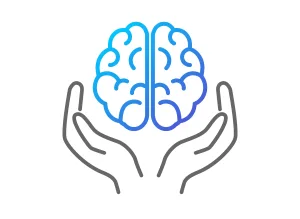
Psychological safety is another key component of Microsoft’s coaching culture. The company recognizes that innovation requires a willingness to take risks and challenge the status quo, which can only happen in an environment where individuals feel safe to express themselves and share their ideas without fear of judgment or reprisal. Nadella and other leaders at Microsoft promote vulnerability and authenticity by sharing their own experiences and challenges, creating a culture where employees feel empowered to speak up, take risks, and innovate.
Structured opportunities for feedback and reflection further reinforce psychological safety at Microsoft. The company conducts regular performance reviews and encourages employees to participate in coaching and mentoring programs. These initiatives provide employees with support and guidance in their professional development, reinforcing the message that it is safe to seek help and learn from others.
In conclusion, Microsoft’s coaching culture offers valuable lessons on how organizations can cultivate trust and psychological safety to drive innovation and success. By empowering employees, fostering transparency and open communication, promoting vulnerability and authenticity, and providing structured opportunities for feedback and reflection, Microsoft has created an environment where individuals feel empowered to grow, collaborate, and innovate. As a result, Microsoft has become a leading example of how trust and psychological safety can fuel organizational growth and success in today’s fast-paced and competitive business landscape.

Chapter 11: Ability to Account
Accountability in the business context traditionally focuses on enforcing compliance with standards and achieving targets through monitoring and consequences. This method, however, often fosters a superficial adherence rather than a genuine ownership of responsibilities. A transformative shift in this approach emphasizes empowering individuals to develop their “ability to account,” which involves taking proactive ownership and responsibility for their actions and outcomes, rather than merely meeting externally imposed standards.
At the core of this new perspective is the belief that accountability combines “account” and “ability,” highlighting the importance of not only achieving results but also developing the capability to take responsibility for one’s actions. This approach transforms accountability from a punitive measure to a growth-oriented process that enhances personal and organizational success.
Leaders play a crucial role in this paradigm by fostering an environment that promotes the development of ownership and self-driven accountability. They can cultivate this environment through several key strategies:
1. Promoting Transparency and Open Communication: Leaders should ensure that all team members understand their roles and how their tasks contribute to broader organizational goals. Open communication encourages a shared responsibility and aligns individual efforts with the organization’s objectives.
2. Setting Clear Expectations and Goals: It is essential for leaders to define clear, measurable, and achievable goals for their teams. These goals should be set collaboratively, ensuring that all team members understand what is expected of them and agree on the criteria for success. This clarity helps individuals take ownership of their roles and fosters accountability.
3. Providing Supportive Feedback and Recognition: Regular, constructive feedback helps individuals understand their performance in relation to set expectations. Recognition of achievements and constructive feedback on areas for improvement motivate team members to maintain responsibility for their outputs. This also involves supporting team members in developing the skills necessary to achieve their goals.
4. Creating a Culture of Learning and Innovation: By encouraging a growth mindset where setbacks are seen as learning opportunities, leaders can help team members to take calculated risks and innovate without fear of punitive repercussions for failures. This approach supports the development of resilience and adaptability—qualities essential for sustained accountability.
5. Modeling Accountability: Leaders should exemplify the accountability they wish to instill in their teams. By openly taking responsibility for their decisions and actions, leaders set a powerful example for their teams, reinforcing the culture of accountability.
6. Fostering Self-Awareness and Self-Compassion: Encouraging team members to reflect on their strengths and areas for improvement can foster greater self-awareness, which is critical for personal development. Likewise, promoting self-compassion can help individuals maintain motivation and resilience in challenging situations.
By implementing these strategies, leaders can transform the traditional concept of accountability into a dynamic process that empowers individuals to take ownership of their actions and outcomes. This not only enhances individual performance but also drives collective success, creating a more engaged, committed, and productive workforce. Ultimately, by redefining accountability to focus on empowerment and personal growth, organizations can foster a resilient, innovative, and highly effective culture.

Chapter 12: 10 Coaching Rules
In the comprehensive module “Coaching Rules,” participants delve into the cornerstone of effective leadership development through the exploration of 10 fundamental coaching principles. This module serves as a gateway to understanding and mastering these principles, which have been honed through extensive research and practice in leadership development. Designed to equip individuals with the necessary tools to inspire and effectively guide others in their professional journeys, these rules are essential for both seasoned leaders seeking to refine their coaching skills and newcomers aiming to make a significant impact.
Each rule is not merely a guideline but a foundational maxim, providing a robust framework for fostering an environment of continuous improvement and collaborative success within teams or organizations. As the course progresses, participants will explore each rule in detail, uncovering their practical applications and transformative potential for enhancing leadership capabilities.

The first rule emphasizes that coaching is fundamentally about the coachee, not the coach. It focuses on the coachee’s personal growth, aspirations, and challenges, tailoring the experience to their needs and fostering a sense of empowerment, ownership, and accountability in their development.
The second rule highlights the importance of using questions rather than providing answers, enhancing the coachee’s autonomy and encouraging them to discover insights and solutions independently. This approach fosters a dynamic learning environment where coachees are motivated to align their actions with personal and professional goals.
The third rule clarifies that coaching is distinct from counseling and consulting. It focuses on maximizing the coachee’s potential within a professional context, leveraging their strengths and resources to help them achieve specific goals.
The fourth rule, “Coaching is more pulling than pushing,” describes the coach’s role in facilitating discovery and insight, helping coachees to unlock their own answers and strategies. This method supports authentic and sustainable growth by involving the individual directly in the identification of their needs and crafting of their solutions.
The module also includes innovative case studies, such as the one from Atlassian, which demonstrates the effectiveness of the pulling method in a high-tech environment. By allowing employees the space to explore and develop autonomously, supported by coaching that guides rather than directs, Atlassian has created a robust culture of innovation and continuous improvement.
Additional principles such as the value of silence in coaching, the necessity of active and empathetic listening, and the importance of the coachee’s full presence illustrate the nuanced skills required in effective coaching. Moreover, the module stresses that coaching is a mindset, not merely an event, and one of many tools in a leader’s arsenal, emphasizing the need for a holistic approach to development.
The final rule reiterates that the true work in coaching is done by the coachee, emphasizing self-driven change and the importance of the coachee’s active participation in their growth process.
By the end of the module, participants will not only have a thorough understanding of each coaching rule but also be prepared to apply them in real-world scenarios, unlocking the full potential of leadership through effective coaching practices. This transformative journey promises to enhance not just individual leadership skills but also the overall performance and success of organizations.
Curriculum
Coaching Leaders – Workshop 1 – Introduction To Coaching
- Defining Coaching
- Differentiating Coaching
- History of Coaching
- Coaching Research
- Coaching Types
- Leadership Focus
- Defining Leadership
- Coaching Basics
- Internal Coaching
- Coaching Mindset
- Ability to Account
- 10 Coaching Rules
Distance Learning
Introduction
Welcome to Appleton Greene and thank you for enrolling on the Coaching Leaders corporate training program. You will be learning through our unique facilitation via distance-learning method, which will enable you to practically implement everything that you learn academically. The methods and materials used in your program have been designed and developed to ensure that you derive the maximum benefits and enjoyment possible. We hope that you find the program challenging and fun to do. However, if you have never been a distance-learner before, you may be experiencing some trepidation at the task before you. So we will get you started by giving you some basic information and guidance on how you can make the best use of the modules, how you should manage the materials and what you should be doing as you work through them. This guide is designed to point you in the right direction and help you to become an effective distance-learner. Take a few hours or so to study this guide and your guide to tutorial support for students, while making notes, before you start to study in earnest.
Study environment
You will need to locate a quiet and private place to study, preferably a room where you can easily be isolated from external disturbances or distractions. Make sure the room is well-lit and incorporates a relaxed, pleasant feel. If you can spoil yourself within your study environment, you will have much more of a chance to ensure that you are always in the right frame of mind when you do devote time to study. For example, a nice fire, the ability to play soft soothing background music, soft but effective lighting, perhaps a nice view if possible and a good size desk with a comfortable chair. Make sure that your family know when you are studying and understand your study rules. Your study environment is very important. The ideal situation, if at all possible, is to have a separate study, which can be devoted to you. If this is not possible then you will need to pay a lot more attention to developing and managing your study schedule, because it will affect other people as well as yourself. The better your study environment, the more productive you will be.
Study tools & rules
Try and make sure that your study tools are sufficient and in good working order. You will need to have access to a computer, scanner and printer, with access to the internet. You will need a very comfortable chair, which supports your lower back, and you will need a good filing system. It can be very frustrating if you are spending valuable study time trying to fix study tools that are unreliable, or unsuitable for the task. Make sure that your study tools are up to date. You will also need to consider some study rules. Some of these rules will apply to you and will be intended to help you to be more disciplined about when and how you study. This distance-learning guide will help you and after you have read it you can put some thought into what your study rules should be. You will also need to negotiate some study rules for your family, friends or anyone who lives with you. They too will need to be disciplined in order to ensure that they can support you while you study. It is important to ensure that your family and friends are an integral part of your study team. Having their support and encouragement can prove to be a crucial contribution to your successful completion of the program. Involve them in as much as you can.
Successful distance-learning
Distance-learners are freed from the necessity of attending regular classes or workshops, since they can study in their own way, at their own pace and for their own purposes. But unlike traditional internal training courses, it is the student’s responsibility, with a distance-learning program, to ensure that they manage their own study contribution. This requires strong self-discipline and self-motivation skills and there must be a clear will to succeed. Those students who are used to managing themselves, are good at managing others and who enjoy working in isolation, are more likely to be good distance-learners. It is also important to be aware of the main reasons why you are studying and of the main objectives that you are hoping to achieve as a result. You will need to remind yourself of these objectives at times when you need to motivate yourself. Never lose sight of your long-term goals and your short-term objectives. There is nobody available here to pamper you, or to look after you, or to spoon-feed you with information, so you will need to find ways to encourage and appreciate yourself while you are studying. Make sure that you chart your study progress, so that you can be sure of your achievements and re-evaluate your goals and objectives regularly.
Self-assessment
Appleton Greene training programs are in all cases post-graduate programs. Consequently, you should already have obtained a business-related degree and be an experienced learner. You should therefore already be aware of your study strengths and weaknesses. For example, which time of the day are you at your most productive? Are you a lark or an owl? What study methods do you respond to the most? Are you a consistent learner? How do you discipline yourself? How do you ensure that you enjoy yourself while studying? It is important to understand yourself as a learner and so some self-assessment early on will be necessary if you are to apply yourself correctly. Perform a SWOT analysis on yourself as a student. List your internal strengths and weaknesses as a student and your external opportunities and threats. This will help you later on when you are creating a study plan. You can then incorporate features within your study plan that can ensure that you are playing to your strengths, while compensating for your weaknesses. You can also ensure that you make the most of your opportunities, while avoiding the potential threats to your success.
Accepting responsibility as a student
Training programs invariably require a significant investment, both in terms of what they cost and in the time that you need to contribute to study and the responsibility for successful completion of training programs rests entirely with the student. This is never more apparent than when a student is learning via distance-learning. Accepting responsibility as a student is an important step towards ensuring that you can successfully complete your training program. It is easy to instantly blame other people or factors when things go wrong. But the fact of the matter is that if a failure is your failure, then you have the power to do something about it, it is entirely in your own hands. If it is always someone else’s failure, then you are powerless to do anything about it. All students study in entirely different ways, this is because we are all individuals and what is right for one student, is not necessarily right for another. In order to succeed, you will have to accept personal responsibility for finding a way to plan, implement and manage a personal study plan that works for you. If you do not succeed, you only have yourself to blame.
Planning
By far the most critical contribution to stress, is the feeling of not being in control. In the absence of planning we tend to be reactive and can stumble from pillar to post in the hope that things will turn out fine in the end. Invariably they don’t! In order to be in control, we need to have firm ideas about how and when we want to do things. We also need to consider as many possible eventualities as we can, so that we are prepared for them when they happen. Prescriptive Change, is far easier to manage and control, than Emergent Change. The same is true with distance-learning. It is much easier and much more enjoyable, if you feel that you are in control and that things are going to plan. Even when things do go wrong, you are prepared for them and can act accordingly without any unnecessary stress. It is important therefore that you do take time to plan your studies properly.
Management
Once you have developed a clear study plan, it is of equal importance to ensure that you manage the implementation of it. Most of us usually enjoy planning, but it is usually during implementation when things go wrong. Targets are not met and we do not understand why. Sometimes we do not even know if targets are being met. It is not enough for us to conclude that the study plan just failed. If it is failing, you will need to understand what you can do about it. Similarly if your study plan is succeeding, it is still important to understand why, so that you can improve upon your success. You therefore need to have guidelines for self-assessment so that you can be consistent with performance improvement throughout the program. If you manage things correctly, then your performance should constantly improve throughout the program.
Study objectives & tasks
The first place to start is developing your program objectives. These should feature your reasons for undertaking the training program in order of priority. Keep them succinct and to the point in order to avoid confusion. Do not just write the first things that come into your head because they are likely to be too similar to each other. Make a list of possible departmental headings, such as: Customer Service; E-business; Finance; Globalization; Human Resources; Technology; Legal; Management; Marketing and Production. Then brainstorm for ideas by listing as many things that you want to achieve under each heading and later re-arrange these things in order of priority. Finally, select the top item from each department heading and choose these as your program objectives. Try and restrict yourself to five because it will enable you to focus clearly. It is likely that the other things that you listed will be achieved if each of the top objectives are achieved. If this does not prove to be the case, then simply work through the process again.
Study forecast
As a guide, the Appleton Greene Coaching Leaders corporate training program should take 12-18 months to complete, depending upon your availability and current commitments. The reason why there is such a variance in time estimates is because every student is an individual, with differing productivity levels and different commitments. These differentiations are then exaggerated by the fact that this is a distance-learning program, which incorporates the practical integration of academic theory as an as a part of the training program. Consequently all of the project studies are real, which means that important decisions and compromises need to be made. You will want to get things right and will need to be patient with your expectations in order to ensure that they are. We would always recommend that you are prudent with your own task and time forecasts, but you still need to develop them and have a clear indication of what are realistic expectations in your case. With reference to your time planning: consider the time that you can realistically dedicate towards study with the program every week; calculate how long it should take you to complete the program, using the guidelines featured here; then break the program down into logical modules and allocate a suitable proportion of time to each of them, these will be your milestones; you can create a time plan by using a spreadsheet on your computer, or a personal organizer such as MS Outlook, you could also use a financial forecasting software; break your time forecasts down into manageable chunks of time, the more specific you can be, the more productive and accurate your time management will be; finally, use formulas where possible to do your time calculations for you, because this will help later on when your forecasts need to change in line with actual performance. With reference to your task planning: refer to your list of tasks that need to be undertaken in order to achieve your program objectives; with reference to your time plan, calculate when each task should be implemented; remember that you are not estimating when your objectives will be achieved, but when you will need to focus upon implementing the corresponding tasks; you also need to ensure that each task is implemented in conjunction with the associated training modules which are relevant; then break each single task down into a list of specific to do’s, say approximately ten to do’s for each task and enter these into your study plan; once again you could use MS Outlook to incorporate both your time and task planning and this could constitute your study plan; you could also use a project management software like MS Project. You should now have a clear and realistic forecast detailing when you can expect to be able to do something about undertaking the tasks to achieve your program objectives.
Performance management
It is one thing to develop your study forecast, it is quite another to monitor your progress. Ultimately it is less important whether you achieve your original study forecast and more important that you update it so that it constantly remains realistic in line with your performance. As you begin to work through the program, you will begin to have more of an idea about your own personal performance and productivity levels as a distance-learner. Once you have completed your first study module, you should re-evaluate your study forecast for both time and tasks, so that they reflect your actual performance level achieved. In order to achieve this you must first time yourself while training by using an alarm clock. Set the alarm for hourly intervals and make a note of how far you have come within that time. You can then make a note of your actual performance on your study plan and then compare your performance against your forecast. Then consider the reasons that have contributed towards your performance level, whether they are positive or negative and make a considered adjustment to your future forecasts as a result. Given time, you should start achieving your forecasts regularly.
With reference to time management: time yourself while you are studying and make a note of the actual time taken in your study plan; consider your successes with time-efficiency and the reasons for the success in each case and take this into consideration when reviewing future time planning; consider your failures with time-efficiency and the reasons for the failures in each case and take this into consideration when reviewing future time planning; re-evaluate your study forecast in relation to time planning for the remainder of your training program to ensure that you continue to be realistic about your time expectations. You need to be consistent with your time management, otherwise you will never complete your studies. This will either be because you are not contributing enough time to your studies, or you will become less efficient with the time that you do allocate to your studies. Remember, if you are not in control of your studies, they can just become yet another cause of stress for you.
With reference to your task management: time yourself while you are studying and make a note of the actual tasks that you have undertaken in your study plan; consider your successes with task-efficiency and the reasons for the success in each case; take this into consideration when reviewing future task planning; consider your failures with task-efficiency and the reasons for the failures in each case and take this into consideration when reviewing future task planning; re-evaluate your study forecast in relation to task planning for the remainder of your training program to ensure that you continue to be realistic about your task expectations. You need to be consistent with your task management, otherwise you will never know whether you are achieving your program objectives or not.
Keeping in touch
You will have access to qualified and experienced professors and tutors who are responsible for providing tutorial support for your particular training program. So don’t be shy about letting them know how you are getting on. We keep electronic records of all tutorial support emails so that professors and tutors can review previous correspondence before considering an individual response. It also means that there is a record of all communications between you and your professors and tutors and this helps to avoid any unnecessary duplication, misunderstanding, or misinterpretation. If you have a problem relating to the program, share it with them via email. It is likely that they have come across the same problem before and are usually able to make helpful suggestions and steer you in the right direction. To learn more about when and how to use tutorial support, please refer to the Tutorial Support section of this student information guide. This will help you to ensure that you are making the most of tutorial support that is available to you and will ultimately contribute towards your success and enjoyment with your training program.
Work colleagues and family
You should certainly discuss your program study progress with your colleagues, friends and your family. Appleton Greene training programs are very practical. They require you to seek information from other people, to plan, develop and implement processes with other people and to achieve feedback from other people in relation to viability and productivity. You will therefore have plenty of opportunities to test your ideas and enlist the views of others. People tend to be sympathetic towards distance-learners, so don’t bottle it all up in yourself. Get out there and share it! It is also likely that your family and colleagues are going to benefit from your labors with the program, so they are likely to be much more interested in being involved than you might think. Be bold about delegating work to those who might benefit themselves. This is a great way to achieve understanding and commitment from people who you may later rely upon for process implementation. Share your experiences with your friends and family.
Making it relevant
The key to successful learning is to make it relevant to your own individual circumstances. At all times you should be trying to make bridges between the content of the program and your own situation. Whether you achieve this through quiet reflection or through interactive discussion with your colleagues, client partners or your family, remember that it is the most important and rewarding aspect of translating your studies into real self-improvement. You should be clear about how you want the program to benefit you. This involves setting clear study objectives in relation to the content of the course in terms of understanding, concepts, completing research or reviewing activities and relating the content of the modules to your own situation. Your objectives may understandably change as you work through the program, in which case you should enter the revised objectives on your study plan so that you have a permanent reminder of what you are trying to achieve, when and why.
Distance-learning check-list
Prepare your study environment, your study tools and rules.
Undertake detailed self-assessment in terms of your ability as a learner.
Create a format for your study plan.
Consider your study objectives and tasks.
Create a study forecast.
Assess your study performance.
Re-evaluate your study forecast.
Be consistent when managing your study plan.
Use your Appleton Greene Certified Learning Provider (CLP) for tutorial support.
Make sure you keep in touch with those around you.

Tutorial Support
Programs
Appleton Greene uses standard and bespoke corporate training programs as vessels to transfer business process improvement knowledge into the heart of our clients’ organizations. Each individual program focuses upon the implementation of a specific business process, which enables clients to easily quantify their return on investment. There are hundreds of established Appleton Greene corporate training products now available to clients within customer services, e-business, finance, globalization, human resources, information technology, legal, management, marketing and production. It does not matter whether a client’s employees are located within one office, or an unlimited number of international offices, we can still bring them together to learn and implement specific business processes collectively. Our approach to global localization enables us to provide clients with a truly international service with that all important personal touch. Appleton Greene corporate training programs can be provided virtually or locally and they are all unique in that they individually focus upon a specific business function. They are implemented over a sustainable period of time and professional support is consistently provided by qualified learning providers and specialist consultants.
Support available
You will have a designated Certified Learning Provider (CLP) and an Accredited Consultant and we encourage you to communicate with them as much as possible. In all cases tutorial support is provided online because we can then keep a record of all communications to ensure that tutorial support remains consistent. You would also be forwarding your work to the tutorial support unit for evaluation and assessment. You will receive individual feedback on all of the work that you undertake on a one-to-one basis, together with specific recommendations for anything that may need to be changed in order to achieve a pass with merit or a pass with distinction and you then have as many opportunities as you may need to re-submit project studies until they meet with the required standard. Consequently the only reason that you should really fail (CLP) is if you do not do the work. It makes no difference to us whether a student takes 12 months or 18 months to complete the program, what matters is that in all cases the same quality standard will have been achieved.
Support Process
Please forward all of your future emails to the designated (CLP) Tutorial Support Unit email address that has been provided and please do not duplicate or copy your emails to other AGC email accounts as this will just cause unnecessary administration. Please note that emails are always answered as quickly as possible but you will need to allow a period of up to 20 business days for responses to general tutorial support emails during busy periods, because emails are answered strictly within the order in which they are received. You will also need to allow a period of up to 30 business days for the evaluation and assessment of project studies. This does not include weekends or public holidays. Please therefore kindly allow for this within your time planning. All communications are managed online via email because it enables tutorial service support managers to review other communications which have been received before responding and it ensures that there is a copy of all communications retained on file for future reference. All communications will be stored within your personal (CLP) study file here at Appleton Greene throughout your designated study period. If you need any assistance or clarification at any time, please do not hesitate to contact us by forwarding an email and remember that we are here to help. If you have any questions, please list and number your questions succinctly and you can then be sure of receiving specific answers to each and every query.
Time Management
It takes approximately 1 Year to complete the Coaching Leaders corporate training program, incorporating 12 x 6-hour monthly workshops. Each student will also need to contribute approximately 4 hours per week over 1 Year of their personal time. Students can study from home or work at their own pace and are responsible for managing their own study plan. There are no formal examinations and students are evaluated and assessed based upon their project study submissions, together with the quality of their internal analysis and supporting documents. They can contribute more time towards study when they have the time to do so and can contribute less time when they are busy. All students tend to be in full time employment while studying and the Coaching Leaders program is purposely designed to accommodate this, so there is plenty of flexibility in terms of time management. It makes no difference to us at Appleton Greene, whether individuals take 12-18 months to complete this program. What matters is that in all cases the same standard of quality will have been achieved with the standard and bespoke programs that have been developed.
Distance Learning Guide
The distance learning guide should be your first port of call when starting your training program. It will help you when you are planning how and when to study, how to create the right environment and how to establish the right frame of mind. If you can lay the foundations properly during the planning stage, then it will contribute to your enjoyment and productivity while training later. The guide helps to change your lifestyle in order to accommodate time for study and to cultivate good study habits. It helps you to chart your progress so that you can measure your performance and achieve your goals. It explains the tools that you will need for study and how to make them work. It also explains how to translate academic theory into practical reality. Spend some time now working through your distance learning guide and make sure that you have firm foundations in place so that you can make the most of your distance learning program. There is no requirement for you to attend training workshops or classes at Appleton Greene offices. The entire program is undertaken online, program course manuals and project studies are administered via the Appleton Greene web site and via email, so you are able to study at your own pace and in the comfort of your own home or office as long as you have a computer and access to the internet.
How To Study
The how to study guide provides students with a clear understanding of the Appleton Greene facilitation via distance learning training methods and enables students to obtain a clear overview of the training program content. It enables students to understand the step-by-step training methods used by Appleton Greene and how course manuals are integrated with project studies. It explains the research and development that is required and the need to provide evidence and references to support your statements. It also enables students to understand precisely what will be required of them in order to achieve a pass with merit and a pass with distinction for individual project studies and provides useful guidance on how to be innovative and creative when developing your Unique Program Proposition (UPP).
Tutorial Support
Tutorial support for the Appleton Greene Coaching Leaders corporate training program is provided online either through the Appleton Greene Client Support Portal (CSP), or via email. All tutorial support requests are facilitated by a designated Program Administration Manager (PAM). They are responsible for deciding which professor or tutor is the most appropriate option relating to the support required and then the tutorial support request is forwarded onto them. Once the professor or tutor has completed the tutorial support request and answered any questions that have been asked, this communication is then returned to the student via email by the designated Program Administration Manager (PAM). This enables all tutorial support, between students, professors and tutors, to be facilitated by the designated Program Administration Manager (PAM) efficiently and securely through the email account. You will therefore need to allow a period of up to 20 business days for responses to general support queries and up to 30 business days for the evaluation and assessment of project studies, because all tutorial support requests are answered strictly within the order in which they are received. This does not include weekends or public holidays. Consequently you need to put some thought into the management of your tutorial support procedure in order to ensure that your study plan is feasible and to obtain the maximum possible benefit from tutorial support during your period of study. Please retain copies of your tutorial support emails for future reference. Please ensure that ALL of your tutorial support emails are set out using the format as suggested within your guide to tutorial support. Your tutorial support emails need to be referenced clearly to the specific part of the course manual or project study which you are working on at any given time. You also need to list and number any questions that you would like to ask, up to a maximum of five questions within each tutorial support email. Remember the more specific you can be with your questions the more specific your answers will be too and this will help you to avoid any unnecessary misunderstanding, misinterpretation, or duplication. The guide to tutorial support is intended to help you to understand how and when to use support in order to ensure that you get the most out of your training program. Appleton Greene training programs are designed to enable you to do things for yourself. They provide you with a structure or a framework and we use tutorial support to facilitate students while they practically implement what they learn. In other words, we are enabling students to do things for themselves. The benefits of distance learning via facilitation are considerable and are much more sustainable in the long-term than traditional short-term knowledge sharing programs. Consequently you should learn how and when to use tutorial support so that you can maximize the benefits from your learning experience with Appleton Greene. This guide describes the purpose of each training function and how to use them and how to use tutorial support in relation to each aspect of the training program. It also provides useful tips and guidance with regard to best practice.
Tutorial Support Tips
Students are often unsure about how and when to use tutorial support with Appleton Greene. This Tip List will help you to understand more about how to achieve the most from using tutorial support. Refer to it regularly to ensure that you are continuing to use the service properly. Tutorial support is critical to the success of your training experience, but it is important to understand when and how to use it in order to maximize the benefit that you receive. It is no coincidence that those students who succeed are those that learn how to be positive, proactive and productive when using tutorial support.
Be positive and friendly with your tutorial support emails
Remember that if you forward an email to the tutorial support unit, you are dealing with real people. “Do unto others as you would expect others to do unto you”. If you are positive, complimentary and generally friendly in your emails, you will generate a similar response in return. This will be more enjoyable, productive and rewarding for you in the long-term.
Think about the impression that you want to create
Every time that you communicate, you create an impression, which can be either positive or negative, so put some thought into the impression that you want to create. Remember that copies of all tutorial support emails are stored electronically and tutors will always refer to prior correspondence before responding to any current emails. Over a period of time, a general opinion will be arrived at in relation to your character, attitude and ability. Try to manage your own frustrations, mood swings and temperament professionally, without involving the tutorial support team. Demonstrating frustration or a lack of patience is a weakness and will be interpreted as such. The good thing about communicating in writing, is that you will have the time to consider your content carefully, you can review it and proof-read it before sending your email to Appleton Greene and this should help you to communicate more professionally, consistently and to avoid any unnecessary knee-jerk reactions to individual situations as and when they may arise. Please also remember that the CLP Tutorial Support Unit will not just be responsible for evaluating and assessing the quality of your work, they will also be responsible for providing recommendations to other learning providers and to client contacts within the Appleton Greene global client network, so do be in control of your own emotions and try to create a good impression.
Remember that quality is preferred to quantity
Please remember that when you send an email to the tutorial support team, you are not using Twitter or Text Messaging. Try not to forward an email every time that you have a thought. This will not prove to be productive either for you or for the tutorial support team. Take time to prepare your communications properly, as if you were writing a professional letter to a business colleague and make a list of queries that you are likely to have and then incorporate them within one email, say once every month, so that the tutorial support team can understand more about context, application and your methodology for study. Get yourself into a consistent routine with your tutorial support requests and use the tutorial support template provided with ALL of your emails. The (CLP) Tutorial Support Unit will not spoon-feed you with information. They need to be able to evaluate and assess your tutorial support requests carefully and professionally.
Be specific about your questions in order to receive specific answers
Try not to write essays by thinking as you are writing tutorial support emails. The tutorial support unit can be unclear about what in fact you are asking, or what you are looking to achieve. Be specific about asking questions that you want answers to. Number your questions. You will then receive specific answers to each and every question. This is the main purpose of tutorial support via email.
Keep a record of your tutorial support emails
It is important that you keep a record of all tutorial support emails that are forwarded to you. You can then refer to them when necessary and it avoids any unnecessary duplication, misunderstanding, or misinterpretation.
Individual training workshops or telephone support
Please be advised that Appleton Greene does not provide separate or individual tutorial support meetings, workshops, or provide telephone support for individual students. Appleton Greene is an equal opportunities learning and service provider and we are therefore understandably bound to treat all students equally. We cannot therefore broker special financial or study arrangements with individual students regardless of the circumstances. All tutorial support is provided online and this enables Appleton Greene to keep a record of all communications between students, professors and tutors on file for future reference, in accordance with our quality management procedure and your terms and conditions of enrolment. All tutorial support is provided online via email because it enables us to have time to consider support content carefully, it ensures that you receive a considered and detailed response to your queries. You can number questions that you would like to ask, which relate to things that you do not understand or where clarification may be required. You can then be sure of receiving specific answers to each individual query. You will also then have a record of these communications and of all tutorial support, which has been provided to you. This makes tutorial support administration more productive by avoiding any unnecessary duplication, misunderstanding, or misinterpretation.
Tutorial Support Email Format
You should use this tutorial support format if you need to request clarification or assistance while studying with your training program. Please note that ALL of your tutorial support request emails should use the same format. You should therefore set up a standard email template, which you can then use as and when you need to. Emails that are forwarded to Appleton Greene, which do not use the following format, may be rejected and returned to you by the (CLP) Program Administration Manager. A detailed response will then be forwarded to you via email usually within 20 business days of receipt for general support queries and 30 business days for the evaluation and assessment of project studies. This does not include weekends or public holidays. Your tutorial support request, together with the corresponding TSU reply, will then be saved and stored within your electronic TSU file at Appleton Greene for future reference.
Subject line of your email
Please insert: Appleton Greene (CLP) Tutorial Support Request: (Your Full Name) (Date), within the subject line of your email.
Main body of your email
Please insert:
1. Appleton Greene Certified Learning Provider (CLP) Tutorial Support Request
2. Your Full Name
3. Date of TS request
4. Preferred email address
5. Backup email address
6. Course manual page name or number (reference)
7. Project study page name or number (reference)
Subject of enquiry
Please insert a maximum of 50 words (please be succinct)
Briefly outline the subject matter of your inquiry, or what your questions relate to.
Question 1
Maximum of 50 words (please be succinct)
Maximum of 50 words (please be succinct)
Question 3
Maximum of 50 words (please be succinct)
Question 4
Maximum of 50 words (please be succinct)
Question 5
Maximum of 50 words (please be succinct)
Please note that a maximum of 5 questions is permitted with each individual tutorial support request email.
Procedure
* List the questions that you want to ask first, then re-arrange them in order of priority. Make sure that you reference them, where necessary, to the course manuals or project studies.
* Make sure that you are specific about your questions and number them. Try to plan the content within your emails to make sure that it is relevant.
* Make sure that your tutorial support emails are set out correctly, using the Tutorial Support Email Format provided here.
* Save a copy of your email and incorporate the date sent after the subject title. Keep your tutorial support emails within the same file and in date order for easy reference.
* Allow up to 20 business days for a response to general tutorial support emails and up to 30 business days for the evaluation and assessment of project studies, because detailed individual responses will be made in all cases and tutorial support emails are answered strictly within the order in which they are received.
* Emails can and do get lost. So if you have not received a reply within the appropriate time, forward another copy or a reminder to the tutorial support unit to be sure that it has been received but do not forward reminders unless the appropriate time has elapsed.
* When you receive a reply, save it immediately featuring the date of receipt after the subject heading for easy reference. In most cases the tutorial support unit replies to your questions individually, so you will have a record of the questions that you asked as well as the answers offered. With project studies however, separate emails are usually forwarded by the tutorial support unit, so do keep a record of your own original emails as well.
* Remember to be positive and friendly in your emails. You are dealing with real people who will respond to the same things that you respond to.
* Try not to repeat questions that have already been asked in previous emails. If this happens the tutorial support unit will probably just refer you to the appropriate answers that have already been provided within previous emails.
* If you lose your tutorial support email records you can write to Appleton Greene to receive a copy of your tutorial support file, but a separate administration charge may be levied for this service.

How To Study
Your Certified Learning Provider (CLP) and Accredited Consultant can help you to plan a task list for getting started so that you can be clear about your direction and your priorities in relation to your training program. It is also a good way to introduce yourself to the tutorial support team.
Planning your study environment
Your study conditions are of great importance and will have a direct effect on how much you enjoy your training program. Consider how much space you will have, whether it is comfortable and private and whether you are likely to be disturbed. The study tools and facilities at your disposal are also important to the success of your distance-learning experience. Your tutorial support unit can help with useful tips and guidance, regardless of your starting position. It is important to get this right before you start working on your training program.
Planning your program objectives
It is important that you have a clear list of study objectives, in order of priority, before you start working on your training program. Your tutorial support unit can offer assistance here to ensure that your study objectives have been afforded due consideration and priority.
Planning how and when to study
Distance-learners are freed from the necessity of attending regular classes, since they can study in their own way, at their own pace and for their own purposes. This approach is designed to let you study efficiently away from the traditional classroom environment. It is important however, that you plan how and when to study, so that you are making the most of your natural attributes, strengths and opportunities. Your tutorial support unit can offer assistance and useful tips to ensure that you are playing to your strengths.
Planning your study tasks
You should have a clear understanding of the study tasks that you should be undertaking and the priority associated with each task. These tasks should also be integrated with your program objectives. The distance learning guide and the guide to tutorial support for students should help you here, but if you need any clarification or assistance, please contact your tutorial support unit.
Planning your time
You will need to allocate specific times during your calendar when you intend to study if you are to have a realistic chance of completing your program on time. You are responsible for planning and managing your own study time, so it is important that you are successful with this. Your tutorial support unit can help you with this if your time plan is not working.
Keeping in touch
Consistency is the key here. If you communicate too frequently in short bursts, or too infrequently with no pattern, then your management ability with your studies will be questioned, both by you and by your tutorial support unit. It is obvious when a student is in control and when one is not and this will depend how able you are at sticking with your study plan. Inconsistency invariably leads to in-completion.
Charting your progress
Your tutorial support team can help you to chart your own study progress. Refer to your distance learning guide for further details.
Making it work
To succeed, all that you will need to do is apply yourself to undertaking your training program and interpreting it correctly. Success or failure lies in your hands and your hands alone, so be sure that you have a strategy for making it work. Your Certified Learning Provider (CLP) and Accredited Consultant can guide you through the process of program planning, development and implementation.
Reading methods
Interpretation is often unique to the individual but it can be improved and even quantified by implementing consistent interpretation methods. Interpretation can be affected by outside interference such as family members, TV, or the Internet, or simply by other thoughts which are demanding priority in our minds. One thing that can improve our productivity is using recognized reading methods. This helps us to focus and to be more structured when reading information for reasons of importance, rather than relaxation.
Speed reading
When reading through course manuals for the first time, subconsciously set your reading speed to be just fast enough that you cannot dwell on individual words or tables. With practice, you should be able to read an A4 sheet of paper in one minute. You will not achieve much in the way of a detailed understanding, but your brain will retain a useful overview. This overview will be important later on and will enable you to keep individual issues in perspective with a more generic picture because speed reading appeals to the memory part of the brain. Do not worry about what you do or do not remember at this stage.
Content reading
Once you have speed read everything, you can then start work in earnest. You now need to read a particular section of your course manual thoroughly, by making detailed notes while you read. This process is called Content Reading and it will help to consolidate your understanding and interpretation of the information that has been provided.
Making structured notes on the course manuals
When you are content reading, you should be making detailed notes, which are both structured and informative. Make these notes in a MS Word document on your computer, because you can then amend and update these as and when you deem it to be necessary. List your notes under three headings: 1. Interpretation – 2. Questions – 3. Tasks. The purpose of the 1st section is to clarify your interpretation by writing it down. The purpose of the 2nd section is to list any questions that the issue raises for you. The purpose of the 3rd section is to list any tasks that you should undertake as a result. Anyone who has graduated with a business-related degree should already be familiar with this process.
Organizing structured notes separately
You should then transfer your notes to a separate study notebook, preferably one that enables easy referencing, such as a MS Word Document, a MS Excel Spreadsheet, a MS Access Database, or a personal organizer on your cell phone. Transferring your notes allows you to have the opportunity of cross-checking and verifying them, which assists considerably with understanding and interpretation. You will also find that the better you are at doing this, the more chance you will have of ensuring that you achieve your study objectives.
Question your understanding
Do challenge your understanding. Explain things to yourself in your own words by writing things down.
Clarifying your understanding
If you are at all unsure, forward an email to your tutorial support unit and they will help to clarify your understanding.
Question your interpretation
Do challenge your interpretation. Qualify your interpretation by writing it down.
Clarifying your interpretation
If you are at all unsure, forward an email to your tutorial support unit and they will help to clarify your interpretation.
Qualification Requirements
The student will need to successfully complete the project study and all of the exercises relating to the Coaching Leaders corporate training program, achieving a pass with merit or distinction in each case, in order to qualify as an Accredited Coaching Leaders Specialist (APTS). All monthly workshops need to be tried and tested within your company. These project studies can be completed in your own time and at your own pace and in the comfort of your own home or office. There are no formal examinations, assessment is based upon the successful completion of the project studies. They are called project studies because, unlike case studies, these projects are not theoretical, they incorporate real program processes that need to be properly researched and developed. The project studies assist us in measuring your understanding and interpretation of the training program and enable us to assess qualification merits. All of the project studies are based entirely upon the content within the training program and they enable you to integrate what you have learnt into your corporate training practice.
Coaching Leaders – Grading Contribution
Project Study – Grading Contribution
Customer Service – 10%
E-business – 05%
Finance – 10%
Globalization – 10%
Human Resources – 10%
Information Technology – 10%
Legal – 05%
Management – 10%
Marketing – 10%
Production – 10%
Education – 05%
Logistics – 05%
TOTAL GRADING – 100%
Qualification grades
A mark of 90% = Pass with Distinction.
A mark of 75% = Pass with Merit.
A mark of less than 75% = Fail.
If you fail to achieve a mark of 75% with a project study, you will receive detailed feedback from the Certified Learning Provider (CLP) and/or Accredited Consultant, together with a list of tasks which you will need to complete, in order to ensure that your project study meets with the minimum quality standard that is required by Appleton Greene. You can then re-submit your project study for further evaluation and assessment. Indeed you can re-submit as many drafts of your project studies as you need to, until such a time as they eventually meet with the required standard by Appleton Greene, so you need not worry about this, it is all part of the learning process.
When marking project studies, Appleton Greene is looking for sufficient evidence of the following:
Pass with merit
A satisfactory level of program understanding
A satisfactory level of program interpretation
A satisfactory level of project study content presentation
A satisfactory level of Unique Program Proposition (UPP) quality
A satisfactory level of the practical integration of academic theory
Pass with distinction
An exceptional level of program understanding
An exceptional level of program interpretation
An exceptional level of project study content presentation
An exceptional level of Unique Program Proposition (UPP) quality
An exceptional level of the practical integration of academic theory
Preliminary Analysis
Welcome to your first glimpse of Workshop 2: Coaching Tenets, part of the Coaching Leaders program. As we delve deeper into our subject matter, it’s essential to equip ourselves with the knowledge and insights that will enrich our discussions and enhance our learning experience. The following curated selection of articles, books, and blogs has been carefully chosen to provide you with a solid foundation and stimulate critical thinking on the coaching principles and practices we’ll be exploring. Delve into these resources to prime yourself for engaging conversations and fruitful collaboration during Workshop 2.
Article: ” The 6 Principles of Effective Coaching for Leaders “
“ You may be pretty familiar — and probably fairly comfortable — with the model of the visiting leadership coach. Sometimes it’s easier to dispense leadership advice to an audience you don’t know. So it’s no wonder these leadership pros seem so confident. But what if you’re asked to coach a subordinate or a peer within your organization? Is coaching someone you might work with daily an impossible task?
6 Core Leadership Coaching Principles
Whether you’re an outside executive coach or a leader-coach working in the trenches of your organization, a lot of the same rules of thumb apply in terms of what it takes to coach your people.
Website: CCL

Book: “Coaching for Performance: GROWing Human Potential and Purpose” by Sir John Whitmore
“Coaching for Performance,” Sir John Whitmore presents the GROW model—a powerful framework for coaching individuals to unlock their human potential and achieve their goals. The GROW model consists of four key components:
Goal: The first step in the GROW model is to establish clear and compelling goals. Goals should be specific, measurable, achievable, relevant, and time-bound (SMART), providing individuals with a clear direction and purpose for their coaching journey.
Reality: Once goals have been established, individuals must assess their current reality—their strengths, weaknesses, opportunities, and threats. By gaining a clear understanding of their current situation, individuals can identify obstacles and challenges that may impede their progress toward their goals.
Options: With a clear understanding of their goals and reality, individuals can explore potential options and strategies for achieving their objectives. Leaders should encourage creativity and innovation, empowering individuals to brainstorm and evaluate alternative courses of action.
Will: The final step in the GROW model is to establish a commitment to action. Individuals must develop a strong sense of commitment and ownership for their goals, taking responsibility for their actions and decisions. Leaders should provide support, encouragement, and accountability to ensure that individuals follow through on their commitments.
By applying the GROW model, leaders can become more effective coaches, empowering individuals to unlock their full potential and achieve their goals.”

Leadership effectiveness through coaching: Authentic and change-oriented leadership”
Abstract
There has been an increasing shift towards individually owned leader development programs within organizations. Whilst leadership coaching is one of these and is gaining in popularity, the mechanisms of its effect remain poorly understood. We develop and investigate a model in which leadership coaching enhances leader effectiveness through coaching’s positive effect on authentic and change-oriented leadership behaviours as well as self-efficacy. To assess the model, multi-source data were collected for organizational leaders (N = 70) pre- and post-coaching. To investigate mechanisms of coaching’s effect, relations between latent change scores were assessed in structural equation modelling using partial least squares indicating that after accounting for base-line scores, coaching-related increases in authentic leadership behaviour has the largest total effect on leadership effectiveness.
Publication: Plos One

Blog: ” Four Tenets for Building a Coaching Culture”
A common concern that I hear from instructional coaches is the question of how to approach teachers who see no “need to” or “value from” working with a coach….teachers who are “fine”. These staff members often view coaching as a supervisory activity or a support structure for new or struggling teachers. They may view themselves as equally (or better) skilled than the coach and believe that coaching is an activity involving an advanced professional (coach) working with someone less skilled.
A focus from school administrative and teacher leadership on these four tenets can create a vision and understanding of coaching that increases teacher openness and vulnerability to seek the rewards of coaching for themselves and their students.
All teachers deserve coaching
I have found this wording to be important. I originally repeated a statement I heard others use, “All teachers need coaching.”
Consider the difference in definition.
Need – A condition or situation in which something must be supplied in order for a certain condition to be maintained or a desired state to be achieved.
Deserve-to merit, qualify for, or have a claim to because of actions, qualities, or circumstances
Everyone deserves a coach in order to have recognition for the complexity of the job and the celebration of successes (student learning) All teachers have had the experience of that magical learning moment with students happening, and no one was there to see it. It’s difficult to celebrate alone. While students appreciate the teachers “work” that led to their success, its often only another teacher who can appreciate the “work” the teacher executed.
Website: BarkleyPD

Article: ” Future-Ready Leadership: Five Reasons For Organizations To Build Coaching Capability As A Leadership Skill “
As we look with optimism toward the other side of this pandemic, it is more important than ever for organizations to invest in their leaders, specifically in their coaching skills, to bring business through this turning point with agility and confidence in the ability to create the future.
Whether intentionally or not, to be a leader is to be a coach: It is our job as leaders of leaders, and as leaders of the next generation of leaders, to develop our people. And in some cases, it is our job as informal leaders to bring out the best in those around us. Coaching is the tool that enables individuals and teams beyond the basic completion of their tasks and responsibilities and supports them in achieving their highest potential.
Building coaching skills within your teams will energize your people, create a shared responsibility throughout your workforce and contribute to the future readiness of your organization. Below are five key reasons to intentionally build strong leadership coaching capability at an organizational level.
1. Strengthen The Innovation Muscle
Innovation as an organizational behavior is a muscle that requires the right leadership regimen to develop and strengthen. A sustained directive leadership style stifles innovation as teams look to their leaders for instruction rather than looking with curiosity to what is possible. Leaders and organizations that can adopt a coaching style by asking questions and creating space for their team to apply the approach they think is best enable teams to innovate and solve problems in ways beyond simply completing tasks. Providing employees with an environment to be curious and supporting them when they make mistakes will create an environment of psychological safety that connects employees to organizational goals while building a culture of innovation.

Book: “The Coaching Habit: Say Less, Ask More & Change the Way You Lead Forever” by Michael Bungay Stanier
“The Coaching Habit,” Michael Bungay Stanier presents a practical and accessible guide to coaching for leaders, offering seven powerful questions that can transform leadership conversations and drive meaningful change. These seven questions are:
1. The Kickstart Question: “What’s on your mind?”
2. The AWE Question: “And what else?”
3. The Focus Question: “What’s the real challenge here for you?”
4. The Foundation Question: “What do you want?”
5. The Lazy Question: “How can I help?”
6. The Strategic Question: “If you’re saying yes to this, what are you saying no to?”
7. The Learning Question: “What was most useful for you?”

Case Study: ” A Case Study Exploring Application and Development of Transformational Leadership in Chief Executive Officers of Professional Services Businesses “
Transformational leaders in professional services businesses can help develop and inspire people and organizations to overcome disruption and succeed. At the same time, numerous pressures on leaders, such as quarterly financial reporting and the shift from long-term engagements to project-based work, may cause leaders to focus on the transactional and short term. Transformational leadership in this study is defined as leadership that goes beyond exchange of rewards for achieved goals and places an emphasis on the needs and values of followers, thereby fostering transformation in people and organizations (Northouse, 2018). This study addresses how CEOs of professional services businesses are transformational with their clients and teams in a complex and challenging business environment that is steeped in transactional activities.
The purpose of this research was to study CEOs of professional services businesses whose leadership styles have been identified by company executives as transformational. This study was carried out in order to understand if and how the nominated CEOs perceived that they demonstrated transformational leadership in complex and challenging work environments.
This case study encompassed 10 CEOs of professional services businesses and 18 team members. Client satisfaction survey data were also analyzed to incorporate client perspectives. A major finding of this study was that a strong majority (82%) of CEOs and their team members reported that the most predominant transformational leadership activities in which the CEOs engaged were idealized influence, which consists of building trust and acting with integrity, and individualized consideration, which consists of listening carefully to individual needs, acting as coach or advisor, and treating others in unique and caring ways (Bass & Avolio, 1997). All CEOs (100%) learned to be transformational largely through informal means by drawing on past experiences. A majority (64%) of participants indicated that team members facilitated their transformational work, while 50% described lack of teamwork and organizational processes as impeding their transformational work.
Journal: Columbia University

Article: ” Coaching Models For Leadership Development: An Integrative Review”
The purpose of this article was to describe and compare coaching models and to address their relevance to the advancement of leadership. Coaching has become a popular strategy for leadership develop ment and change in complex environments. Despite increasing popularity, little evidence describes the necessity and impact of coaching. An integrative literature review from 1996 to 2010, retrieved through seven databases, reference tracking, and consultation with academic networks, led to inclu sion of peer-reviewed articles on coaching models. Themes and critical elements in the selected coaching models were analyzed. The search yielded 1,414 titles. Four hundred twenty-seven abstracts were screened using inclusion/exclusion criteria, and 56 papers were retrieved for full-text screening. Ten papers were included: two coaching models from health care settings, seven from business set tings, and one from a medical education institution. Critical components of coaching models are: coach–coachee relationship, problem identification and goal setting, problem solving, transforma tional process, and mechanisms by which the model achieves outcomes. Factors that impact positive coaching outcomes are: coach’s role and attributes, selection of coaching candidates and coach at tributes, obstacles and facilitators to the coaching process, benefits and drawbacks of external versus internal coaches, and organizational support. The elements of coaching models identified in this re view may be used to guide future research on the effectiveness of coaching as a leadership strategy.

Book: “Leadership Coaching: The Disciplines, Skills, and Heart of a Coach” by Tony Stoltzfus
“In “Leadership Coaching,” Tony Stoltzfus provides a comprehensive guide to the disciplines, skills, and heart of effective coaching for leadership development. Drawing upon his extensive experience as a leadership coach and trainer, Stoltzfus offers practical insights and actionable strategies for aspiring and seasoned coaches alike. The book explores the following key themes:
The Disciplines of Coaching: Effective coaching requires discipline—commitment to ongoing learning, growth, and self-improvement. Stoltzfus emphasizes the importance of cultivating a coaching mindset and adopting disciplined practices that support the coaching process. From setting clear goals and boundaries to maintaining confidentiality and ethical standards, coaches must adhere to rigorous disciplines that uphold the integrity and effectiveness of their coaching practice.
The Skills of Coaching: Coaching is both an art and a science, requiring a diverse array of skills and competencies. Stoltzfus delves into the essential skills of coaching, from active listening and powerful questioning to providing feedback and facilitating transformative conversations. Coaches must develop proficiency in communication, empathy, and emotional intelligence, enabling them to connect with their clients, foster trust, and facilitate meaningful change.
The Heart of a Coach: At the core of effective coaching lies the heart—the innermost essence of the coach’s character, values, and intentions. Stoltzfus explores the importance of cultivating a compassionate and authentic presence as a coach, embodying qualities such as empathy, humility, and integrity. Coaches must approach their work with a genuine desire to serve and empower others, honoring the inherent worth and dignity of each individual they coach.
Throughout the book, Stoltzfus shares real-world examples, practical exercises, and reflective prompts to help coaches deepen their understanding and hone their coaching skills. From exploring the dynamics of coach-client relationships to navigating challenging coaching scenarios, “Leadership Coaching” equips coaches with the knowledge, tools, and inspiration to excel in their coaching practice and make a meaningful impact on the lives of their clients.”

Article: “Who Is Leadership Really About?”
I have an alter ego named Dennis Ray. I affectionately (or disdainfully) call him my twin cousin. He is a humorous character I occasionally portray at conferences and other gatherings — an irreverent philosopher. Years ago, at a gathering of social sector leaders called the Blue Ridge Institute (BRI), Dennis Ray preached to the audience that “It ain’t all about you, but some of it is!”
For some strange reason, the line landed and became a bit of a catchphrase for the institute, even appearing on dinner cups at the traditional BRI president’s ball. There were many things about the saying that people could relate to and laugh about, and the more Dennis Ray used it, the more I understood it. But ever since its inaugural uttering, I have realized that it has a serious, deeper meaning.
It Ain’t All About You
Years ago, when I was brand-new in my first CEO role for a small nonprofit organization, we had a finance director with 20 years of impeccable service to the organization. She was highly conscientious and relied heavily on systems and stability in her work environment.
As she adapted to my leadership style (I was only her third boss in 20 years), she would frequently and formally ask my permission for the slightest deviation in her work schedule. If she needed 30 minutes extra for lunch to keep a doctor appointment, or needed to leave early one afternoon to tend to a family matter, she respectfully submitted her request.
Website: Forbes
Course Manuals 1-12
Course Manual 1: Defining Coaching
Coaching is a multifaceted discipline that eludes a singular, universal definition due to its dynamic nature and application across various contexts. This program is designed to embrace the diversity of perspectives within the coaching field by presenting a mosaic of definitions sourced from credible voices within the industry. As the field of coaching continues to evolve, it becomes increasingly important to recognize the range of interpretations and methodologies that inform its practice.
The concept of coaching can be traced back to sports, where the primary goal is to improve performance and achieve specific outcomes through guidance and training. However, coaching has transcended these origins to include a broader spectrum of applications in life, business, personal development, and beyond. This expansion has brought with it a plethora of definitions that reflect the varied purposes and approaches adopted by practitioners.
One common thread among the many definitions of coaching is its foundational aim to facilitate growth and development. Coaches work to unlock a person’s potential to maximize their own performance. It is more about helping them to learn rather than teaching them. This subtle distinction emphasizes the role of the coach as a facilitator rather than an instructor, guiding individuals to uncover and utilize their own insights and solutions.

The program encourages participants to explore these dimensions by engaging with the definitions provided by established experts in the field. Each definition offers a unique lens through which coaching can be viewed, reflecting the expert’s professional experiences, cultural influences, and philosophical stance. This approach not only enriches the participant’s understanding of what coaching can entail but also highlights the dynamic and contextual nature of the field.
During the reflective exercise, participants are invited to articulate their personal definition of coaching. This process is instrumental in fostering a deeper engagement with the material and encouraging a critical examination of how diverse viewpoints can be integrated into a coherent personal philosophy. Participants are encouraged to consider their own experiences, beliefs, and objectives within coaching, and how these elements influence their approach to practice.
This endeavor to define coaching in one’s own terms is more than an academic exercise; it is a practical tool that aids in aligning one’s coaching methods with their values and goals. It also serves as a bridge between theory and practice, ensuring that the approach to coaching remains both personalized and effective.
By delving into the complex fabric of coaching, this program not only broadens the participant’s understanding but also prepares them to navigate the challenges and opportunities within the field with greater awareness and adaptability. The collective exploration of definitions helps to create a shared vocabulary among participants, while still honoring individual interpretations and innovations in coaching.
In conclusion, this program aims to start a journey of exploration into the essence of coaching. By presenting a tapestry of definitions and encouraging personal reflection, it seeks to equip participants with a robust framework that supports continuous growth and effective practice in their coaching careers. This reflective journey promises to be both enlightening and transformative, offering participants the tools to define and refine their coaching philosophy in a way that resonates with their professional aspirations and personal values.
Empowering Leadership: Defining and Delivering Transformational Coaching
Our understanding of coaching is encapsulated by a carefully articulated definition that serves not only as the backbone of our program but also as our guiding principle: “Intentional interaction that draws out and elevates a client’s (coachee’s) best thinking toward their own committed actions that lead to their desired results or solutions.” This definition forms the foundation upon which our entire coaching framework is built and operates as our North Star, guiding both participants and facilitators towards a shared vision of the transformational potential inherent in the coaching relationship.

This philosophy of coaching underscores the purposeful nature of the interactions that define the coach-client dynamic. It is not merely about the transfer of information or instruction but about fostering an environment where deep, reflective thinking can take place. This environment enables the coachee to explore their own thoughts and ideas freely, supported by the coach’s expertise in facilitating such exploration. This process of drawing out a client’s best thinking involves active listening, asking incisive questions, and challenging assumptions, all in a supportive and non-judgmental manner.
Our definition emphasizes the coachee’s active role in their developmental journey. By focusing on “their own committed actions,” it highlights the importance of personal agency and responsibility. Coaches are not there to prescribe solutions but to empower clients to discover and commit to their own paths forward. This commitment is pivotal as it transforms passive recipients of advice into active, motivated participants in their own story of change and growth.
The ultimate goal of these interactions is directed towards achieving “desired results or solutions.” This results-oriented approach ensures that the coaching process remains pragmatic and grounded in the real-world objectives of the coachee. Whether these goals pertain to career advancement, personal development, or overcoming specific challenges, the coaching interaction is designed to propel the coachee towards these outcomes, ensuring that each session contributes meaningfully to their larger objectives.
This definition also acts as a compass for the program’s structure, influencing not just the content but also the methodology of delivery. Each component of the program is aligned with this definition, ensuring that the theoretical underpinnings and practical exercises reinforce the principles of empowerment, development, and success. The coaching sessions are structured to cultivate an engaging and powerful experience that mirrors the dynamic and transformative potential of effective leadership coaching. This structured alignment with our coaching definition ensures that all aspects of the program are synergistically oriented towards fostering leadership qualities in participants.
Moreover, by anchoring our program to such a comprehensive and precise definition, we establish a common language among all participants and facilitators. This shared understanding is crucial as it ensures consistency in how coaching is approached and practiced within the program. It mitigates the risk of divergent teaching styles or philosophical approaches that could dilute the program’s effectiveness, instead maintaining a uniform approach that amplifies the transformative impact of our coaching.
The broader implications of our coaching definition resonate with the fundamental ideas prevalent in the field of leadership coaching. Leadership, at its core, is about guiding others towards better futures, be it in corporate settings, non-profits, or personal ventures. Our coaching model echoes this by focusing on development and empowerment, essential elements for effective leadership. Leaders must be adept at developing not just themselves but also those around them, empowering their teams, and fostering an environment of success. By integrating these elements into our coaching definition, we prepare participants not just to improve their own lives but also to positively influence others.
Furthermore, the consistency provided by this definition ensures that every participant, regardless of their background or level of experience, receives the same foundational training. This consistency is critical in maintaining the integrity and quality of the program, ensuring that all graduates have a robust understanding of what effective coaching involves and how it can be applied to facilitate growth and success in various contexts.
In summary, the definition of coaching we adhere to is not just a statement of intent; it is the very essence of our program. It informs every aspect of how we teach, guide, and develop leaders in the coaching field. It serves as a clear, guiding light for all involved—participants, facilitors, and stakeholders—ensuring that the path toward development and empowerment is not only clear but also actionable and aligned with the ultimate goals of leadership success. This commitment to a deep, principled understanding of coaching ensures that our program not only teaches skills but also instills a transformative philosophy that participants carry forward into their personal and professional lives.

Case Study: Adobe’s Check-In Performance Approach
Adobe, a global leader in digital media and digital marketing solutions, recognized that its traditional performance review system was creating a culture of stress and competition, which was counterproductive to innovation and teamwork. The company sought to reinvent its performance management to better align with its core values and innovative spirit.
Objective
Adobe aimed to eliminate the annual performance review process and replace it with an approach that fostered ongoing dialogue and development. The goal was to enhance employee engagement, promote personal and professional growth, and drive better business results.
Implementation
In 2012, Adobe abolished its annual performance reviews and introduced the “Check-In” framework. This new approach centered on clear expectations, frequent feedback, and open communication between managers and their team members. The Check-In is built on three core elements:
1. Expectations: Managers and employees are encouraged to regularly discuss and align on clear and mutual commitments to specific outcomes.
2. Feedback: Unlike the traditional review system, feedback is given continuously and informally throughout the year, focusing on growth and future development rather than evaluating past performance.
3. Growth & Development: Conversations include discussions about employees’ strengths and development plans, with a strong emphasis on coaching rather than judging.
Outcome
The transformation to a coaching-oriented performance management system had several positive outcomes for Adobe:
• Employee Turnover Reduction: Voluntary turnover decreased significantly, with Adobe saving an estimated $41 million a year that would have been spent on recruiting, hiring, and training new employees.
• Enhanced Engagement: Employee engagement scores increased, indicating a more motivated and committed workforce.
• Cultural Shift: The Check-In model fostered a culture of regular communication and continuous improvement. Managers became more akin to coaches, and employees felt more valued and understood.
Conclusion
Adobe’s shift from traditional performance reviews to a coaching-oriented approach in its Check-In system demonstrates how effective coaching can transform organizational culture and improve business outcomes. By focusing on continuous development and real-time feedback, Adobe not only enhanced its performance management but also reinforced its position as a forward-thinking employer. This case study highlights the significant role that coaching plays in driving both employee satisfaction and organizational success.
Shaping Tomorrow’s Leaders: Emerging Trends and Innovations in the Future of Coaching
As we gaze into the future of the coaching industry, it’s clear that significant changes are on the horizon, shaped by evolving societal needs, technological advancements, and a deeper understanding of human psychology. The coaching industry is poised to transform to better meet the needs of tomorrow’s leaders, adapting its methodologies and focus areas in response to a rapidly changing world.
Technological Integration and Digitalization: The most prominent trend likely to shape the future of coaching is the increased use of technology. Digital platforms, artificial intelligence, and machine learning are already beginning to make their mark on how coaching services are delivered. Virtual reality (VR) and augmented reality (AR) offer new, immersive ways for coaches to create simulations and scenarios that can provide powerful learning experiences and behavioral training without physical or geographical limitations. AI-driven analytics can personalize coaching sessions by analyzing data on a coachee’s performance, behaviors, and feedback, allowing coaches to tailor their approach to each individual’s unique needs.
Increased Accessibility and Scalability: As technology continues to advance, it is playing a pivotal role in democratizing access to coaching, thereby broadening its reach and impact. The integration of innovative technologies into the coaching industry is expected to significantly enhance accessibility, making professional guidance available to a wider spectrum of individuals and organizations. This shift is crucial as coaching moves beyond its traditional confines in executive boardrooms to encompass a more diverse clientele.
Mobile coaching applications are at the forefront of this transformation. These apps offer a range of functionalities, from setting goals and tracking progress to providing on-demand content and interactive sessions. The convenience of smartphones allows users to engage with their coaching programs anytime and anywhere, breaking down geographical and scheduling barriers that once limited coaching to a more privileged audience.
Online coaching communities further expand the accessibility of coaching. These platforms provide forums where individuals can connect with coaches and peers, share experiences, and gain insights. The community aspect fosters a supportive environment that enhances the learning and growth process. Additionally, these communities often offer resources like webinars, e-books, and tools that are designed to complement individual coaching sessions, thus enriching the user’s development journey.

Subscription-based models are another key trend making coaching more scalable and affordable. By allowing clients to subscribe to coaching services on a monthly or annual basis, these models provide continuous access to coaching at a predictable cost. This approach not only makes coaching financially accessible but also encourages ongoing personal and professional development.
Through these technological innovations, coaching is becoming more adaptable, catering to a broader audience with varied needs and budgets. This evolution is crucial for ensuring that coaching isn’t just a luxury for a few but a transformative tool available to many, supporting a wide range of personal and professional growth ambitions.
Focus on Mental Health and Wellbeing: The growing awareness of the importance of mental health will lead coaching to integrate more psychological and therapeutic elements into its practices. This trend is particularly relevant as leaders increasingly face the pressures of a high-stress, always-connected work environment. Coaches will not only work on developing leadership and business skills but also on promoting resilience, mindfulness, and emotional intelligence.
Holistic and Integrative Approaches: Future coaching methodologies are likely to adopt more holistic approaches that consider the physical, mental, and emotional health of the coachee. This could involve integrating practices from other disciplines such as neuroscience, behavioral economics, and holistic health. This integration will help coaches address the multifaceted challenges leaders face, fostering a more rounded development.
Sustainability and Ethical Leadership: As global challenges like climate change and social inequality persist, coaching will increasingly focus on preparing leaders to handle these issues. This will involve nurturing a mindset geared towards sustainability, ethical decision-making, and corporate social responsibility. Coaches will equip leaders with the skills to make decisions that are not only effective but also ethically sound and sustainable over the long term.
Customization and Personalization: The future of coaching will emphasize highly customized experiences that cater to the individual needs of each leader. This personalization will go beyond adapting to different industries or career stages and will involve a deep understanding of a person’s values, cultural background, and personal vision.
Lifelong Learning and Continuous Development: As the career spans of individuals extend and the pace of change accelerates, coaching will increasingly be viewed as a lifelong process rather than a step taken only during critical transitions. Continuous development will become a central theme, with coaches supporting individuals throughout their careers at various stages.
In conclusion, the future of coaching is dynamic and promising, with shifts towards greater technological integration, emphasis on mental health, holistic approaches, and sustainability. As it evolves, coaching will not only adapt to meet the changing needs of leaders but will also play a crucial role in shaping them, preparing a new generation of leaders who are well-equipped to navigate the complexities of an uncertain future.

Exercise 1.1: Defining Coaching Through Personal Reflection
1. Introduction :
• Begin with a brief discussion on the dynamic nature of coaching and its varied definitions across different fields.
• Explain the objective of the workshop: to explore personal and diverse interpretations of coaching and how these can influence one’s coaching style and effectiveness.
2. Reflection:
• Ask each participant to reflect on their experiences with coaching—either as a coach or a coachee.
• Prompt them to think about what coaching means to them personally and professionally. Encourage consideration of their beliefs, values, and the goals they aim to achieve through coaching.
3. Conclusion and Reflection:
• Reflect on the exercise and discuss how this exploration can impact their coaching methods and interactions.
• Encourage participants to consider how this deeper, personalized understanding of coaching might influence their future practice and development as coaches.
Food for Thought
The Leader’s Perspective defines coaching as follows: Coaching is Intentional interaction that draws out and elevates a client’s (coachee’s) best thinking toward their own committed actions that lead to their desired results or solutions.
Course Manual 2: Differentiating Coaching
Coaching is a distinct discipline that, while sharing common elements with fields like counseling, consulting, mentoring, and more, stands out due to its unique focus and methodology. To fully grasp the essence of coaching, it’s essential to delineate its characteristics from these related practices. Each of these fields—counseling, consulting, mentoring, supervising, managing, and directing—serves its specific purpose and employs different techniques to achieve various objectives, often related to personal development, performance enhancement, and guidance in professional or personal settings.
Counseling typically addresses personal, psychological, or emotional issues, providing a supportive environment where clients can explore and resolve their challenges. Consulting, on the other hand, involves an expert providing advice, solutions, and strategies in a particular domain, aiming to enhance a business or organizational performance. Mentoring involves a more experienced individual guiding a less experienced person by sharing knowledge and wisdom, often focusing on career and personal development. Supervising includes overseeing work, especially to ensure compliance and performance standards, while managing involves handling administrative and leadership responsibilities to steer projects and teams towards strategic goals. Directing is more authoritative, often entailing making decisions and giving specific instructions to achieve predetermined objectives.
In contrast, coaching focuses on unlocking a person’s potential to maximize their own performance. It’s less about providing direct solutions and more about empowering individuals to come up with their own answers. A coach facilitates this process by asking powerful questions that prompt reflection, challenge assumptions, and foster accountability. This role is more about being a facilitator of growth rather than an instructor or advisor. The primary goal of coaching is to develop the coachee’s autonomy in managing their own learning and progress. By understanding these distinctions, one can appreciate coaching as a unique and powerful tool for fostering growth, adaptability, and transformation in an individual’s personal and professional life.
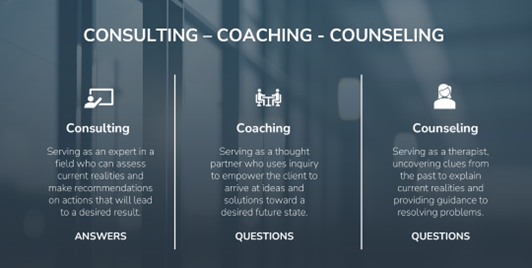
Distinctive Paths: Understanding Coaching in Relation to Counseling, Consulting, Mentoring, Supervising, Managing, and Directing
Understanding the distinct essence and transformative power of coaching involves recognizing how it diverges from other support and guidance disciplines such as counseling, consulting, mentoring, supervising, managing, and directing. This clarity is essential not only for aspiring coaches but also for anyone seeking to leverage these disciplines effectively within professional or personal contexts. By highlighting the nuances and unique characteristics of each field, participants in this program can navigate the complexities of institutional support structures with greater proficiency and choose the most appropriate method to achieve their goals.

Counseling is primarily focused on helping individuals address personal, emotional, or psychological issues. It involves creating a safe and confidential environment where clients can explore their feelings and behaviors, understand themselves better, and work through personal challenges. Counselors are trained to listen empathetically and provide support without judgment, guiding clients towards healing and emotional well-being.
Consulting, in contrast, is more outcome-oriented and typically revolves around providing expert advice to organizations or individuals. Consultants are specialists in a particular field or industry and offer strategic insights, solutions, and actionable plans to help improve business operations, increase efficiency, or solve specific problems. Consulting is less about personal development and more about enhancing organizational performance through expert guidance.
Mentoring Mentoring is a developmental relationship where a more experienced individual (mentor) provides guidance and support to a less experienced person (mentee), primarily within a professional context. This relationship is pivotal for the mentee’s growth, offering a blend of career guidance, skill development, and personal advice. Unlike the structured nature of coaching, mentoring often takes a more informal and flexible approach, allowing the relationship to adapt based on the mentee’s evolving needs and goals.
Mentors leverage their own experiences and insights to help mentees navigate their career paths, solve work-related problems, and make decisions that align with their long-term objectives. This shared knowledge is invaluable, as it is grounded in real-world applications and tailored to the mentee’s specific context. Furthermore, mentoring extends beyond mere skill enhancement to include fostering professional networks and providing emotional support, which are crucial for comprehensive personal and professional development.
Through this supportive partnership, mentees gain confidence, expand their understanding of their industry, and develop crucial skills and strategies that contribute to their career advancement and personal growth. This makes mentoring an essential element in nurturing the next generation of professionals, enhancing both individual capabilities and organizational strength.
Supervising and managing share similarities but are distinct in their focus. Supervision involves overseeing the performance of tasks and ensuring that organizational standards are met. It can include elements of training and feedback but is typically more directive and concerned with maintaining control and adherence to protocols. Managing, meanwhile, encompasses a broader scope, including strategic planning, resource allocation, team leadership, and decision-making. Managers are responsible not just for overseeing work but also for motivating teams and aligning their efforts with the organizational goals.
Directing is the most authoritative of these roles and involves making decisions, giving commands, and setting the direction for others to follow. This role is crucial in scenarios where clear, decisive leadership is required to achieve specific outcomes.
Coaching stands apart from these disciplines in its core philosophy and approach. Coaching is not about advising or directing but about empowering individuals to discover their own solutions. Coaches facilitate a process by which clients identify their goals, explore their options, and commit to action plans. Through powerful questioning and active listening, coaches help clients enhance their self-awareness, uncover their potential, and develop their abilities to handle future challenges independently. Coaching focuses on enabling personal and professional growth based on the client’s own terms and within their own context.
By understanding these distinctions, participants in our program learn to discern when and how to use each of these approaches effectively. They develop a nuanced appreciation of the different ways in which people can be supported and led in various environments. This comprehensive understanding not only enhances their capability as coaches but also equips them with the knowledge to recommend or integrate other disciplines when more appropriate. Thus, the program doesn’t just teach about coaching; it prepares participants to operate effectively across the full spectrum of developmental and organizational contexts, making them versatile and adaptive leaders.

Case Study: IBM’s Corporate Mentoring Program
Background IBM, a global leader in technology and innovation, has long recognized the value of mentoring in fostering leadership, enhancing skills, and driving career development. To address the diverse needs of its workforce and to prepare for future challenges, IBM launched a comprehensive corporate mentoring program aimed at developing a pipeline of skilled professionals ready to take on leadership roles within the company.
Objective The primary goal of IBM’s mentoring program was to facilitate knowledge transfer, enhance skill development, and support personal and professional growth among employees across various departments. Additionally, the program aimed to improve retention rates, boost employee engagement, and cultivate a culture of continuous learning and innovation.
Implementation IBM structured its mentoring program to be inclusive and adaptable, catering to different career stages and objectives. The program included:
• One-on-one mentoring: Senior employees paired with less experienced staff to provide guidance, share knowledge, and offer career advice.
• Group mentoring: Small groups of mentees matched with a mentor, encouraging collaboration and learning from peers’ experiences.
• Reverse mentoring: Younger employees shared fresh perspectives and technological skills with senior staff, promoting a two-way learning street.
The program was supported by a robust digital platform that facilitated mentor-mentee matching based on skills, career goals, and personal interests. This platform also provided resources and tools to help participants maximize their mentoring relationships.
Results The outcomes of IBM’s mentoring program were overwhelmingly positive:
• Skill Enhancement: Participants reported significant improvements in specific skills relevant to their roles, including technical abilities and leadership competencies.
• Increased Employee Engagement: Mentoring relationships led to higher levels of employee satisfaction and engagement, as mentees felt more valued and supported in their career paths.
• Cultural Impact: The program fostered a stronger sense of community and collaboration within IBM, breaking down silos and encouraging a more inclusive corporate culture.
• Leadership Development: Many mentees progressed to take on more significant roles within the company, equipped with the insights and confidence gained from their mentoring experiences.
Conclusion IBM’s mentoring program illustrates the profound impact of effective mentoring in a corporate setting. Unlike coaching, which is often more goal-specific and structured, mentoring at IBM created a flexible, supportive environment that allowed for personal and professional growth at various career stages. This case study not only highlights the benefits of mentoring but also underscores the importance of having a structured yet adaptable approach to mentoring within large organizations.
This program’s success demonstrates how mentoring can complement other developmental tools like coaching and consulting, providing a well-rounded framework that supports the overall growth and preparedness of an organization’s workforce.
Interactive Learning: Distinguishing Professional Roles Through Scenario-Based Exercises
In this engaging module of our workshop, participants are introduced to a series of interactive exercises designed to sharpen their understanding of the unique characteristics of different professional roles, such as coaching, consulting, mentoring, and more. These exercises are not only intended to bring theoretical concepts to life but also to provide a dynamic learning environment where the distinctions between these professions can be practically explored and understood.
Each activity is crafted to simulate real-world scenarios that participants might encounter in their professional lives. By navigating these situations, they will actively engage with the nuances that differentiate coaching from similar disciplines. This hands-on approach is crucial as it moves the learning from abstract to concrete, allowing participants to apply their knowledge in a controlled, yet realistic setting.
For instance, one exercise may place participants in the role of a coach, tasked with facilitating a client’s self-discovery and goal setting without providing direct advice. Contrastingly, the next scenario could have them act as consultants, where they must offer expert advice and solutions based on their knowledge and expertise. These contrasting scenarios highlight the proactive, client-driven approach of coaching versus the more directive and advice-giving nature of consulting.

Another activity might involve role-playing a mentoring session, where the emphasis is on sharing personal experiences and wisdom, guiding a mentee through similar challenges based on the mentor’s own career path. This differs significantly from supervising, which would be demonstrated in an exercise focused on overseeing and evaluating performance against set organizational standards.
Through these varied scenarios, participants will refine their ability to identify the distinguishing traits of each professional role. They learn to recognize when a situation calls for the empathetic, empowering approach typical of coaching, as opposed to the strategic guidance of consulting or the experiential sharing of mentoring. This distinction is crucial in developing effective communication and intervention strategies that are appropriate to the context and desired outcomes.
Moreover, these activities emphasize the responsibilities and dynamics unique to each role. Participants gain a deeper understanding of the boundaries and potentials of each discipline, enhancing their versatility as professionals in the fields of personal and professional development. By the end of this module, they will have a more comprehensive grasp of where each role fits within the broader spectrum of guidance and how they can adapt their skills to meet the varying needs of their clients or colleagues effectively.
This hands-on approach not only boosts the participant’s skill set but also deepens their understanding of the complex world of personal and professional development. It prepares them to make informed decisions about when and how to employ different strategies and techniques, based on a clear understanding of their distinct impacts and benefits. This is a critical competence for anyone looking to navigate and succeed in the interconnected and often overlapping domains of coaching, consulting, mentoring, and beyond.
Upholding Excellence: The Role of Certification and Professional Standards in Coaching
Certification and adherence to professional standards play pivotal roles in shaping the coaching profession, distinguishing it from related fields by ensuring quality, consistency, and accountability. As coaching has grown in popularity and influence across various sectors—from business to personal development—the need for established standards and validated credentials has become increasingly evident. Certification serves as a mark of professionalism and expertise, reassuring clients and organizations of a coach’s dedication to maintaining high standards in practice.
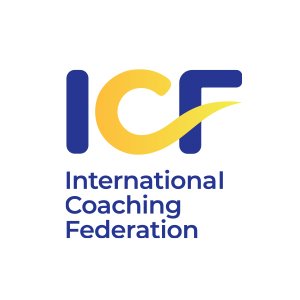
The International Coach Federation (ICF) stands at the forefront of promoting and enforcing these standards. As the leading global organization dedicated to advancing the coaching profession, the ICF provides a systematic framework that defines the ethical and professional boundaries within which coaches operate. This framework is crucial for the development and integrity of the coaching field, helping to differentiate it from other support roles such as mentoring, consulting, or therapy.
ICF certification is recognized worldwide and is seen as a gold standard in coaching. To obtain certification, coaches must complete specific training hours from ICF-accredited programs, demonstrate their coaching competency through recorded sessions, and pass a rigorous exam that tests their understanding of ICF’s core competencies and code of ethics. These requirements ensure that certified coaches are not only well-versed in the various coaching methodologies but also committed to ethical practice, which includes maintaining confidentiality, ensuring client autonomy, and prioritizing the client’s interests.
The core competencies outlined by the ICF include a broad range of skills and attributes essential for effective coaching. These include the ability to establish trust and intimacy with the client, active listening, powerful questioning, direct communication, and creating awareness. These competencies are designed to foster a supportive environment that encourages clients to unlock their potential and achieve their personal and professional goals. By adhering to these standards, coaches can provide high-quality services that lead to meaningful and transformative outcomes for their clients.
Moreover, the ICF promotes ongoing professional development and requires coaches to participate in continuing education to maintain their certification. This requirement ensures that coaches keep up-to-date with the latest research, tools, and techniques in the field, promoting continuous improvement and adaptation in their practice. Such a commitment to lifelong learning not only enhances the coach’s effectiveness but also bolsters the profession’s credibility and reputation.
The importance of these standards and the role of bodies like the ICF in upholding them cannot be overstated. In a field where the personal and professional stakes for clients are often high, the assurance of quality and ethical behavior provided by certification is invaluable. It not only helps clients feel more secure in their choice of coach but also elevates the profession as a whole, setting it apart from less regulated support roles.
In conclusion, certification and professional standards are fundamental to the identity and growth of the coaching profession. They ensure that coaches are competent, ethical, and effective in their practice, thereby safeguarding the interests of clients and enhancing the overall quality of coaching services. Through organizations like the ICF, these standards are rigorously developed, maintained, and promoted, ensuring that coaching remains a distinct and respected discipline within the broader landscape of personal and professional development.

Exercise 1.2: Role Identification and Scenario Simulation
1. Role Assignment:
• Each participant draws a role card at random which assigns them one of the following roles: Coach, Counselor, Consultant, Mentor, Supervisor, Manager, or Director.
• They will also draw a scenario card that describes a specific situation or challenge.
2. Scenario Simulation:
• Participants take turns acting out their roles based on the scenario provided. Each person has 5 minutes to demonstrate how they would handle the situation according to their assigned role.
• For instance, a coach might focus on asking probing questions to help the “client” uncover their own solutions, whereas a consultant might provide specific advice or strategies to solve the problem.
3. Feedback Round:
• Participants provide feedback on how effectively each member adhered to their role’s core principles.
• This feedback helps clarify any misconceptions and reinforces the understanding of each discipline’s unique focus.

Course Manual 3: History of Coaching
Advancing Professionalism: The Evolution and Recognition of Coaching Standards
The professional landscape of coaching has undergone a significant transformation in recent years, marking a critical advancement in how it is recognized and applied in various sectors. This shift towards professionalization is increasingly distinguishing coaching from other support professions such as counseling, which typically requires a legal license to practice. Unlike counseling, the coaching industry operates within a largely self-regulated environment, but it is progressively adopting stricter ethical and quality standards.

Traditionally, coaching was seen as a less formal or structured discipline, especially when compared to fields like counseling or psychotherapy that are regulated by strict educational requirements and state licensure. However, as coaching has grown in popularity and as its applications have expanded beyond personal development to include executive coaching, life coaching, and specialized business contexts, there has been a growing movement towards formalizing the profession to ensure its credibility and effectiveness.
This drive towards professionalization is largely facilitated by the establishment and enforcement of industry standards through professional bodies such as the International Coach Federation (ICF). These organizations play a pivotal role in defining what constitutes good coaching practice. They provide accreditation to training programs that meet specific criteria, ensuring that coaches have access to high-quality education and training. Furthermore, these bodies set ethical guidelines that all members must adhere to, which helps maintain professionalism within the industry and protects the interests of clients.
The ICF, for example, offers a well-defined credentialing system for coaches. This system requires coaches to undergo rigorous training, demonstrate a certain level of coaching experience, and pass a comprehensive examination that tests their understanding of core coaching competencies. By standardizing the requirements for professional practice, these organizations elevate the legitimacy of coaching as a profession and reassure clients about the quality and reliability of the services they receive.
Moreover, the commitment to ethical standards is crucial in an industry that is largely self-regulated. These standards cover various aspects of coaching, including client confidentiality, conflict of interest, professional conduct, and the overall integrity of the coaching relationship. Adherence to these ethical norms is essential not only for maintaining trust between coaches and clients but also for fostering a culture of accountability within the coaching community.
The increasing professionalization of coaching also reflects a broader recognition of its efficacy and importance in personal and professional development. Organizations and individuals are now more likely to invest in coaching services because there is greater assurance of the quality and professionalism of coaches. This acknowledgment is further supported by a growing body of research that underscores the effectiveness of coaching in enhancing productivity, leadership skills, and overall personal growth.
However, despite these positive developments, the coaching industry faces ongoing challenges related to its self-regulated nature. Without universal legal requirements or licensure, there remains a risk of variability in the quality of coaching services. This variability can sometimes make it difficult for potential clients to identify qualified or competent coaches. As such, the role of professional bodies in promoting high standards and continuous professional development is more crucial than ever.
In conclusion, the shift towards the professionalization of coaching represents a significant development in its maturation as a distinct discipline. By adopting rigorous ethical standards and formal credentialing processes, the coaching industry not only enhances its credibility and effectiveness but also aligns itself more closely with other established professions. This evolution is crucial for the continued growth and acceptance of coaching in diverse fields, ensuring that it remains a valuable tool for personal and organizational development.
Elevating Coaching: How the ICF and CCE Define Standards of Excellence and Foster Professional Growth
In recent years, the coaching profession has undergone a significant transformation, largely due to the efforts of institutions like the Center for Credentialing and Education (CCE) and the International Coaching Federation (ICF). These organizations have become pillars in the coaching community, setting high standards of excellence that have reshaped the landscape of professional coaching. Their rigorous certification processes and commitment to evidence-based practices have elevated the profession, offering it newfound respect and legitimacy.

The ICF, in particular, has been instrumental in defining what it means to be a professional coach. As one of the leading global organizations, it has established a comprehensive framework that all practicing coaches are encouraged to follow. This framework includes detailed ethical guidelines, a robust set of core competencies, and a structured pathway to certification that requires coaches to undergo specific training, accrue hours of coaching experience, and pass competency-based assessments. This structured approach ensures that coaches are not only well-prepared but also committed to maintaining the highest standards of practice.
Similarly, the CCE offers credentials that are recognized internationally, such as the Board Certified Coach (BCC) certification. The BCC certification is notable for its emphasis on rigorous education and experience requirements, along with a demonstration of core competencies. The CCE’s approach is comprehensive, ensuring that certified coaches are equipped with the necessary skills and knowledge to effectively support their clients.
The certification processes instituted by these organizations are more than just formalities; they are essential in ensuring that coaches have a solid educational foundation and adhere to a code of ethics that protects the interests of clients. This is particularly important in an industry that operates largely without governmental regulation. By adhering to these established standards, coaches not only improve their own credibility but also contribute to the overall trustworthiness of the coaching profession.
Furthermore, both the ICF and CCE are committed to promoting evidence-based practices within the coaching community. This commitment has sparked a paradigm shift towards more scientifically validated methods. Traditional coaching techniques are now being supplemented with approaches that have proven effective in empirical research. This includes integrating insights from psychology, management science, and educational theory into coaching methodologies. The emphasis on evidence-based practices ensures that the coaching services provided are not only ethical but also effective, leading to better outcomes for clients.
These organizations also play a crucial role in continuing education for coaches. The landscape of professional development is constantly evolving, and as new research and techniques emerge, ongoing education becomes essential. The ICF and CCE offer various resources, including workshops, seminars, and conferences, that help coaches stay updated on the latest developments in the field. This commitment to lifelong learning helps ensure that coaches remain at the cutting edge of the profession, equipped to handle the diverse needs of their clients.
The impact of the ICF and CCE in professionalizing coaching has been profound. They have not only provided structure and standards to a formerly unregulated field but have also fostered a culture of excellence and accountability. This has significantly contributed to the growing recognition of coaching as a legitimate and valuable form of professional support, comparable to more established fields such as counseling and consulting.
In summary, the efforts of the ICF and CCE in defining standards of excellence have transformed coaching into a respected profession characterized by a commitment to ethical practice, ongoing professional development, and evidence-based approaches. This transformation has not only benefited the coaches but also the clients they serve, ensuring high-quality, impactful coaching engagements.
Certification Excellence: Elevating Coaching Standards through ICF and CCE Credentials
The certification of coaching practitioners by prestigious organizations like the International Coach Federation (ICF) and the Center for Credentialing and Education (CCE) represents a critical milestone in the professionalization of the coaching industry. These certifications are not just accolades; they are rigorous affirmations of a coach’s expertise and the effectiveness of the coaching techniques they employ. This endorsement enhances the credibility of the coaching profession and ensures that clients receive services that meet high standards of quality and ethical practice.
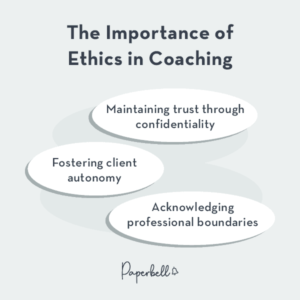
The ICF and CCE certifications are particularly significant because they reflect a commitment to excellence in a field that is not regulated by government bodies. These organizations set global standards for coaching practice, which include comprehensive educational and ethical requirements. Coaches certified by these bodies have completed detailed coursework, demonstrated their coaching abilities under supervision, and passed thorough examinations. Moreover, they are required to adhere to a strict code of ethics and to engage in ongoing professional development to maintain their certification. This rigorous process ensures that certified coaches are equipped with both the theoretical knowledge and practical skills necessary to effectively support their clients.
For clients and organizations considering coaching services, these certifications serve as a seal of approval, indicating that the coach has met predefined standards of competence and professionalism. This is particularly important in an industry where the variance in the quality and effectiveness of coaching can be significant. Certified coaches are proven to use methodologies that are not only based on the latest research and best practices but are also consistently reviewed and updated to reflect new insights and advancements in the field.
In programs like the one discussed here, the influence of such certifications is manifold. First, they guarantee that the content and coaching techniques taught are grounded in effective, evidence-based practices. Participants can trust that the strategies and skills they are learning are not only theoretically sound but have also been tested and validated in diverse coaching scenarios. This assurance makes the learning process more impactful and practical for real-world applications.
Furthermore, the adherence to high standards set by organizations like the ICF and CCE ensures that the coaching profession remains reliable and trustworthy. By standardizing what constitutes competent practice, these certifications help weed out ineffective or unethical practices that could undermine the reputation of coaching as a tool for personal and professional development. This is crucial for maintaining public trust and for the continued growth of the coaching field.
Moreover, the process of earning and maintaining a certification encourages a continuous learning mindset among coaches. This is vital in a profession where the landscapes of personal and professional challenges are constantly evolving. Certified coaches are required to keep up-to-date with their professional development, which involves accumulating a certain number of continuing education credits. This requirement not only keeps the coaches’ knowledge fresh but also ensures they are equipped to handle new and emerging challenges in the coaching realm.
In summary, the certification provided by respected organizations like the ICF and CCE is more than just a formal requirement; it is a cornerstone of the coaching profession’s integrity and effectiveness. These certifications validate the reliability of the coaching techniques taught in various programs, ensuring that they are based on a solid foundation of recognized knowledge and practice. As the coaching profession continues to grow, the role of these certifications in maintaining high standards of practice and fostering an environment of continuous improvement and credibility cannot be overstated.
Technological Transformation: How Innovations Are Shaping the Future of Professional Coaching
The integration of technology into professional coaching has dramatically transformed the landscape, making coaching more accessible and efficient while raising new possibilities for enhancing the effectiveness of coaching methods. The role of technology in coaching is multi-faceted, influencing everything from the way coaching sessions are conducted to how outcomes are measured and standards are maintained.
Virtual coaching sessions have become a norm, particularly highlighted by the global shift towards remote work during the COVID-19 pandemic. Platforms like Zoom, Skype, and proprietary web conferencing tools have enabled coaches and clients to connect from anywhere in the world, breaking geographical barriers that once limited the coach-client relationship. This accessibility has not only expanded the market for coaching services but also allowed clients to seek out coaches who best meet their specific needs and cultural alignment, regardless of location.
Furthermore, the advent of artificial intelligence (AI) in coaching is beginning to influence the industry significantly. AI-powered tools can analyze large amounts of data from coaching sessions to identify patterns, suggest areas for improvement, and even measure emotional states and engagement levels through voice and facial recognition technologies. For instance, AI can provide real-time feedback to coaches about their questioning techniques, the effectiveness of their communication style, and the emotional responses of their clients. This capability enhances the quality of coaching provided, making it more tailored and responsive to the client’s needs.
Additionally, technology facilitates the ongoing professional development of coaches. Online platforms offer a plethora of training modules, webinars, and certification courses that help coaches stay updated with the latest coaching techniques and industry standards. These resources are crucial for coaches who need to meet continuing education requirements to maintain their certifications with bodies like the International Coaching Federation (ICF) and the Center for Credentialing and Education (CCE).
Moreover, technology also supports the maintenance of ethical standards in coaching. Digital platforms that manage client-coach interactions can ensure that all communications are secure and confidential, adhering to the ethical guidelines set by professional bodies. They can also help in maintaining accurate records of coaching sessions, which is essential for transparency and accountability.
In conclusion, technology has not only facilitated the practical aspects of coaching but has also contributed to its credibility and professional growth. As technological advancements continue to evolve, they promise to further revolutionize the coaching profession, making it more data-driven, accessible, and aligned with global standards of practice. The future of coaching will likely see even greater integration of technology, with AI and machine learning playing a pivotal role in shaping its development.

Case Study: Google’s Project Oxygen
Background Google, known for its innovative approaches in managing human resources, embarked on an initiative called Project Oxygen in the early 2010s to determine what makes a manager great at Google. The project utilized data analytics and machine learning techniques to analyze over 10,000 observations about managers—across performance reviews, feedback surveys, and nominations for top-manager awards and other recognition.
Objective The main objective of Project Oxygen was to improve the quality of management and leadership across the company. Google sought to identify the behaviors of their best managers and then use that information to enhance training programs, coaching, and management strategies company-wide.
Implementation The Project Oxygen team analyzed data and feedback from various sources to identify key behaviors exhibited by the most effective managers at Google. The findings were distilled into a list of behaviors that were statistically associated with successful management. This list was then converted into a practical, actionable guide for current and future managers.
1. Key Managerial Behaviors Identified: The study revealed that successful Google managers:
• Are good coaches
• Empower the team and do not micromanage
• Express interest in employees’ success and well-being
• Are productive and results-oriented
• Are good communicators
• Help with career development
• Have a clear vision and strategy for the team
• Have key technical skills that help them advise the team
2. Training and Development: Based on these findings, Google revamped its manager training programs to focus on these key behaviors. Existing managers were also provided with coaching and developmental feedback based on their performance relative to the identified behaviors.
3. Continuous Feedback and Improvement: The initiative did not stop at training. Google implemented a continuous feedback loop where managers received regular surveys and feedback from their teams on these key behaviors. This ongoing assessment allowed managers to continue improving their skills and for Google to refine its training processes.
Results The impact of Project Oxygen was profound and multifaceted:
• Manager Quality Improvement: After implementing the training programs based on Project Oxygen’s findings, Google saw a marked improvement in manager quality company-wide. This was measured through upward feedback and employee satisfaction surveys.
• Enhanced Team Performance: Teams led by managers who exhibited the behaviors identified by Project Oxygen outperformed others, showing higher efficiency and better project outcomes.
• Cultural Shift: The project also contributed to a cultural shift at Google towards more transparency, data-driven management decisions, and a greater focus on coaching and development rather than command-and-control management styles.
Conclusion Google’s Project Oxygen stands as a benchmark in applying data-driven decision-making to the field of human resources, particularly in coaching and management. By identifying key behaviors that contribute to successful management and integrating these findings into managerial practices, Google not only enhanced the effectiveness of its managers but also improved overall employee engagement and performance. This case study exemplifies how companies can leverage data to refine leadership development and coaching initiatives, ensuring they are grounded in concrete, actionable insights.

Exercise 1.3: Coaching Standards Case Study Analysis
• Case study packets (including scenarios that highlight ethical dilemmas and standards applications)
• Discussion guidelines
• Evaluation forms
• Reference sheets detailing ICF and CCE standards and ethical guidelines
1. Divide into Groups: Participants are divided into small groups, each group focusing on a different case study.
2. Distribute Materials: Each group receives a case study packet that includes one or more scenarios involving coaching standards and potential ethical challenges.
3. Review Standards: Before diving into the case studies, participants briefly review the ICF and CCE standards and ethical guidelines to refresh their knowledge and ensure a thorough analysis.
1. Case Study Reading: Each group spends time reading through their case study in detail, identifying key issues related to coaching standards and ethics.
2. Group Discussion: Using the discussion guidelines, groups analyze the case study to determine:
• How the coach in the scenario applied or failed to apply professional standards.
• The impact of these actions on the client and the coaching outcome.
• Potential alternative actions that could have been taken to align more closely with ICF or CCE standards.
3. Solution Proposal: Each group develops a set of recommendations or best practices based on their analysis, focusing on how coaches can better adhere to professional standards in similar situations.

Course Manual 4: Coaching Research
In the rapidly evolving field of professional coaching, the influx of empirical research has been crucial in substantiating the efficacy and transformative potential of coaching methodologies, particularly in the context of internal coaching within business environments. This workshop section introduces the extensive body of research that underscores the tangible benefits and notable achievements associated with integrating a coaching-centric paradigm in the workplace.
The integration of coaching practices at the organizational level has been shown to catalyze significant improvements in various domains of corporate performance, including leadership development, employee engagement, and overall organizational efficacy. Studies indicate that when organizations adopt internal coaching programs, they witness marked enhancements in communication, employee satisfaction, and strategic execution.
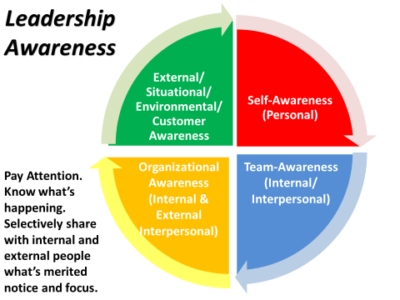
One of the primary benefits highlighted by research is the impact of coaching on leadership development. Leaders who receive consistent coaching report increased self-awareness and improved leadership skills, which are critical in managing teams effectively and driving organizational success. Research conducted across multiple sectors shows that coached leaders are more adept at navigating complex challenges, fostering a positive work environment, and eliciting high performance from their teams.
Furthermore, internal coaching fosters a culture of continuous learning and development, which is essential in today’s fast-paced business environments. Employees who participate in coaching programs often demonstrate a higher level of engagement and commitment to their roles. This heightened engagement is linked to better job performance, lower turnover rates, and a more profound alignment with organizational goals. Empirical data supports the notion that a coaching culture not only nurtures talent but also aligns employee aspirations with company objectives, thereby enhancing retention and job satisfaction.
The effectiveness of coaching also extends to facilitating organizational change. Coaching provides a supportive framework that helps individuals navigate the uncertainties and stresses associated with significant changes in the workplace. Through goal-setting and personal development, coaching enables employees to contribute more effectively to change initiatives, making the transition smoother and more successful. Studies have found that organizations that employ coaching strategies during periods of change achieve better outcomes in terms of employee adaptation and overall change integration.
Moreover, coaching methodologies have been proven to improve decision-making abilities. Coaches help individuals to refine their problem-solving skills by encouraging reflective thinking and exploring different perspectives. This approach leads to more innovative solutions and better decision-making processes at all levels of the organization. Research shows that when individuals feel supported in their decision-making, they are more likely to take constructive risks and contribute creatively to the organization’s objectives.
The positive outcomes of internal coaching are also reflected in quantitative measures such as productivity and profitability. Organizations that implement coaching report higher productivity levels due to more motivated and effectively managed teams. Profitability also tends to increase as improved team dynamics and enhanced leadership skills lead to more efficient operations and better customer relationships.
In summary, the wealth of empirical research on the benefits of coaching within business environments provides compelling evidence of its value. Coaching not only enhances individual performance but also contributes significantly to organizational success. As more companies recognize the substantial impacts of a coaching-centric approach, the adoption of such paradigies is likely to increase, further embedding coaching as a vital component of modern organizational strategy. This introduction to the evidence supporting coaching methodologies underscores why many businesses are now prioritizing the development of internal coaching capabilities to secure a competitive advantage and ensure sustainable growth.

Case Study
A real example that illustrates the effectiveness of internal coaching in business environments is the coaching program implemented by Microsoft under the leadership of CEO Satya Nadella. When Nadella took over in 2014, he initiated a cultural shift from a know-it-all to a learn-it-all culture, placing a strong emphasis on personal and organizational growth through coaching.
Microsoft’s coaching initiative focused primarily on leadership development, aiming to enhance the skills and self-awareness of its leaders. This program was integral to transforming the management style across the company, fostering an environment where innovation and collaboration flourished. Leaders were coached on emotional intelligence, inclusive management practices, and effective communication, which were crucial as Microsoft looked to navigate the competitive tech landscape and internal challenges.
The results of this coaching initiative were significant. Microsoft reported improvements in employee engagement scores, with a marked increase in job satisfaction and team collaboration. This boost in engagement was directly linked to the enhanced leadership skills developed through the coaching program. Additionally, the company saw a decrease in employee turnover rates, as individuals felt more valued and supported in their professional growth.
Furthermore, Microsoft’s internal coaching also supported strategic execution and adaptation during periods of change, such as the shift toward cloud computing and the integration of large acquisitions like LinkedIn. Coaching helped managers and teams align with new corporate strategies and effectively manage the transitions, contributing to the company’s continued growth and profitability.
The success of Microsoft’s coaching program underscores the profound impact that a well-implemented coaching strategy can have on an organization. It not only improved leadership capabilities but also fostered a supportive and innovative work environment, driving better business outcomes and making Microsoft a leader in its industry once again. This example serves as a benchmark for other organizations aiming to leverage coaching to enhance their competitiveness and organizational health.
Empowering Organizational Success: The Empirical Impact of Coaching on Key Business Metrics
In this workshop section, participants delve into a comprehensive compilation of research that illuminates the transformative impact of coaching on pivotal organizational metrics such as retention rates, employee engagement, productivity levels, and overall performance outcomes. Through a curated exploration of seminal studies and empirical evidence, attendees gain a deep understanding of the empirical foundations that underscore the essential role of coaching in driving organizational success and fostering an atmosphere of continuous improvement and advancement.
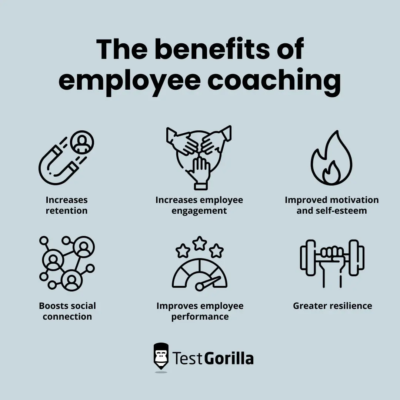
The session begins by examining studies that demonstrate the direct correlation between coaching and improved employee retention rates. Research highlights how coaching significantly reduces turnover by addressing personal and career development needs, thereby increasing job satisfaction and organizational loyalty. A study by the International Coaching Federation (ICF) reveals that employees who receive regular coaching are more likely to perceive their workplace as supportive and are less likely to seek employment elsewhere. This insight is crucial for organizations aiming to reduce recruitment costs and preserve valuable institutional knowledge.
Next, the focus shifts to employee engagement, an area where coaching has a pronounced impact. Seminal research indicates that coaching cultivates a supportive environment that empowers employees, giving them the tools and confidence to undertake greater responsibilities and contribute more effectively to team goals. This enhanced engagement is reflected in higher levels of job satisfaction and productivity, as employees feel more valued and are therefore more committed to their roles. Quantitative studies presented in the workshop show a significant uptick in engagement scores in departments where coaching is prevalent.
The discussion then explores the effect of coaching on productivity levels. Empirical evidence suggests that coaching leads to a better alignment of individual goals with organizational objectives, which in turn enhances work efficiency and output. A notable study discussed during the session, conducted by a leading business school, found that departments that implemented structured coaching programs saw a measurable increase in productivity compared to those that did not. The study attributes this increase to improved communication and clearer goal-setting, which are often direct results of effective coaching practices.
Moreover, the role of coaching in improving overall performance outcomes is examined. Through real-world case studies and peer-reviewed articles, participants learn how coaching helps organizations achieve and exceed their performance targets. Coaching is shown to enhance decision-making skills, foster innovation, and improve risk management—key components that drive superior performance results. This segment of the workshop emphasizes the strategic value of coaching as a tool for achieving competitive advantage.
Finally, the session highlights how coaching contributes to creating an environment of ongoing enhancement and progress within organizations. It discusses how coaching encourages a culture of feedback and reflective practice, which are vital for continuous improvement. The participants review longitudinal studies that track the long-term benefits of establishing a coaching culture, including enhanced adaptability to market changes and improved crisis management capabilities.
In summary, the workshop provides participants with a well-rounded comprehension of how coaching positively affects crucial organizational metrics. By examining a range of academic and empirical sources, participants not only appreciate the substantial impact of coaching on organizational success but also understand the underlying mechanisms that make coaching an indispensable tool for modern businesses seeking to foster sustainable growth and development. This thorough exploration equips participants with the knowledge to advocate for and implement coaching strategies within their own organizations, confident in the empirical evidence that supports its efficacy.
Empirical Insights: The Role of Evidence-Based Coaching in Achieving Organizational Excellence
In the dynamic realm of modern business, coaching has emerged as a pivotal strategy for enhancing organizational excellence and creating high-performance cultures. This section of the workshop delves into how evidence-based coaching practices not only bolster the efficacy of coaching but also serve as the foundational elements for nurturing a thriving, dynamic work environment.
The role of evidence-based coaching practices is critical in ensuring the sustainable success of organizations. These practices are grounded in rigorous research and empirical data, providing a solid framework from which organizations can enhance their strategic initiatives. By integrating these proven methods, organizations are able to foster environments where continuous improvement and exceptional performance are the norms.
During this workshop session, participants gain a nuanced understanding of the empirical evidence that underscores the effectiveness of coaching. This understanding is crucial as it bridges the gap between theoretical knowledge and practical application, ensuring that coaching strategies are not just conceptually sound but also effectively implemented in real-world scenarios.
Research has consistently shown that coaching influences numerous facets of organizational performance. For instance, studies highlight that well-implemented coaching programs can lead to improved employee retention rates, heightened productivity, and greater overall organizational performance. By adopting coaching practices, companies enable their employees to realize their full potential, thereby contributing positively to the organization’s objectives.
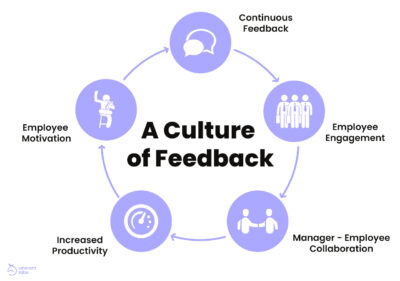
Furthermore, coaching cultivates a culture of feedback and development. This is pivotal in today’s fast-paced business environment, where adaptability and continuous learning are essential. Coaching provides a structured yet flexible framework for personal and professional growth, allowing individuals to explore their strengths and areas for improvement in a supportive setting. This not only enhances individual capabilities but also elevates team dynamics and organizational outcomes.
The transformative potential of adopting a coaching-driven organizational culture is immense. It extends beyond mere performance metrics to influence the very core of organizational culture—shaping a workplace where innovation, engagement, and accountability are deeply embedded. The insights from various empirical studies discussed in this session illuminate how organizations that embrace a coaching culture experience a significant transformation in their work environments. These organizations report higher levels of employee engagement, better adaptability to change, and improved problem-solving capabilities.
This workshop segment also prepares participants to understand the broader implications of these findings. By exploring how coaching aligns with and supports broader organizational strategies, participants can better appreciate how coaching interventions align with overall business goals. This comprehensive understanding is essential for decision-makers and HR professionals aiming to integrate coaching into their strategic plans effectively.
In summary, this session not only highlights the empirical underpinnings of coaching efficacy but also sets the stage for participants to explore the practical applications of these insights. By the end of this session, participants will be equipped with the knowledge to advocate for and implement coaching practices that are robust, research-backed, and aligned with achieving high performance and organizational excellence. Through this, the workshop fulfills its goal of illustrating the transformative power inherent in a coaching-driven culture, bridging the theory-practice gap with actionable, research-backed insights.
Enhancing Development: The Unique Advantages of Coaching Over Traditional Learning Methods
In the realm of personal and professional development, various tools such as training workshops, seminars, e-learning, and coaching are employed to enhance employee skills and performance. Each tool has distinct features and benefits, but coaching stands out for its highly personalized approach that caters directly to individual needs, offering several unique advantages over other methodologies.
Training workshops and seminars are typically structured and designed to address a broad audience with a one-size-fits-all approach. They are effective for disseminating information and teaching specific skills to large groups simultaneously. However, these formats often lack the ability to delve into individual learning styles or provide personalized feedback based on individual performance. While they are excellent for foundational knowledge and initial skill-building, their generic nature may not fully address unique personal challenges or aspirations.
In contrast, e-learning offers flexibility in terms of timing and pace, allowing individuals to learn at their own convenience. This method is particularly effective in today’s digital age, where resources can be accessed globally and learning can be self-directed. Despite these advantages, e-learning still lacks the interactive and human element provided by real-time feedback and personalized guidance, which are crucial for deeper learning and behavior change.
Coaching, on the other hand, provides a distinct blend of personalization, real-time feedback, and adaptability to the learner’s needs. One of the primary benefits of coaching is its focus on personalized attention. Unlike workshops and seminars that cater to the masses, coaching sessions are tailored to the individual. This bespoke approach allows the coach to work intimately with the coachee to identify specific areas of improvement, align development plans with personal and career goals, and navigate through personal barriers that may be impeding growth.
Moreover, coaching is inherently flexible, not only in terms of scheduling but also in adapting to the evolving needs of the coachee. As individuals grow and their professional landscapes change, coaches can adjust their strategies and focus areas to remain relevant and supportive. This dynamic nature of coaching is critical in today’s fast-paced business environments where continuous development is key to staying competitive.
Another significant advantage of coaching over other development tools is its ability to facilitate deep, reflective thinking and self-awareness, which are often overlooked in more structured learning environments. Coaches engage individuals in conversations that challenge them to reflect critically on their behaviors, beliefs, and attitudes. This reflective process encourages deeper personal growth and often leads to more sustainable changes in behavior compared to the learning that occurs through passive methods like seminars or e-learning modules.
Additionally, the relationship built between coach and coachee can provide a safe space for vulnerability and honesty, which is conducive to growth. This level of trust and openness is rarely achieved in traditional training settings or through virtual learning platforms.
In terms of organizational impact, coaching can also be more effective in driving change and improving performance. Because coaching is so tailored and closely aligned with the coachee’s personal motivations and workplace realities, it can result in quicker and more profound changes in behavior. This directly affects productivity and job satisfaction, leading to better overall performance outcomes.
In conclusion, while workshops, seminars, and e-learning play critical roles in development and are valuable for broad knowledge dissemination and foundational skill-building, coaching offers a unique set of benefits that are particularly suited to fostering deep personal growth and sustainable change. Its personalized nature, coupled with the flexibility to adapt to individual learner needs, makes coaching a powerful tool in any organization’s development arsenal.

Exercise 1.4: Discussion Exercise – The Role of Coaching in Enhancing Employee Engagement and Retention
• Case studies on successful coaching interventions (optional)
• Discussion questions handout
• Whiteboard or flip chart
• Markers
1. Introduction:
• Briefly introduce the topic, highlighting the link between coaching, employee engagement, and retention.
• Distribute discussion questions to each group or display them prominently in the room.
2. Group Discussion:
• Each group discusses the questions provided, using personal experiences, hypothetical scenarios, or provided case studies as references. Suggested discussion questions include:
• How does coaching impact an employee’s perception of their value within an organization?
• What role does coaching play in aligning employee goals with organizational objectives?
• How can coaching address personal and career development needs to reduce turnover?
• In what ways does coaching influence job satisfaction and team dynamics?
3. Sharing Insights:
• Each group selects a spokesperson to summarize their discussion.
• Share summaries with the entire room, highlighting unique insights or common themes that emerged during discussions.

Course Manual 5: Coaching Types
The field of coaching is vast and multifaceted, encompassing a wide variety of sub-disciplines each tailored to address the unique needs of different types of individuals and organizations. This module serves as a navigational tool, guiding learners through a comprehensive exploration of the diverse sub-disciplines that collectively contribute to the rich tapestry of the coaching profession.
Leadership Coaching
Unlike typical coaching approaches, which may focus primarily on individual development, leadership coaching takes into account the larger context in which leaders work. It takes into account organizational culture, strategic objectives, and stakeholder interactions, realizing that effective leadership is more than just personal characteristics; it is also about navigating complicated organizational landscapes and driving collective progress.
Several fundamental themes emerge in leadership coaching:
Strategic Leadership Development: Leadership coaching goes beyond basic skill development to foster strategic thinking and decision-making ability. Coaches help leaders define their vision, align goals with company objectives, and establish effective ambiguity and uncertainty management solutions.
Emotional Intelligence and Relationship Building: Effective leadership is dependent on emotional intelligence and the capacity to form strong relationships. Coaches assist leaders in developing their self-awareness, empathy, and interpersonal skills, establishing a culture of trust, collaboration, and mutual respect within their teams.
Change Management and Adaptability: In today’s quickly changing corporate scene, executives must be proficient at navigating change and ambiguity. Leadership coaching provides leaders with the tools and mentality necessary to accept change, inspire creativity, and lead their teams through transitions with confidence and resilience.
Authenticity is a hallmark of effective leadership. Coaches help leaders match their behaviors with their fundamental values, creating authenticity, integrity, and ethical leadership practices that build trust and loyalty among team members and stakeholders.
Inclusive Leadership and Diversity: Leadership coaching emphasizes the importance of different viewpoints and inclusive decision-making processes. Coaches collaborate with leaders to identify unconscious biases, promote inclusivity, and cultivate cultures of belonging in which every voice is heard and appreciated.
Leadership Presence and Communication: Effective communication is the foundation of leadership success. Leadership coaching assists leaders in honing their communication skills, developing executive presence, and adapting their messaging to resonate with varied audiences, promoting clarity, engagement, and alignment throughout the business.
By incorporating these principles into leadership coaching techniques, coaches may assist leaders in reaching their full potential, driving organizational success, and creating environments in which individuals and teams thrive. This chapter presents a road map for aspiring leadership coaches to negotiate the difficulties of leadership development, assisting leaders in becoming catalysts for good change and transformation in their businesses.
Other Coaching Types
One of the fundamental sub-disciplines is executive coaching, which is primarily focused on enhancing the leadership capabilities of high-ranking corporate officers. Executive coaches work with these leaders to develop their strategic thinking, improve their communication skills, and enhance their ability to drive organizational change. This type of coaching is crucial in helping executives navigate the complex landscapes of global business and maintain their competitive edge.

Another significant area is life coaching, which aims to assist individuals in achieving personal goals and improving their overall quality of life. Life coaches help clients identify their values and aspirations, overcome personal obstacles, and make meaningful life changes. Whether it’s career transitions, personal development, or lifestyle improvements, life coaching provides the support and accountability needed to move forward effectively.
Career coaching, on the other hand, is specifically designed to aid individuals in managing their professional journeys. Career coaches help clients explore career options, make informed decisions about job opportunities, and strategize for professional growth. This sub-discipline is particularly beneficial for those at crossroads in their careers or those seeking to maximize their professional potential.
Health and wellness coaching has also gained prominence, especially in light of increasing awareness about the importance of holistic well-being. Health coaches work with clients to develop strategies that promote healthier lifestyles, focusing on areas such as nutrition, exercise, and mental health. This coaching style is integral in helping individuals make sustainable changes that lead to improved long-term health outcomes.
Business coaching is essential for entrepreneurs and business owners looking to develop their enterprises. Business coaches provide guidance on a variety of topics including business planning, market analysis, and operational strategies. This sub-discipline is tailored to foster growth, efficiency, and innovation within a business setting.
Furthermore, the niche of sports coaching cannot be overlooked. Sports coaches focus on developing athletes’ skills, strategic understanding, and psychological resilience. This coaching is crucial for athletes at all levels, from amateurs to elite professionals, and involves both physical training and mental conditioning.
In addition to these, there are emerging sub-disciplines such as cultural and diversity coaching, which focus on enhancing cultural competency within organizations. These coaches help individuals and teams to better understand and integrate diverse cultural perspectives into their work environments, thus enhancing teamwork and productivity.
Each sub-discipline of coaching holds its unique methodology and areas of focus but shares a common goal: to facilitate growth, development, and achievement. As learners navigate through this module, they will gain insight into how these various forms of coaching apply specific tools and frameworks to cater to different needs. This broad investigation not only highlights the versatility and depth of the coaching profession but also underscores its critical role in personal and professional development across a spectrum of contexts.
This exploration is not merely academic; it equips potential coaches and clients alike with the knowledge to select the appropriate type of coaching for their specific needs, ensuring that they engage in the most effective and transformative coaching experiences possible. Through understanding the extensive range of coaching sub-disciplines, individuals and organizations can better harness the power of coaching to achieve remarkable outcomes.
Exploring the Spectrum: A Comparative Analysis of Coaching Sub-Disciplines
The module dedicated to exploring the unique qualities of various coaching sub-disciplines embarks participants on a scientific quest, examining the distinctive approaches, focal points, and overall objectives that characterize fields such as business, career, life, sports, wellness, and health coaching. By employing a comparative lens, this exploration not only highlights the diverse methodologies inherent in each sub-discipline but also showcases the specific frameworks that support their effectiveness.
Business Coaching
Business coaching is a specialized sub-discipline within the broader field of coaching, tailored specifically to address the challenges and needs of businesses at different stages of their growth. This form of coaching is crucial for enhancing business performance and facilitating sustainable growth through focused strategic planning, leadership development, and improving operational efficiencies.
At its core, business coaching involves a collaborative relationship between the coach and business leaders, such as entrepreneurs, executives, and management teams. This relationship is designed to identify and leverage the business’s strengths while simultaneously addressing its weaknesses. Business coaches employ various tools and techniques to conduct thorough analyses of the business environment, pinpointing opportunities for growth and areas vulnerable to threats. This strategic evaluation forms the foundation for informed decision-making and effective resource management.

One of the primary focuses of business coaching is strategic planning. Coaches guide business leaders in setting realistic, measurable, and achievable goals. By providing an external perspective, coaches can help leaders see beyond the day-to-day operations and envision long-term outcomes. This strategic foresight is vital in steering the business towards its objectives while navigating the complexities of the market.
Additionally, leadership development is a significant aspect of business coaching. Coaches work to enhance the leadership skills of key personnel by improving communication, decision-making abilities, and leadership styles. This development ensures that leaders can manage teams more effectively, inspire and motivate employees, and foster a positive, productive workplace culture.
Operational efficiency is another critical area where business coaches add value. They help organizations streamline processes, improve productivity, and optimize the use of resources. This can lead to significant cost savings and improved profitability, ensuring the business remains competitive and can sustain its growth over time.
In summary, business coaching is a vital tool for any organization aiming to enhance its market position, profitability, and long-term viability. It equips leaders with the skills and strategies necessary to navigate business challenges effectively and achieve their desired outcomes.
Career Coaching
Career coaching is an essential sub-discipline within the broader field of coaching, distinguished by its focus on individual advancement and professional development. This type of coaching is tailored to assist clients in navigating their career paths with a keen understanding of personal aspirations, skill sets, and the broader job market. Through career planning, skill assessment, and market analysis, career coaches equip individuals with the tools necessary to carve out a fulfilling professional journey.
At the core of career coaching is the identification of an individual’s professional desires, strengths, and areas for development. Coaches work closely with clients to map out their career trajectories by aligning their skills and aspirations with real-world market opportunities. This alignment is crucial as it ensures that individuals are not only aware of their potential but are also positioned effectively within their chosen industries.
Career coaches provide practical support that extends beyond mere counseling. They assist clients in building robust resumes that highlight their skills and experiences in a manner that appeals to potential employers. Additionally, they offer rigorous interview preparation sessions that help clients present themselves confidently, ensuring they make a strong impression during job applications. This preparation is particularly vital for individuals looking to advance in their current roles or those considering a career transition.
Furthermore, career coaching involves strategic guidance on navigating workplace dynamics, enhancing professional visibility, and networking effectively. This comprehensive approach ensures that individuals are not just prepared to take on new job roles but are also equipped to thrive in them, driving their careers forward with confidence and clarity. In summary, career coaching is an invaluable resource for anyone looking to enhance their professional life, providing personalized guidance that aligns with both personal aspirations and market demands.
Life Coaching
Life coaching is a transformative sub-discipline within the coaching field that focuses on enhancing personal growth and overall life satisfaction. It caters to individuals seeking to improve various aspects of their lives, including personal goals, life balance, and personal fulfillment. Life coaches employ techniques that help individuals identify their core values and motivations, which are essential for making informed and meaningful life choices.

A key component of life coaching is guiding clients through the process of self-discovery to better understand their desires, strengths, and areas for improvement. This deepened self-awareness allows individuals to pinpoint what truly matters to them, facilitating more aligned and purposeful actions. Life coaches support their clients in setting realistic and achievable goals, while also assisting them in developing strategies to overcome personal obstacles that may impede progress.
The emphasis on accountability is significant in life coaching. Coaches work with clients to establish clear, actionable steps towards their goals and regularly monitor progress. This accountability ensures that clients remain committed to their personal development plans and are consistently taking steps towards enhancing their life satisfaction.
Life coaching also encourages clients to examine and adjust their life balance, ensuring that they are not only pursuing career success but are also nurturing other aspects of life such as relationships, health, and personal interests. This holistic approach helps clients achieve a more balanced and fulfilling lifestyle, improving their overall well-being.
Overall, life coaching is about enabling individuals to make impactful changes through guided self-reflection and strategic action planning. It supports clients in navigating life’s complexities and challenges, empowering them to live more effectively and with greater fulfillment. This sub-discipline is invaluable for anyone looking to profoundly transform their personal and professional life, ensuring they lead a more balanced and contented existence.

Case Study: PepsiCo – Developing Future Leaders through Coaching
PepsiCo, a global leader in the food and beverage industry, recognized the necessity of investing in leadership development to stay competitive and foster a culture of innovation and sustainability. The company initiated a comprehensive leadership coaching program aimed at developing its senior executives and high-potential leaders.
Client Profile
Indra Nooyi, who eventually became PepsiCo’s CEO in 2006, exemplifies the positive impact of leadership coaching. Before her role as CEO, Nooyi held various strategic positions within the company and was identified as a high-potential leader. To prepare her for increased responsibilities, Nooyi participated in PepsiCo’s leadership coaching program.
Coaching Goals and Approach
The coaching program had several goals for Nooyi: enhancing her strategic vision, improving her emotional intelligence, strengthening her communication skills, and developing her change management abilities. She received personalized coaching from experienced executives and leadership coaches. A 360-degree feedback process provided insights into her leadership style, informing her development plan.
Additionally, PepsiCo implemented comprehensive leadership development programs, including workshops, peer coaching, and mentorship. Nooyi engaged in mentorship relationships with senior executives and participated in peer coaching groups, providing her with diverse perspectives and support in her leadership journey.
Outcomes
Nooyi’s participation in the leadership coaching program was instrumental in her development and promotion to CEO. Under her leadership, PepsiCo achieved significant growth and innovation, led transformative strategic initiatives such as the “Performance with Purpose” focus on sustainability, health, and wellness, and saw enhanced leadership capabilities within the organization. Her improved emotional intelligence and communication skills enabled her to lead with empathy, build strong stakeholder relationships, and inspire her teams.
The leadership coaching program also contributed to a cultural transformation at PepsiCo, fostering a more inclusive, innovative, and sustainable organizational culture. Under Nooyi’s leadership, PepsiCo experienced sustained growth, expanding its global presence and diversifying its product portfolio to meet changing consumer preferences.
Conclusion
PepsiCo’s investment in leadership coaching for Indra Nooyi and other high-potential leaders was pivotal in driving the company’s strategic transformation and long-term success. By focusing on strategic vision, emotional intelligence, communication skills, and change management, PepsiCo developed leaders capable of navigating complex challenges and leading the organization towards a sustainable and innovative future. This case study highlights the significant impact of leadership coaching on individual and organizational development.
Sports Coaching
Sports coaching is a specialized area of coaching that concentrates on developing athletes’ skills and achieving their sporting goals. This sub-discipline is integral to athletic success, combining rigorous physical training with mental conditioning to boost performance across various sports. Sports coaches play a pivotal role in the enhancement of an athlete’s technique, strategic thinking, and psychological resilience.
The primary aim of sports coaching is to optimize an athlete’s performance both in practice sessions and competitive environments. Coaches work closely with athletes to refine their techniques, ensuring that every physical movement is executed with precision to maximize efficiency and effectiveness. This detailed attention to technique not only helps in improving performance but also reduces the risk of injury, which is crucial for an athlete’s long-term career.
Strategic thinking is another critical area emphasized in sports coaching. Coaches assist athletes in understanding the strategies applicable to their sport, including game plans and competitor analysis. This strategic layer of coaching helps athletes to anticipate and react during competitions, giving them a competitive edge.
Additionally, sports coaching addresses the psychological aspects of athletic performance. Coaches equip athletes with mental toughness and resilience skills to handle the pressures of competition and the highs and lows of athletic performance. Techniques such as visualization, concentration, and stress management are commonly taught to enhance mental strength.
Furthermore, a holistic approach is central to sports coaching, which includes managing athletes’ recovery periods and implementing preventative measures against injuries. Recovery strategies such as proper nutrition, rest, and injury prevention routines are tailored to each athlete to ensure they maintain peak physical condition.
In summary, sports coaching is a comprehensive discipline that not only focuses on improving physical abilities and tactical understanding but also strengthens the mental fortitude of athletes, all while fostering a balanced approach to recovery and health management. This holistic strategy is essential for achieving and sustaining athletic excellence.
Wellness and health coaching
Wellness and health coaching are dynamic sub-disciplines within the coaching field, focused on enhancing the overall health and well-being of clients. While both share a common goal of improving health outcomes, they address different aspects of health and lifestyle improvements.
Wellness coaching is a comprehensive approach that encompasses various dimensions of a person’s life, including physical fitness, nutrition, and mental health. Wellness coaches guide clients through the process of making sustainable lifestyle changes that contribute to long-term well-being. They help individuals understand and integrate wellness practices into daily life, addressing habits related to exercise, diet, stress management, and sleep. The goal is to foster a holistic sense of wellness that supports all aspects of the individual’s life, enhancing overall life satisfaction and functionality.

On the other hand, health coaching typically has a more targeted focus, often dealing with specific health-related goals such as disease prevention, managing chronic health conditions, or optimizing health through tailored lifestyle adjustments. Health coaches work with clients to identify and modify behaviors that directly impact their health. This might include guidance on nutritional choices, assistance in weight management, and strategies to control conditions like diabetes or heart disease. Through personalized planning and support, health coaches aim to empower clients to take charge of their health and achieve significant, measurable improvements in their physical condition.
Both wellness and health coaches are pivotal in helping clients set realistic health goals and developing plans that encourage adherence to healthy behaviors. They provide the motivation and support needed to make difficult changes, ensuring that these adjustments are practical, achievable, and sustainable. Whether it’s through broad lifestyle changes advocated by wellness coaching or more specific health targets in health coaching, these sub-disciplines play a crucial role in guiding individuals towards a healthier and more fulfilling life.
Each of these sub-disciplines utilizes specific methods and frameworks tailored to their unique focus areas. For instance, business and career coaches might employ SWOT analysis and goal-setting frameworks to clarify and achieve professional objectives. In contrast, life coaches might use tools like the Wheel of Life to help clients balance various aspects of their life effectively.
Moreover, sports coaches often use performance metrics and video analysis as part of their methodology to refine athletes’ techniques and strategies. Wellness and health coaches might integrate motivational interviewing and behavioral change models to support clients in transforming their health behaviors.
This comparative exploration allows participants to understand not only the goals and applications of each coaching type but also the specialized tools and approaches used to achieve success within each domain. As participants delve into the specifics of each sub-discipline, they gain insights into the tailored strategies that make coaching an adaptable and powerful tool for personal and professional development across various aspects of life and business. This understanding is crucial for both aspiring coaches and clients looking to engage the right type of coaching for their specific needs, ensuring they benefit maximally from the distinct advantages each style offers.
Unified Principles: Exploring the Core Values Across Coaching Disciplines
This module delves into the cohesive themes that bind various coaching sub-disciplines, despite their distinct focuses and methodologies. Central to the coaching practice across all domains are the core values of goal attainment, empowerment, and personal development. By exploring these shared principles, participants will gain a deeper appreciation of the coaching profession’s unified purpose, despite its apparent diversity.
Through a detailed examination of the unique characteristics and common traits of each coaching sub-discipline, such as business, career, life, sports, wellness, and health coaching, participants will uncover the fundamental elements that make coaching an effective tool for change. This comparative analysis will highlight how each specialty adapts these core principles to suit specific needs and contexts, demonstrating the versatile and dynamic nature of coaching.
Understanding these unifying themes helps participants recognize the adaptability of coaching strategies and enhances their ability to effectively apply coaching principles in varied situations. This broader comprehension fosters a more versatile approach to coaching, empowering participants to navigate different coaching scenarios with confidence and insight.

Exercise 1.5: Exploring Coaching Sub-Disciplines
• Flip charts or whiteboards
• Markers
• Sticky notes
• Begin with a brief introduction, explaining the purpose of the exercise and the expected outcomes.
• Distribute handouts summarizing each coaching sub-discipline (leadership, executive, life, career, health and wellness, business, sports, cultural and diversity coaching).
• Divide participants into small groups, assigning each group a different sub-discipline of coaching.
• Instruct each group to read their assigned sub-discipline summary and discuss the following questions:
• What are the key goals of this type of coaching?
• Who is the primary target audience for this coaching sub-discipline?
• What are some common tools or methods used in this coaching practice?
• How can this type of coaching benefit an individual or organization?
• Summarize key takeaways from the workshop and any final thoughts.
• Provide resources or suggest follow-up actions for participants who wish to explore specific coaching certifications or further training.

Course Manual 6: Leadership Focus
Exploring Leadership: The Foundation of Our Coaching Framework
In the dynamic landscape of modern organizations, leadership is not just a role or a set of responsibilities—it is the cornerstone of a thriving organizational culture. Having explored a variety of coaching approaches and techniques, we now shift our focus to leadership, which underpins our entire coaching framework. This lesson delves into the critical concept of enabling leaders to mentor their colleagues effectively, thereby fostering an environment where leadership transcends organizational boundaries. By developing a robust group of skilled leaders who, in turn, coach and mentor others, we cultivate a community of perpetual learners and innovators. The ultimate goal is to embed exceptional leadership as a core ethos within businesses, achieved through the cascading effects of leadership coaching.
The Importance of Leadership in Coaching
Leadership is fundamentally about making others better as a result of your presence and making sure that impact lasts in your absence. In the context of coaching, leadership plays a dual role: leaders are both recipients of coaching and pivotal in delivering coaching to others. This dual capacity is essential because it helps propagate a culture of leadership throughout the organization, making leadership development not just a goal but an ongoing process.
The cascading effect of leadership coaching starts at the top. When senior leaders are coached, they are equipped not only with enhanced strategic thinking and decision-making skills but also with the tools to mentor their subordinates. This process creates a ripple effect throughout the organization, as each layer of leadership is trained to coach the next, thereby expanding the reach and depth of leadership skills across the company.
Building a Community of Skilled Leaders
Building a community of skilled leaders is fundamental to fostering a robust, sustainable, and dynamic organizational culture. This concept, a pivotal element of a comprehensive coaching framework, revolves around the development of leaders who are empowered to mentor and nurture the next generation of leadership within their ranks. This approach is rooted in the philosophy of “each one teach one,” advocating for a culture where knowledge is freely shared rather than guarded, thereby fostering a self-perpetuating cycle of growth and development.

The objective is to cultivate leaders who go beyond traditional managerial roles; these individuals are mentors and coaches who can recognize and cultivate the potential within their teams. By focusing on this aspect of leadership, organizations ensure that leaders are not only effective in their current roles but are also preparing the terrain for future leaders to emerge. These skilled leaders are instrumental in guiding their colleagues towards realizing their own leadership potential, encouraging them to take proactive steps towards personal and professional growth.
To effectively build such a community, a structured and multi-faceted approach to leadership development is essential. This methodology encompasses several critical components, each designed to equip leaders with the skills necessary to perform as both managers and mentors. Formal training sessions lay the groundwork by providing leaders with the essential knowledge and skills required for their roles. These sessions are designed to instill a deep understanding of the theoretical and practical aspects of leadership, management, and coaching.
Complementing these formal sessions, one-on-one coaching is another cornerstone of the framework, offering personalized guidance that is tailored to the unique challenges and opportunities faced by each leader. This personalized coaching is crucial as it allows for direct feedback and targeted developmental strategies, helping leaders refine their approach and enhance their effectiveness.
Peer mentoring is another integral component, fostering an environment where leaders at similar levels of authority can exchange ideas and strategies. This not only enhances learning and development through shared experiences but also helps in creating a cohesive leadership group that supports each other’s growth. Peer mentoring encourages a collaborative approach to leadership development, promoting a sense of community among leaders.
By integrating these elements—formal training, personalized coaching, and peer mentoring—organizations can establish a powerful framework that nurtures a continuous line of skilled, insightful leaders. This not only enhances the capabilities within the current leadership team but also ensures that the organization is continually evolving and adapting through the ongoing development of its future leaders. This strategy not only bolsters the organization’s resilience and adaptability but also secures its future by embedding a deep-seated culture of mentorship and continuous improvement.
Creating an Environment of Continuous Learning
Creating an environment of continuous learning is fundamental in a community of skilled leaders, especially in today’s rapidly evolving business landscape. As industries and technologies advance, leaders face new challenges and opportunities that demand adaptive strategies and innovative thinking. Embedding a culture of continuous learning within a leadership framework is crucial for ensuring that leaders not only keep pace with changes but also play a proactive role in shaping their organization’s future.
A coaching framework that prioritizes continuous learning encourages leaders to engage in ongoing professional development and skill enhancement. This approach involves several key elements that facilitate perpetual growth and adaptation. First, regular training updates are essential. These are not merely refresher courses but are strategic sessions that introduce leaders to the latest industry trends, new management techniques, and advancements in technology. By staying current with professional developments, leaders can better strategize and implement effective changes within their teams and departments.

Knowledge sharing sessions form another pillar of this continuous learning environment. These sessions provide a platform for leaders to exchange insights, experiences, and best practices with one another. This collaborative learning environment fosters a sense of community and support among leaders, enhancing their ability to learn from each other’s successes and challenges. It also serves to break down silos within the organization, promoting a more integrated and cohesive leadership approach.
Moreover, the encouragement of a feedback-rich culture is integral to continuous learning. In this culture, leaders are prompted to seek and provide feedback across all levels of the organization—upward, downward, and peer-to-peer. This feedback is invaluable as it offers diverse perspectives on leadership effectiveness, operational challenges, and opportunities for improvement. Encouraging leaders to solicit feedback from their superiors, peers, and subordinates not only aids in personal and professional growth but also models humility and openness. It demonstrates a commitment to self-improvement that resonates throughout the organization, setting a standard for others to follow.
This type of environment cultivates leaders who are not static in their roles but are dynamic learners, constantly seeking to enhance their capabilities and understanding. It creates leaders who are equipped to navigate the complexities of the modern business environment and who can lead their teams through periods of change with confidence and competence. Importantly, a continuous learning culture ensures that the entire organization remains agile and responsive, capable of adapting to external pressures and harnessing opportunities for innovation and growth.
By fostering continuous learning within its leadership ranks, an organization ensures its sustainability and relevance in the ever-changing business landscape. It prepares leaders not just to respond to changes but to anticipate them and act decisively, thus maintaining a competitive edge in their respective markets.
Leadership Without Borders
The concept of “Leadership Without Borders” embodies a revolutionary approach to leadership development, one that transcends traditional hierarchies and departmental divides within organizations. This approach is premised on the belief that leadership capabilities can and should be cultivated across all levels and functions of an organization, not just within the confines of designated managerial roles. By democratizing the process of leadership development, organizations not only empower a wider range of employees to take initiative and lead projects but also foster a culture of inclusivity and shared responsibility that can significantly enhance overall organizational performance.
One of the most profound benefits of this approach is the heightened engagement and ownership among employees. When individuals at all levels are given the opportunity and tools to lead, they feel more valued and invested in the outcomes of their efforts. This sense of empowerment encourages them to contribute more actively to strategic discussions and to take a proactive stance in their daily tasks and long-term projects. As a result, organizations benefit from a more motivated and committed workforce, which is crucial for driving innovation and maintaining competitive edge in today’s fast-paced business environment.
Furthermore, leadership without borders plays a crucial role in dismantling the ‘silo mentality’—a common challenge in many large organizations where departments or teams operate in isolation from one another. This compartmentalization can lead to inefficiencies, a lack of synergy between different parts of the organization, and even conflicts. However, when leadership is encouraged across different departments and functions, and when leaders are trained to think and act as coaches, there is a greater potential for cross-functional collaboration. Leaders who can coach and mentor not only within their teams but across teams foster a more integrated approach to problem-solving and project management.
This coaching-led leadership model also contributes to a more cohesive organizational culture. By promoting a uniform approach to leadership and development, organizations can align their diverse departments and teams around common goals and values. This alignment helps in building a strong organizational identity that supports unity and cooperation, thereby enhancing the ability to execute complex strategies and manage change more effectively.
In addition, the leadership without borders approach can lead to more innovative outcomes. When employees from various parts of an organization are encouraged to lead and share their perspectives, the pool of ideas expands dramatically. This diversity of thought is a key driver of innovation, as it allows for a variety of solutions and creative strategies to emerge, reflecting the input and expertise of a broader range of stakeholders.
Ultimately, by embracing a boundaryless concept of leadership, organizations not only enrich the professional lives of their employees but also enhance their own agility and resilience. This inclusive approach to leadership development ensures that every employee has the potential to influence and contribute to the organization’s success, creating a dynamic and adaptable enterprise ready to meet the challenges of the modern business world.

Case Study
Spotify’s innovative approach to leadership and organizational structure is embodied in its adoption of a model known as “Squads and Tribes.” This model eschews traditional corporate hierarchies in favor of a more flexible, autonomous framework where cross-functional teams (Squads) are organized into larger groups (Tribes) based on product areas.
Each Squad operates like a mini-startup, complete with a degree of autonomy that empowers team members to make decisions and lead initiatives relevant to their work. This structure encourages leadership at every level, fostering an environment where all employees are expected to take initiative and contribute to the direction and success of their projects. This is a distinct move away from the top-down leadership model and toward a more democratized, inclusive approach.
Leadership within Spotify is further defined by the role of “Chapter Leads” and “Tribe Leads,” who provide support across Squads and Tribes without traditional managerial control over the teams. Chapter Leads focus on personal and professional development within specific competency areas (such as quality assurance or software development), while Tribe Leads work to ensure that all Squads within the Tribe are aligned and collaborating effectively.
Spotify’s system promotes continuous learning and adaptability by allowing teams to pivot quickly and effectively in response to industry changes or internal feedback without the red tape often found in more traditional corporate environments. This fluid setup enables Spotify to stay at the forefront of innovation, constantly evolving its service offerings in tune with user needs and technological advancements.
Moreover, this leadership model has cultivated a strong culture of feedback and knowledge sharing, where learning from mistakes and successes is a shared responsibility. It’s this culture that has enabled Spotify to scale rapidly while maintaining a strong sense of agility and community among its employees.
By implementing the Leadership Without Borders concept, Spotify has not only enhanced its operational efficiency but also its employee satisfaction and corporate innovation, demonstrating the power of inclusive leadership and its impact on a global scale.
The Ethos of Exceptional Leadership
Ultimately, the goal of embedding an ethos of exceptional leadership within a business is to create an organization that is greater than the sum of its parts. An organization where leaders are not only effective in their roles but also contribute to the development of the next generation of leaders is an organization that is built to last. This ethos of leadership is characterized by a strong sense of purpose, a commitment to ethics and integrity, and a focus on long-term sustainability rather than short-term gains.
The cascading effect of leadership coaching ensures that these values are not just espoused at the senior levels but are ingrained throughout the organization. As more leaders are coached to coach others, these values become the guiding principles of the organization, shaping decisions and behaviors at all levels.
Conclusion
As we continue to explore and refine our coaching frameworks, the focus on leadership as the foundation is both strategic and necessary. By enabling leaders to mentor their colleagues and by fostering an environment of continuous learning and leadership without borders, we are not just developing individual leaders—we are cultivating a culture of leadership. This culture is the key to unlocking the full potential of our organizations and ensuring their success in a complex and ever-evolving business environment. The development of exceptional leadership, therefore, becomes more than just a goal—it becomes an integral part of the organizational fabric, a true ethos that defines and drives the entire enterprise.

Exercise 1.6: Leadership Ecosystem Map
This exercise aims to demonstrate the interconnectedness of leadership across an organization, emphasizing the importance of fostering a leadership culture that transcends traditional boundaries.
1. Introduction:
• Start with a brief introduction to the “Leadership Without Borders” concept, focusing on how leadership capabilities should be nurtured at all levels within an organization to foster inclusivity and shared responsibility.
2. Group Division:
• Divide participants into small groups
3. Mapping the Leadership Ecosystem:
• Each group is tasked with creating a visual map that represents the leadership ecosystem within a hypothetical or real organization.
• Use sticky notes for different roles and functions, connecting them with lines to show potential flows of mentorship, influence, and knowledge transfer.
• Encourage participants to think beyond conventional leadership roles and include non-traditional influencers such as junior staff who lead projects or cross-functional teams.
• Highlight the connections that can be fostered through coaching and mentoring across these roles.
4. Concluding Reflection:
• Wrap up by reflecting on how participants can apply the concept of a leadership ecosystem to their own organizations.
• Encourage them to identify at least one action they can take to promote a more inclusive and comprehensive approach to leadership in their work environment.

Course Manual 7: Defining Leadership
In the complex and ever-evolving field of leadership studies, the definition of leadership itself is as varied and dynamic as the leaders who embody it. This subject expands on a rich tapestry of leadership philosophies and coaching techniques, taking an explorative journey through the myriad ways leadership is conceptualized across academic and thought leadership circles. It serves not just as an academic exercise but as a foundation for understanding the diverse perspectives that shape the role of a leader in different contexts.
Leadership, traditionally viewed through the lens of hierarchical control and directive management, has evolved significantly in its interpretation and application. Modern leadership studies challenge this traditional view, embracing a spectrum of theories that offer a more nuanced understanding of what it means to lead. This exploration into leadership definitions encompasses a variety of frameworks developed by scholarly luminaries and visionary thinkers, each adding depth and color to the leadership landscape.
One of the foundational theories discussed is the Trait Theory, which suggests that effective leaders are born with certain traits such as charisma, intelligence, and confidence, making them naturally predisposed to leadership roles. Contrasting sharply with this is the Behavioral Theory, which argues that leadership is not an inborn trait but a series of learned behaviors that can be taught and developed. This theory emphasizes that anyone can become a leader by learning the necessary skills and behaviors.
As the discourse progresses, the subject delves into more contemporary theories such as Transformational Leadership, which has been widely embraced for its focus on visionary goals and the ability to inspire followers to transcend their own self-interests for the good of the group. This theory highlights the role of leaders as catalysts of change, who motivate and transform their followers to achieve extraordinary outcomes.
Equally influential is the concept of Servant Leadership, introduced by Robert K. Greenleaf, which prioritizes the leader’s role as a servant first, focusing on the needs of others, especially team members, before considering their own. This approach encourages leaders to foster a service-oriented culture within organizations, enhancing overall engagement and morale.
Another critical perspective explored is Situational Leadership, developed by Paul Hersey and Kenneth Blanchard, which posits that there is no single “best” style of leadership. Instead, effective leadership is largely dependent on the context and the readiness level of followers. This theory advocates for leaders to be adaptable, changing their style to fit the developmental and emotional needs of their team members.
The course also examines newer models like Adaptive Leadership, which is particularly relevant in today’s fast-paced, continuously changing global environment. This model stresses the importance of leaders being able to respond effectively to change and guide their teams through challenges and uncertainties.
Furthermore, the discussions extend into cross-cultural leadership, which examines how leadership concepts are applied differently across cultures. This aspect acknowledges that leadership is not only defined by universal traits or behaviors but also shaped by cultural contexts and values.
This broad survey of leadership theories not only enriches participants’ understanding but also challenges them to think critically about how these theories apply in practical, real-world situations. It encourages future leaders to adopt a more integrative and reflective approach to leadership, combining elements from different theories and practices to best suit their unique contexts and challenges.
In conclusion, this subject does more than just define leadership; it opens up a panoramic view of its many dimensions. Participants are encouraged to reflect on their own leadership styles and philosophies, considering how diverse perspectives can be adapted to enhance their own leadership effectiveness and the performance of their organizations. By exploring this rich diversity of leadership definitions, participants are better prepared to navigate the complex interactions and challenges of modern organizational life, equipped with a deeper, more comprehensive toolkit of leadership strategies and insights.

Case Study: Transforming Leadership at Zappos
Background:
Zappos, a leading online shoe and clothing retailer known for its exceptional customer service, underwent a radical transformation in its leadership and organizational structure under the guidance of CEO Tony Hsieh. The company adopted a management philosophy known as Holacracy in 2013, which is an embodiment of leadership without traditional managerial roles and hierarchical structures.
Objective:
The main objective behind this transformation was to enhance innovation and agility within the company. Zappos aimed to create an environment where all employees were capable of taking leadership roles in decision-making processes, thus promoting faster adaptation to market changes and customer needs.
Implementation:
Holacracy at Zappos abolished traditional job titles and managerial roles. Instead, the company was reorganized into more than 400 self-governing circles, each with its defined roles and responsibilities. Employees could take on multiple roles across different circles, depending on their skills and interests.
Leadership in this model was distributed, with each circle operating autonomously and employees leading projects or tasks for which they were responsible. This system encouraged every employee to act as a leader in their areas of expertise, fostering a sense of ownership and accountability.
Challenges:
The shift to Holacracy was not without challenges. One of the major hurdles was the cultural shift required for employees to adapt to a self-managed model. The change demanded a high degree of engagement and flexibility from all employees, who were used to a more traditional hierarchical structure.
Additionally, the lack of traditional management layers led to some initial confusion and inefficiencies. Employees had to learn how to manage their workloads without direct oversight and how to effectively collaborate within and across circles.
Outcomes:
Despite the challenges, the transition to a holacratic structure allowed Zappos to achieve several of its goals. The company reported increased levels of employee engagement and satisfaction, as individuals felt more empowered and involved in shaping the direction of the company.
Innovation flourished under this new model, with employees freely initiating and leading projects that aligned with customer needs and company goals. This led to a more responsive and adaptable organization, better equipped to innovate and execute new ideas quickly.
Conclusion:
The Zappos case is a pioneering example of how radically rethinking leadership and organizational structure can transform a company. By embracing a leadership model that democratized the process and encouraged leadership at all levels, Zappos was able to enhance its organizational agility, employee engagement, and innovative capacity. This case study serves as a valuable lesson for other organizations considering similar transformative approaches to leadership and management.
Converging Vision, Inspiration, and Empowerment: Defining Leadership’s Transformative Moment
In the evolving landscape of modern leadership, the formulation of a compelling and unique description such as “A window of opportunity during which vision, inspiration, and empowerment converge to propel people toward a shared goal” serves as an essential compass in guiding teams and organizations. This phrase encapsulates the essence of effective leadership, highlighting the critical moments when leaders must harness the collective energies and capabilities of their team to drive forward towards common objectives.
This concept acts as a beacon, illuminating the path towards a unified vision. It succinctly captures the transformative power of leadership, emphasizing its role not just in directing or managing, but in truly inspiring and empowering individuals. Through this empowerment, leadership transcends conventional boundaries, encouraging a collaborative and harmonious pursuit of objectives that resonate with the entire team or organization.

The idea of a “window of opportunity” suggests a specific, critical moment in which action is not just possible but necessary. It implies that the alignment of vision, inspiration, and empowerment is fleeting and must be seized by capable leaders to effect significant change. This approach stresses the urgency and timeliness that leadership entails, pushing leaders to act decisively when the moment is ripe.
Vision in this context is seen as the foresight and clarity of purpose that guides every strategic decision. It is the blueprint upon which goals are built and toward which efforts are directed. Effective leaders articulate this vision in a way that is not only clear and actionable but also inspiring, making it a compelling image of the future that everyone in the organization wants to achieve.
Inspiration, meanwhile, is the spark that ignites passion and enthusiasm among team members. It is what transforms routine tasks into parts of a larger, meaningful journey. Leadership, through inspiration, elevates individuals’ perceptions of their roles, making their day-to-day activities resonate with deeper significance and aligning their efforts with the organization’s broader goals.
Empowerment is the vehicle through which vision and inspiration find expression in concrete action. It involves equipping team members with the tools, authority, and confidence to take initiative and make decisions that drive the group toward its shared goals. Empowerment ensures that individuals feel valued and integral to the team’s success, fostering an environment of trust and mutual respect.
Together, these elements create a dynamic and potent mix that can propel teams toward their objectives with renewed vigor and commitment. By framing leadership as an opportunity to blend vision, inspiration, and empowerment, organizations can foster a culture that is not only goal-oriented but also supportive and transformative. This approach encourages employees to go beyond their limits, working cooperatively to achieve a common purpose, and embodies the essence of what it means to lead effectively in today’s fast-paced, interconnected world.
Empowering Future Leaders: The Strategic Role of Internal Coaching in Organizational Success
This module emphasizes the pivotal role of internal coaching in nurturing and enhancing leadership skills within an organization. Internal coaching is not just a tool for immediate problem-solving; it is a strategic asset that fosters long-term development and empowerment of employees. By focusing on the developmental aspects of internal coaching, this module aims to help participants recognize and cultivate the latent potential within individuals, thereby contributing to a culture of continuous growth and empowerment.
Internal coaching is fundamentally about unlocking people’s potential and guiding them to realize their capabilities as leaders. This process involves a detailed understanding of each coachee’s strengths, weaknesses, aspirations, and barriers to success. Coaches work closely with individuals to set realistic yet challenging goals that push them to expand their competencies and step out of their comfort zones. This targeted development is crucial as it prepares individuals to take on greater responsibilities and lead with confidence and vision.
Moreover, internal coaching emphasizes the creation of a supportive environment where employees feel valued and understood. Coaches act as facilitators who provide the necessary resources, guidance, and encouragement for coachees to embark on their leadership journeys. This supportive atmosphere is vital for fostering self-belief among potential leaders, making them more willing to take initiatives and drive positive changes within their teams and the broader organization.
The relationship between coaching and leadership development is symbiotic. Effective coaching leads to the emergence of skilled leaders who are well-equipped to tackle complex challenges and steer their teams toward success. These leaders, in turn, perpetuate the cycle of coaching by mentoring others within the organization, thereby reinforcing a culture of learning and development. This cycle not only enhances individual careers but also propels the organization forward by creating a pool of capable leaders who can navigate the complexities of the business landscape.
Internal coaching also plays a crucial role in the strategic alignment of employee goals with organizational objectives. By helping individuals understand how their roles contribute to the larger mission of the company, coaches can align personal achievements with corporate success. This alignment is crucial for maintaining a motivated workforce that sees personal growth and success as intertwined with the organization’s progress.
Additionally, the practice of internal coaching introduces a practical approach to leadership development. It provides real-world opportunities for coachees to apply their learning in daily tasks and projects. This hands-on experience is invaluable as it allows emerging leaders to experiment with different leadership styles and strategies, learn from their experiences, and refine their approach based on feedback and outcomes.
In summary, internal coaching is a transformative strategy that cultivates leadership within the organization. It does so by developing potential, nurturing talent, and aligning individual aspirations with the goals of the organization. The dual focus on personal development and organizational growth makes internal coaching a cornerstone of modern HR practices. It not only prepares individuals to ascend to leadership positions but also ensures that the organization remains dynamic, innovative, and competitive. Through this lens, internal coaching is seen not just as a means to enhance individual capabilities but as an essential component of strategic organizational development.
Cross-Cultural Leadership: Navigating Global Leadership Styles Through Hofstede’s Cultural Dimensions
In today’s globalized business environment, understanding cross-cultural leadership is essential for managing diverse teams effectively and harnessing the potential of various cultural perspectives to enhance organizational performance. The variations in leadership styles across different cultures significantly impact leadership effectiveness, making it crucial for leaders to adapt to these diverse settings.
One of the foundational models for examining cultural differences and their influence on leadership is Geert Hofstede’s Cultural Dimensions. Hofstede’s model provides insights into how culture influences workplace values, and it is particularly useful for understanding leadership across different cultural landscapes. The model identifies six dimensions where cultures differ: Power Distance, Individualism versus Collectivism, Masculinity versus Femininity, Uncertainty Avoidance, Long-Term Orientation versus Short-Term Normative Orientation, and Indulgence versus Restraint.
Power Distance refers to the extent to which less powerful members of organizations accept and expect that power is distributed unequally. In high power distance cultures, such as Malaysia or Guatemala, leaders are often autocratic or paternalistic, and hierarchical structures are common and accepted. Conversely, in low power distance cultures like Denmark or New Zealand, leadership is more democratic, and organizations emphasize flat structures where everyone is encouraged to contribute to decision-making.
Individualism versus Collectivism indicates whether a society functions primarily on individual or group interests. In individualistic cultures like the United States and the United Kingdom, leadership is often characterized by individual initiative and leaders are expected to be self-reliant and assertive. In contrast, collectivist cultures like Japan or Colombia emphasize group goals, harmony, and cooperation, with leaders acting as facilitators rather than commanders.
Masculinity versus Femininity relates to the distribution of roles between the genders which is also reflected in workplace dynamics. In masculine societies such as Japan and Italy, leaders are expected to be assertive and competitive, and success is an important value. Feminine cultures like Sweden and Norway, however, value modesty, caring for the weak, and quality of life, which influences leaders to be more consensus-oriented.
Uncertainty Avoidance deals with a society’s tolerance for ambiguity, impacting how organizations are structured and how leaders are expected to act. High uncertainty avoidance countries like Greece and Portugal have a strong need for rules and elaborate legal systems to structure life. Leaders in these cultures are expected to provide structure and clear directions. In contrast, in countries with low uncertainty avoidance such as Singapore and Jamaica, leaders are more comfortable with taking risks and are more flexible in their leadership styles.
Long-Term Orientation versus Short-Term Normative Orientation distinguishes societies based on their focus on future rewards versus short-term results. Leaders in long-term oriented cultures, such as China and Japan, focus on future growth and sustainability, which may include strategic patience and perseverance. Short-term oriented cultures, like the USA and Canada, prioritize quick results and achievements, influencing leaders to focus on immediate benefits and success.
Indulgence versus Restraint reflects a society’s attitude towards fulfilling human desires; indulgent societies allow relatively free gratification while restrained societies suppress gratification and regulate it by means of strict social norms. Leadership in indulgent societies like Mexico or Nigeria may focus on employee well-being and motivation, while in restrained societies like Egypt or Bulgaria, leaders may have a more formal, controlled approach.
Understanding these cultural dimensions allows leaders to adapt their styles to manage effectively in different cultural contexts. Effective cross-cultural leadership involves recognizing these differences, adapting leadership behaviors and strategies to local contexts, and implementing practices that are respectful and effective across cultural boundaries. This adaptability not only enhances leadership effectiveness but also contributes to a more harmonious and productive global workplace.

Exercise 1.7: Discussion Exercise
This discussion exercise aims to engage participants in a deep dive into the various aspects of internal coaching and its impact on leadership development within an organization. The goal is to facilitate a comprehensive dialogue that allows participants to explore, share, and refine their understanding of how internal coaching can enhance leadership capabilities and foster a culture of continuous improvement.
1. First Round – Understanding Internal Coaching:
• Prompt: What are your experiences with or observations of internal coaching within your organization?
• Participants share their experiences, focusing on observed benefits and challenges.
2. Second Round – Linking Coaching with Leadership Development:
• Prompt: How does internal coaching contribute to developing key leadership skills in individuals?
• Discuss specific skills that coaching helps develop, such as decision-making, strategic thinking, and emotional intelligence.
Wrap up the session by thanking everyone for their contributions and reiterating the importance of continuous learning and adaptation in leadership development through internal coaching. Encourage ongoing communication among participants to share successes and learnings as they implement the discussed strategies.

Course Manual 8: Coaching Basics
In today’s dynamic and ever-evolving business landscape, effective coaching is not just an asset but a necessity. Coaching plays a pivotal role in developing skills, enhancing performance, and fostering leadership in organizations. This foundational module serves as an introduction to the basic tenets of coaching, setting the stage for more in-depth exploration in subsequent sessions. Participants will gain a fundamental understanding of core coaching principles such as assessment, leader planning, the strategic use of questions, and the 8-Step Coaching Cycle.
Understanding Assessment in Coaching
Understanding assessment in coaching is pivotal in crafting effective coaching strategies that foster significant and sustainable growth. This foundational phase of the coaching process evaluates a coachee’s current abilities, pinpointing strengths, weaknesses, and key areas for improvement. This initial step not only sets the direction for the coaching journey but also ensures that subsequent efforts are precisely tailored to the individual’s developmental needs.

Assessment in coaching serves multiple crucial functions. Primarily, it helps in creating a baseline or a starting point from which both the coach and the coachee can measure progress over time. It also aids in establishing a clear understanding of the coachee’s capabilities, which is essential for setting realistic and challenging goals. Moreover, a thorough assessment phase encourages open communication between the coach and the coachee, helping to build trust and a sense of partnership that are critical for a successful coaching relationship.
The tools used for assessment in coaching are diverse, each offering different insights into the coachee’s professional landscape. Informal discussions, for instance, can provide a deep dive into the coachee’s personal perceptions of their strengths and challenges, offering a subjective view that might not emerge through more formal methods. These conversations are invaluable as they allow coaches to understand the coachee’s self-image and personal aspirations, which are often key drivers of their behavior and attitudes at work.
Self-assessment questionnaires are another common tool, enabling individuals to reflect on their own skills and performance. These tools are particularly useful for fostering self-awareness, prompting individuals to consider aspects of their professional life they might not routinely examine. Self-assessment can often reveal discrepancies between a coachee’s view of their abilities and the reality, providing a foundation for discussions on self-perception versus external perceptions.
More structured methods such as 360-degree feedback and performance appraisals provide a comprehensive picture by incorporating perspectives from a range of stakeholders including peers, subordinates, and supervisors. 360-degree feedback is especially valuable as it offers a holistic view of the coachee’s impact on others, covering a spectrum of competencies from communication and teamwork to leadership and decision-making. This type of feedback is critical for understanding how the coachee is perceived within the organization, which can significantly influence their effectiveness in their role.
Performance appraisals, while sometimes viewed as formal and rigid, can provide important quantitative data that supports the coaching process. These assessments often include predefined criteria that are directly linked to the organization’s expectations and standards, helping to align the coachee’s objectives with those of the organization.
Effective use of these assessment tools requires skill and discernment. The coach must not only select the appropriate tools but also interpret the gathered data in a way that is constructive and empowering. Misinterpretations or an overly critical focus can demotivate the coachee or lead to resistance. Therefore, coaches must ensure that assessments are conducted in a supportive, non-judgmental manner that fosters a positive and proactive approach to development.
In conclusion, assessment is an indispensable part of the coaching process, laying the groundwork for targeted and impactful coaching interventions. By accurately identifying the coachee’s needs, strengths, and areas for growth, coaches can devise personalized strategies that enhance the coachee’s performance and professional fulfillment. This initial step not only sets the stage for the coaching journey but also establishes a framework for continuous development and learning. As such, mastering the art of effective assessment is crucial for any coach aiming to facilitate real and lasting change.
Leader Planning in Coaching
Leader planning in coaching is a critical component that involves the thoughtful and strategic organization of coaching sessions and interactions to ensure they are purposeful and aligned with specific developmental outcomes. This approach transforms coaching from an occasional or random endeavor into a structured and effective developmental tool designed to achieve clear goals.
The planning process in leadership coaching is not unilateral; it requires active collaboration between the coach and the coachee. This partnership is vital as it ensures that the goals set are not only ambitious but also resonate with the coachee’s personal career ambitions and the broader strategic aims of the organization. By aligning personal development with organizational objectives, coaching becomes a powerful mechanism for driving individual growth and contributing to organizational success.
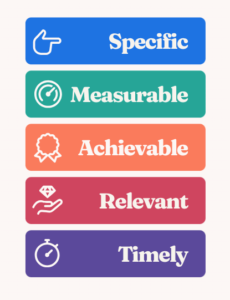
Setting clear, measurable, and achievable objectives is at the heart of effective leader planning. These objectives function as benchmarks against which the progress of the coaching process can be evaluated. Clear goals help maintain focus and motivation, both for the coach and the coachee, and provide a roadmap for the coaching journey. This clarity is essential in the often complex and dynamic environments in which modern organizations operate, allowing for adjustments and recalibrations as needed to respond to changing circumstances.
Moreover, leader planning involves more than just setting goals; it also encompasses preparation for the potential challenges and resistances that may arise during the coaching process. Resistance from coachees can stem from various sources—whether personal discomfort with the vulnerability required in coaching, skepticism about the process, or external pressures and distractions. Anticipating these challenges allows coaches to proactively prepare strategies to address and overcome them. This might involve developing specific interventions to build trust and openness, adjusting coaching techniques to better fit the coachee’s style and needs, or setting interim milestones that provide quick wins and sustained engagement.
An effective leader planning process also ensures that each coaching session is maximized for impact. This means not only having a clear agenda for each meeting but also maintaining flexibility to adapt to the coachee’s immediate needs and reactions. The best-laid plans may require modification to accommodate new insights gained throughout the coaching process, reflecting the dynamic nature of personal and professional growth.
The preparation phase is also an opportunity for coaches to equip themselves with the necessary tools and resources to facilitate coaching sessions. This could involve staying updated with the latest coaching techniques and theories, preparing specific materials or exercises that are tailored to the coachee’s development needs, and setting up a supportive coaching environment that encourages open and honest communication.
In summary, leader planning is an essential aspect of coaching that lays the groundwork for effective and impactful coaching relationships. By establishing clear goals, preparing for challenges, and planning each session with care, coaches can provide meaningful support that fosters the development of skills and competencies in their coachees. This strategic approach not only enhances the individual’s performance and growth but also aligns their development with the strategic needs of the organization, thereby creating a mutually beneficial relationship that drives collective success.

Case Study
A comprehensive real-life example of effective leader planning in coaching is highlighted by the multi-year leadership development initiative undertaken by a global infrastructure company as documented by McKinsey. Facing potential challenges, the company prioritized leadership development to foster a robust pipeline of skilled leaders capable of driving significant organizational improvements and innovations. This initiative was structured into three distinct phases: developing emerging leaders, creating entrepreneurial leaders, and strengthening the overall leadership system within the company.
The focus was on developing a pipeline of emerging leaders equipped to take on significant roles swiftly due to the pressing needs of the organization. These emerging leaders were expected to manage smaller business units within the company independently, preparing them for rapid advancement to senior positions. The program involved extensive interactions, including large group meetings and personalized coaching sessions focused on breakthrough projects, facilitated by both external experts from McKinsey and selected internal mentors.
Simultaneously, the initiative aimed to cultivate a cadre of entrepreneurial leaders who could navigate more complex and unpredictable challenges at the senior-most levels. This part of the program was highly selective, involving intensive personal coaching tailored to each participant, fostering their ability to steer the company through future challenges effectively.
The overarching strategy included dynamic leadership planning involving a formal process to assess and develop top leadership candidates thoroughly. This was supported by a council comprising senior corporate leaders and HR professionals who regularly engaged in workshops to match individuals with critical roles, gather developmental feedback, and create tailored development opportunities.
This strategic and structured approach to leader planning and development exemplifies how deliberate, thoughtful coaching and development efforts can significantly enhance an organization’s leadership capabilities and align them with broader strategic objectives. This case study not only showcases the process but also the impact of such initiatives on fostering a sustainable, dynamic, and effective leadership culture within an organization (McKinsey & Company).
The Use of Questions in Coaching
Questions are a fundamental tool in coaching, serving not just to extract information but to catalyze deep reflection, challenge existing mindsets, and enhance self-awareness. In the hands of a skilled coach, well-crafted questions can transform passive sessions into dynamic discussions that propel coachees towards personal growth and new insights.
The strategic use of questions in coaching hinges on the ability to ask the right type of question at the appropriate time. Open-ended questions, in particular, are invaluable because they encourage coachees to think more deeply and provide more than just superficial answers. These types of questions avoid simple yes or no responses and instead invite a detailed exploration of the topic at hand. For instance, asking a coachee, “What do you think went well?” prompts a reflection on successes, while “How could this be improved?” pushes them to critically analyze their actions and consider future improvements.
Effective questioning requires a balance between seeking information and encouraging self-discovery. Questions should be framed in a way that stimulates the coachee to examine their own beliefs and behaviors. This can lead to a powerful internal dialogue where coachees begin to question their assumptions and see their challenges from different angles. For example, a coach might ask, “What assumptions are you making here?” or “What might be a different perspective on this situation?” Such questions help uncover hidden insights and foster a more profound understanding of personal and professional dynamics.
Moreover, the timing and phrasing of questions are crucial in maintaining the flow of a coaching conversation. Questions should be open enough to allow for exploration but directed enough to keep the conversation aligned with the coaching objectives. The coach must listen attentively to the coachee’s responses to tailor questions that dig deeper into key issues, often helping the coachee make connections they hadn’t previously considered.
Additionally, effective coaches use questions to empower their coachees, encouraging them to take ownership of their development. This might involve asking questions that focus on action, such as “What steps can you take to address this challenge?” or “Who can support you in this goal?” These types of inquiries help transform insight into action, motivating coachees to implement practical solutions to their problems.
Finally, the use of reflective questioning can be a powerful way to conclude coaching sessions. Asking, “What are your key takeaways from our discussion?” or “How do you feel about the progress we’ve made today?” can help coachees internalize the insights gained during the session and reinforce their commitment to their developmental path.
In summary, the use of questions in coaching is an art form that requires careful consideration of both the form and function of inquiries. By mastering this art, coaches can unlock the reflective potential of their coachees, guiding them through a self-directed journey of learning and personal growth that is both insightful and empowering.
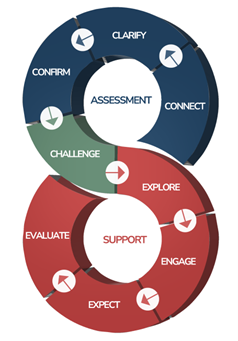
The 8-Step Coaching Cycle
The 8-Step Coaching Cycle is a structured framework that guides the coaching process from start to finish. This model ensures a systematic approach to coaching that is thorough and consistent. Each step builds upon the previous one, creating a cohesive and comprehensive coaching experience. The steps are as follows:
• Step 1: CONNECT – Make a personal connection with the coachee before diving into the work.
• Step 2: Clarify – Using assessments and clarifying questions, help the coachee get crystal clear on the goals, challenges, and intentions.
• Step 3: Confirm – Use powerful questions to confirm the coachee’s intentions and commitments.
• Step 4: Challenge – Use challenging questions to pull more from the coachee, challenge their assumptions respectfully, and nudge them from their comfort zones.
• Step 5: Explore – Help the coachee explore potential ideas and solutions.
• Step 6: Engage – Continue using questions to engage the coachee. Make sure they are doing the work – not you.
• Step 7: Expect – Serve as an accountability partner by helping the coachee keep their stated commitments.
• Step 8: Evaluate – Using additional assessments, conversation, and other success metrics, help the coachee evaluate their progress.
This cycle is not just a linear progression but often requires revisiting and adjusting earlier steps based on ongoing assessments and feedback. It emphasizes the dynamic and iterative nature of coaching, where adjustments and refinements are part of the process.
Conclusion
This introduction to coaching basics is designed to equip participants with the fundamental understanding necessary for effective coaching. By mastering these core principles, participants can enhance their ability to support, develop, and transform individuals within their organizations. The skills learned here lay the groundwork for more advanced coaching techniques and strategies that will be explored in later modules, ultimately contributing to the creation of a robust culture of continuous improvement and leadership development in their respective organizations. This initial module is just the beginning of a journey towards mastering the art of coaching—a critical skill set for any leader in today’s complex and fast-paced business environment.

Exercise 1.8: The Role of Assessment Tools in Effective Coaching
1. Divide into small groups: Each group will be assigned one specific assessment tool used in coaching, such as self-assessment questionnaires, 360-degree feedback, performance appraisals, or informal discussions.
2. Research and Discuss: Each group will spend some time researching their assigned tool. Discuss within your group the following aspects:
• Definition and Purpose: What is the tool, and what is its primary purpose in the coaching context?
• Advantages: What are the strengths of using this tool in coaching?
• Challenges: What challenges might arise from using this tool? How can these challenges impact the coaching outcome?
• Personal Experience: If applicable, share any personal experiences or observations about the effectiveness of this tool in real-world coaching scenarios.
3. Consolidate Learning: Conclude the exercise with a collaborative session where all participants discuss how these tools can be integrated into a cohesive coaching strategy to enhance the overall effectiveness of coaching.

Course Manual 9: Internal Coaching
In the evolving landscape of corporate leadership, there is a marked shift from relying solely on external executive coaching to recognizing the profound benefits of cultivating internal coaching capabilities within organizations. Traditionally, companies have invested heavily in external executive coaches, directing billions of dollars annually to enhance leadership skills and organizational performance. However, as the dynamics of leadership development continue to evolve, more organizations are seeing the value in developing internal coaching programs, which offer numerous advantages in navigating the complex terrain of business and leadership growth.
The trend towards internal coaching is driven by the need for a more integrated and sustainable approach to leadership development. Internal coaching programs are tailored specifically to the unique culture, objectives, and challenges of an organization. Unlike external coaches, internal coaches have an intimate understanding of the company’s environment, enabling them to align coaching initiatives closely with strategic business goals. This alignment is crucial as it ensures that the coaching provided is directly relevant to the organization’s needs and is implemented in a way that fosters both individual and organizational growth.

Another significant advantage of internal coaching is cost efficiency. While hiring external coaches can be expensive, developing internal capabilities can reduce costs over time. This investment in internal coaching also builds a continuous and self-reinforcing culture of development, where leaders and employees at various levels are encouraged to take active roles in coaching each other. This not only enhances the skills of potential coaches but also fosters a culture of continuous learning and self-improvement across the organization.
Furthermore, internal coaching enhances the accessibility of coaching for a larger number of employees, democratizing the process of development. In contrast to external coaching, which might be reserved for top executives, internal programs can extend coaching benefits to a broader segment of the workforce. This widespread approach to development can significantly increase employee engagement, satisfaction, and retention, as more employees feel valued and invested in by their organization.
Moreover, internal coaching builds and strengthens internal networks of support among employees, which can lead to increased collaboration and innovation. These networks become invaluable resources, offering peer-to-peer learning and support that are critical in today’s fast-paced business environments. By fostering strong internal relationships and a supportive culture, organizations can enhance their resilience and adaptability.
Despite these benefits, the transition to internal coaching requires careful planning and execution. Organizations must ensure that they have the right frameworks in place to train internal coaches effectively. This includes providing them with the necessary tools, resources, and support to develop their coaching skills and to understand deeply the ethical considerations involved in coaching.
In conclusion, as organizations continue to navigate the complexities of modern leadership, the shift towards internal coaching represents a strategic response to the growing need for sustainable, relevant, and cost-effective leadership development. By investing in internal capabilities, organizations not only enhance their competitiveness but also contribute to a more engaged and motivated workforce, poised for continuous growth and innovation.
Empowering Leadership: The Shift to Internal Coaching for Sustainable Growth
As organizations increasingly recognize the value of leadership development, many are shifting from relying on external coaches to fostering internal coaching capabilities. This transition is not just a strategic realignment but a cost-effective approach that leverages the existing talents within an organization to build a robust culture of coaching and leadership. By training leaders internally to coach their peers, companies can achieve significant financial savings while catalyzing a self-sustaining cycle of growth and development that permeates the entire business ecosystem.
The financial benefits of reducing dependency on external coaches are substantial. External coaching services can be costly, often involving high hourly rates and additional expenses related to engagements spanning several months or even years. By developing internal coaches, organizations can drastically cut these costs, reallocating resources to other strategic initiatives. This investment in internal training often results in a higher return on investment as the skills acquired stay within the company, enhancing the collective capability of the workforce.

Moreover, internal coaching fosters a culture that extends beyond individual development. When leaders are trained as coaches, they are more likely to integrate coaching principles into their daily interactions and management style. This integration helps cultivate a coaching culture that supports continuous improvement and encourages a more collaborative and supportive work environment. Such a culture is crucial for enhancing employee engagement, retention, and satisfaction as it provides individuals with the support and development opportunities needed to succeed.
The concept of cascading coaching is particularly effective in creating a self-sustaining cycle of leadership development. In this model, trained leaders coach their direct reports, who in turn, use their newly acquired coaching skills to guide their own teams. This cascading effect multiplies the impact of the initial training investment, progressively expanding the reach of coaching within the organization. As more individuals receive coaching, the overall leadership capacity of the organization strengthens, fostering a culture of mentorship and continuous development.
This internal development strategy also allows organizations to tailor coaching programs to fit their specific needs and challenges. Unlike external coaches, who may offer generic solutions, internal coaches have a deep understanding of the company’s strategic goals, culture, and internal dynamics. This insight enables them to provide personalized coaching that is directly aligned with the organization’s objectives, enhancing the effectiveness of their interventions.
Furthermore, internal coaching strengthens organizational resilience. By embedding coaching into the organizational structure, companies equip their employees with the skills necessary to adapt to change and tackle challenges proactively. This adaptability is crucial in today’s fast-paced and ever-evolving business environments. Internal coaches can provide immediate support and guidance, helping employees navigate uncertainties and maintain performance under pressure.
However, the success of an internal coaching program depends on the quality of training provided to these prospective coaches. Organizations must ensure that their internal coaches are well-equipped with advanced coaching skills, a thorough understanding of ethical considerations, and the ability to maintain confidentiality. Providing ongoing support and development opportunities for these coaches is also essential to maintain the effectiveness and integrity of the coaching process.
In summary, shifting from external to internal coaching presents numerous benefits for organizations looking to enhance leadership capabilities and develop a strong, sustainable coaching culture. This approach not only offers significant cost savings but also promotes a more integrated, responsive, and adaptable leadership development framework, crucial for long-term organizational success.
Balancing Acts: Navigating the Complexities of Internal Coaching Roles
While internal coaching offers numerous benefits, including fostering a strong coaching culture and enhancing leadership skills within an organization, it also presents unique challenges that must be carefully managed. The dual role of supervisors as both authority figures and coaches can create conflicts, necessitating a delicate balance between providing guidance and exerting control. These complexities underscore the need for specialized training and a well-thought-out approach to internal coaching.

Supervisors who take on coaching roles need to navigate the fine line between leadership and mentorship. This dual capacity can lead to potential conflicts of interest and blurred boundaries. For instance, an employee might feel less inclined to discuss weaknesses or development areas with a supervisor who also reviews their performance. This can stifle the openness and honesty essential for effective coaching. Furthermore, there is the risk of bias in feedback, where personal relationships and workplace dynamics could color the impartiality required for genuine developmental conversations.
Effective internal coaching requires a clear separation of roles or, at the very least, a transparent understanding of when a supervisor is wearing their “coaching hat.” Organizations must develop guidelines and training to help leaders manage these roles without compromising the integrity of their coaching or supervisory duties. Such training should focus on skills like active listening, unbiased feedback, and the encouragement of self-reflection among employees.
Moreover, the challenge extends beyond individual interactions. Promoting a coaching culture within a company demands consistent behavior and practices that support coaching principles. This involves not only training supervisors but also ensuring that the organizational environment rewards and upholds the values of coaching. It includes recognizing and resolving the conflicts that may arise from dual roles, ensuring confidentiality, and maintaining professional boundaries.
The complexities of internal coaching also involve managing the power dynamics inherent in a workplace. When leaders coach their own team members, the power differential can impact the genuineness of the coaching relationship. Employees may feel pressured to agree with insights or directions not because they are convinced by them, but because they come from their superior. This can undermine the effectiveness of the coaching process, turning what should be empowering into a mere extension of regular supervision.
In upcoming workshops, these nuances will be explored in greater depth. Participants will gain insights into strategies for managing the multiple roles they may need to juggle as internal coaches. These sessions will likely cover practical skills for creating an environment where coaching thrives despite the complexities of internal relationships. They will also discuss how to foster an exceptional coaching culture that supports ongoing professional development and maintains the necessary separations between coaching and managing.
In summary, while internal coaching has its advantages, it requires careful implementation and continuous management to ensure it delivers its intended benefits without unintended drawbacks. The development of a robust framework for internal coaching is essential for navigating the intricacies of this approach and fully leveraging its potential to transform organizational leadership.

Case Study
One real example of navigating the complexities of internal coaching roles comes from the tech industry giant, Google. Google is renowned for its innovative approach to employee development, including internal coaching initiatives. However, like any organization, Google faces challenges in maintaining the delicate balance between coaching and management roles, especially given its fast-paced and dynamic work environment.
To address this challenge, Google developed a program called “Coaching Moments,” which aims to empower managers to become effective coaches while navigating their dual roles. Through this program, Google provides managers with specialized training on coaching techniques, emphasizing active listening, empathy, and fostering growth mindsets among their team members.
One aspect that Google particularly emphasizes is the importance of creating a safe and open environment for coaching conversations. Managers are encouraged to establish trust with their team members, ensuring that coaching sessions are free from judgment or reprisal. This helps mitigate the power differentials inherent in the manager-employee relationship, allowing for more meaningful and constructive coaching interactions.
Moreover, Google recognizes the need for ongoing support and feedback for managers taking on coaching roles. They provide resources such as coaching guides, peer mentoring opportunities, and regular check-ins to help managers refine their coaching skills and address any challenges that may arise.
One of the notable features of Google’s coaching program is its integration of technology. Google utilizes various digital platforms and tools to support coaching efforts, including virtual meeting platforms for remote coaching sessions and AI-driven tools for personalized coaching recommendations. These technological innovations not only streamline the coaching process but also enhance the overall effectiveness of coaching interventions.
Through its “Coaching Moments” program, Google demonstrates a commitment to empowering managers to excel in their coaching roles while navigating the complexities of their managerial responsibilities. By providing specialized training, fostering a supportive environment, and leveraging technology, Google has successfully established a coaching culture that drives employee development and fosters a culture of continuous learning and growth.
Enhancing Internal Coaching with Technological Tools
In today’s dynamic corporate landscape, internal coaching has emerged as a vital strategy for employee development and organizational growth. As businesses strive to foster talent and drive performance, leveraging technological tools has become imperative to streamline coaching processes, enhance engagement, and deliver personalized learning experiences. This article explores the transformative potential of technology in supporting internal coaching efforts, focusing on digital platforms, virtual reality (VR), and AI-driven tools.
Digital platforms have revolutionized how internal coaching sessions are managed and executed. These platforms offer features such as scheduling, progress tracking, and resource sharing, providing coaches and coachees with a centralized hub for collaboration and communication. With intuitive interfaces and cloud-based accessibility, digital platforms facilitate seamless interaction between coaches and employees, transcending geographical barriers and time constraints. Moreover, they enable data-driven insights into coaching effectiveness, allowing organizations to refine their strategies and optimize employee development initiatives.
Virtual reality (VR) represents a cutting-edge tool for simulation-based coaching scenarios. By immersing employees in realistic virtual environments, VR enables experiential learning and skill enhancement in a safe and controlled setting. For instance, sales professionals can practice client interactions or negotiation techniques in virtual simulations, receiving instant feedback and guidance from coaches. VR-based coaching not only enhances skill acquisition but also fosters confidence and adaptability, preparing employees for real-world challenges in a risk-free environment.
AI-driven tools are revolutionizing internal coaching by offering personalized learning paths tailored to individual needs and preferences. Leveraging machine learning algorithms, these tools analyze data on employee performance, learning styles, and career aspirations to deliver targeted coaching recommendations. Whether recommending relevant learning resources, suggesting skill-building exercises, or providing real-time feedback, AI-driven tools empower employees to take ownership of their development journey. Furthermore, they enable coaches to identify patterns and trends across coaching sessions, enabling proactive intervention and continuous improvement.
However, while technological tools hold immense promise for internal coaching, their successful implementation requires careful consideration of various factors. Firstly, organizations must ensure data security and privacy compliance, especially when leveraging AI-driven tools that collect and analyze sensitive employee information. Additionally, comprehensive training programs are essential to equip coaches and employees with the necessary skills to leverage these tools effectively. Moreover, fostering a culture of openness and receptiveness to technology is crucial to overcoming resistance to change and maximizing adoption rates.
In conclusion, technological tools offer unprecedented opportunities to enhance internal coaching efforts and drive organizational success. From digital platforms for streamlined session management to VR for immersive simulation-based learning and AI-driven tools for personalized development paths, the possibilities are limitless. By embracing these tools strategically and thoughtfully, organizations can empower their employees to reach their full potential, foster a culture of continuous learning, and stay ahead in today’s competitive business landscape.

Exercise 1.9: Designing an Internal Coaching Program
1. Divide the participants into small groups.
2. Assign each group a hypothetical organization or allow them to choose one.
3. Provide background information about the organization, including its industry, size, culture, and any specific challenges it faces regarding leadership development.
4. Task each group with designing an internal coaching program for the organization, keeping in mind the principles and benefits discussed in the provided content.
5. Encourage groups to consider various aspects of the internal coaching program, such as:
• Program objectives: What are the primary goals of the coaching program? How will it align with the organization’s strategic objectives?
• Target audience: Who will participate in the coaching program? Will it be tailored to specific leadership levels or open to all employees?
• Coaching framework: What will be the structure and format of the coaching sessions? How will coaches be selected or trained?
• Integration of technology: How can technological tools be leveraged to enhance the effectiveness of the coaching program?
• Measurement and evaluation: How will the success of the coaching program be assessed? What metrics will be used to measure its impact on leadership development and organizational performance?
6. Conclude the exercise by summarizing key takeaways and insights gained from the group discussions.

Course Manual 10: Coaching Mindset
Embracing a Coaching Mindset: Cultivating a Culture of Growth and Development in the Workplace
In today’s dynamic and ever-evolving workplace landscape, the concept of coaching has transcended traditional boundaries, becoming an integral part of organizational culture and leadership practices. This section delves into the importance of adopting a coaching mindset, not only in formal coaching sessions but also in daily interactions and leadership behaviors. By embedding coaching principles into the fabric of the organization, leaders can foster a culture of growth, creativity, and continuous improvement, ultimately driving performance and success.

Coaching is not merely a series of structured meetings or sessions; it is a mindset—a way of approaching interactions and relationships with a focus on growth and development. The goal is to instill this coaching mindset in leaders across all levels of the organization, from frontline supervisors to top executives. By doing so, leaders can engage with their team members in a more authentic and empowering manner, creating an environment where coaching is not viewed as a standalone activity but as an inherent part of the company culture.
At its core, the coaching mindset revolves around the belief that everyone has the potential for growth and development. It is about recognizing and nurturing the unique talents, strengths, and aspirations of each individual within the organization. By adopting this mindset, leaders can unlock the full potential of their team members, empowering them to overcome challenges, seize opportunities, and achieve their goals.
One of the key benefits of embracing a coaching mindset is its ability to promote creativity and innovation within the organization. When leaders adopt a coaching approach, they create a safe and supportive environment where team members feel encouraged to experiment, take risks, and think outside the box. By fostering a culture of creativity and innovation, organizations can stay ahead of the curve, adapt to change more effectively, and drive sustainable growth.
Moreover, the coaching mindset promotes a culture of continuous learning and improvement. Rather than viewing mistakes or setbacks as failures, leaders with a coaching mindset see them as valuable learning opportunities. They provide constructive feedback, guidance, and support to help their team members learn and grow from their experiences. This emphasis on learning and development not only enhances individual performance but also strengthens the overall capabilities of the organization.
In addition to driving individual and team performance, the coaching mindset also fosters stronger relationships and collaboration within the organization. When leaders approach interactions with empathy, curiosity, and a genuine desire to help others succeed, they build trust and rapport with their team members. This trust forms the foundation of effective communication, collaboration, and teamwork, enabling the organization to achieve its goals more effectively.
Implementing a coaching mindset requires a concerted effort from leaders at all levels of the organization. It begins with raising awareness about the value and importance of coaching and providing leaders with the training, tools, and resources they need to effectively coach their team members. Organizations can offer coaching skills workshops, mentorship programs, and ongoing support to help leaders develop and refine their coaching skills.
Furthermore, organizations can integrate coaching principles into performance management processes, goal setting, and talent development initiatives. By aligning coaching with existing organizational practices and processes, leaders can reinforce its importance and ensure its integration into daily workflows.
Ultimately, the goal is to create a culture where coaching is not viewed as an isolated or occasional activity but as a natural and integral part of how work gets done. By embedding coaching principles into the fabric of the organization, leaders can create an environment where continuous learning, growth, and development are not only encouraged but celebrated.
In conclusion, embracing a coaching mindset is essential for organizations looking to thrive in today’s fast-paced and competitive business environment. By adopting a coaching approach to leadership and interactions, leaders can empower their team members, foster creativity and innovation, drive performance, and build stronger, more collaborative relationships. Through a concerted effort to instill a coaching mindset across the organization, companies can create a culture of growth and development that fuels success now and in the future.
Cultivating a Coaching Culture: Empowering Leadership for Continuous Growth and Success
In today’s rapidly evolving business landscape, the traditional model of leadership centered around instruction and command is no longer sufficient to drive organizational success. Instead, there is a growing recognition of the need for leaders to embrace coaching as a continuous conversation that elevates the intelligence and performance of their teams. This section explores the transformative impact of adopting a coaching mindset, shifting from directive leadership to becoming catalysts for empowerment, progress, and continuous improvement.

At its core, coaching is not just a set of techniques or tools; it is a fundamental shift in leadership philosophy—a move away from telling and directing towards listening, guiding, and facilitating growth. Leaders who adopt a coaching mindset understand that their role is not to have all the answers but to ask the right questions, empower their team members, and unlock their full potential. By viewing coaching as a continuous conversation, leaders create an environment where learning, growth, and innovation flourish.
One of the key benefits of embracing a coaching mindset is its ability to foster a positive and dynamic work environment. When leaders shift from being instructors to catalysts for empowerment, they create a culture where team members feel valued, supported, and motivated to excel. By empowering their teams to take ownership of their work, leaders cultivate a sense of ownership, accountability, and commitment, driving engagement and performance.
Moreover, adopting a coaching attitude can fundamentally change the dynamics of a company, promoting open communication, collaboration, and trust. When leaders prioritize coaching conversations, they create opportunities for dialogue, feedback, and shared learning. This fosters a culture of transparency, respect, and mutual support, where team members feel comfortable sharing ideas, challenging the status quo, and collaborating towards common goals.
Furthermore, a coaching mindset is essential for promoting continuous improvement and adaptability within the organization. In today’s rapidly changing business environment, organizations must be agile, resilient, and able to quickly adapt to new challenges and opportunities. Leaders who embrace coaching as a continuous conversation create a culture of learning and innovation, where experimentation, feedback, and iteration are encouraged and valued. This enables the organization to stay ahead of the curve, anticipate change, and capitalize on emerging trends.
Developing a resilient, flexible, and highly motivated staff requires a fundamental shift in leadership mentality. Leaders must move away from the traditional model of command and control towards a more collaborative, empowering, and inclusive approach. By embracing coaching as a continuous conversation, leaders create an environment where team members feel empowered to take ownership of their development, learn from their experiences, and grow both personally and professionally.
Implementing a coaching culture requires a concerted effort from leaders at all levels of the organization. It begins with raising awareness about the value and importance of coaching and providing leaders with the training, tools, and resources they need to effectively coach their team members. Organizations can offer coaching skills workshops, mentorship programs, and ongoing support to help leaders develop and refine their coaching skills.
Furthermore, organizations can integrate coaching principles into performance management processes, goal setting, and talent development initiatives. By aligning coaching with existing organizational practices and processes, leaders can reinforce its importance and ensure its integration into daily workflows.
Ultimately, the goal is to create a culture where coaching is not viewed as an isolated or occasional activity but as a natural and integral part of how work gets done. By embedding coaching principles into the fabric of the organization, leaders can create an environment where continuous learning, growth, and development are not only encouraged but celebrated.
In conclusion, embracing a coaching mindset is essential for organizations looking to thrive in today’s fast-paced and competitive business environment. By adopting a coaching approach to leadership and interactions, leaders can empower their team members, foster a positive and dynamic work environment, promote open communication and collaboration, and drive continuous improvement and innovation. Through a concerted effort to instill a coaching culture across the organization, companies can create a culture of growth, resilience, and success that propels them forward in an ever-changing world.
Fostering Trust and Psychological Safety in a Coaching Culture
In a coaching culture, trust and psychological safety play pivotal roles in creating an environment where individuals feel empowered to grow, innovate, and thrive. Trust is the foundation upon which coaching relationships are built, while psychological safety is the bedrock that enables individuals to take risks, share ideas, and learn from failure without fear of judgment or reprisal. This article explores the importance of trust and psychological safety in a coaching culture and provides strategies for leaders to cultivate these critical elements within their teams.
Trust is the cornerstone of any successful coaching relationship. When team members trust their leaders, they are more likely to be open, honest, and receptive to feedback and guidance. Trust fosters a sense of psychological safety, allowing individuals to express themselves authentically, share their ideas and concerns, and take risks without fear of negative consequences. Leaders must prioritize building trust with their team members through their actions, words, and behaviors.
One strategy for building trust is leading by example. Leaders who demonstrate integrity, transparency, and authenticity in their interactions inspire trust and credibility among their team members. By modeling trustworthiness and ethical behavior, leaders set the tone for a culture of trust and accountability within the organization.

Another key strategy for building trust is effective communication. Leaders must be open, transparent, and approachable in their communication with their team members. They should actively listen to their concerns, provide timely and constructive feedback, and communicate openly about goals, expectations, and challenges. Clear and transparent communication builds trust and reduces uncertainty, fostering a positive and collaborative work environment.
Creating psychological safety is equally important in a coaching culture. Psychological safety is the belief that one will not be punished or humiliated for speaking up with ideas, questions, concerns, or mistakes. Leaders play a crucial role in creating a safe space where team members feel comfortable expressing themselves, taking risks, and challenging the status quo.
One strategy for fostering psychological safety is promoting vulnerability and authenticity. Leaders should openly share their own challenges, failures, and learning experiences, demonstrating that it is safe to be vulnerable and imperfect. By modeling vulnerability, leaders encourage their team members to do the same, creating a culture where authenticity is valued and celebrated.
Encouraging experimentation and risk-taking is another effective strategy for fostering psychological safety. Leaders should empower their team members to explore new ideas, try out innovative approaches, and take calculated risks without fear of failure or judgment. By celebrating both successes and failures as opportunities for learning and growth, leaders create an environment where individuals feel empowered to innovate and push the boundaries of what is possible.
Finally, leaders should create opportunities for feedback and reflection to reinforce psychological safety. Regular check-ins, team meetings, and one-on-one conversations provide opportunities for team members to share their thoughts, ideas, and concerns openly. Leaders should actively solicit feedback, listen attentively to their team members’ perspectives, and respond constructively to their input. By valuing and incorporating feedback, leaders demonstrate their commitment to creating a culture where everyone’s voice is heard and respected.
In conclusion, trust and psychological safety are essential elements of a coaching culture. By prioritizing building trust, promoting vulnerability and authenticity, encouraging experimentation and risk-taking, and creating opportunities for feedback and reflection, leaders can cultivate a culture where individuals feel empowered to grow, innovate, and succeed. By fostering a culture of trust and psychological safety, organizations can unleash the full potential of their teams and drive continuous improvement and innovation.

Case Study
Another real-world example of fostering trust and psychological safety in a coaching culture can be found in the approach taken by the multinational technology company, Microsoft.
Microsoft’s CEO, Satya Nadella, has placed a strong emphasis on creating a culture of trust and psychological safety within the organization. Under Nadella’s leadership, Microsoft has undergone a cultural transformation that prioritizes inclusivity, collaboration, and innovation.
One way Microsoft fosters trust is by empowering employees to take ownership of their work and make decisions autonomously. Nadella has championed a growth mindset across the organization, encouraging employees to embrace challenges, learn from failures, and continuously seek opportunities for growth. This approach empowers employees to experiment with new ideas and take calculated risks, knowing that they have the support and trust of their leaders.
Microsoft also promotes open and transparent communication as a cornerstone of trust-building. Nadella hosts regular town hall meetings where employees have the opportunity to ask questions directly to senior leadership and provide feedback on company initiatives. This transparency helps employees feel informed and included in decision-making processes, fostering a sense of trust and accountability within the organization.
In addition to transparency, Microsoft places a strong emphasis on psychological safety. The company recognizes that innovation requires a willingness to take risks and challenge the status quo, which can only happen in an environment where individuals feel safe to express themselves and share their ideas without fear of judgment or reprisal.
Microsoft encourages leaders to promote vulnerability and authenticity by sharing their own experiences and challenges. Nadella himself has been open about his own struggles and failures, demonstrating that it is safe to acknowledge imperfections and learn from mistakes. This creates a culture where employees feel empowered to speak up, take risks, and innovate without fear of repercussions.
Furthermore, Microsoft provides structured opportunities for feedback and reflection to reinforce psychological safety. The company conducts regular performance reviews and encourages employees to participate in coaching and mentoring programs. These initiatives help employees receive support and guidance in their professional development, reinforcing the message that it is safe to seek help and learn from others.
In conclusion, Microsoft serves as a compelling example of how organizations can foster trust and psychological safety in a coaching culture. By prioritizing transparency, open communication, vulnerability, and feedback, Microsoft has created an environment where employees feel empowered to innovate, collaborate, and take risks. As a result, Microsoft has become synonymous with innovation and creativity, demonstrating the transformative impact of trust and psychological safety on organizational success.

Exercise 1.10: Building Trust and Psychological Safety in a Coaching Culture
1. Divide participants into small groups.
2. Provide each group with flip chart paper or a digital collaborative tool for note-taking.
3. Explain the importance of trust and psychological safety in a coaching culture, referencing examples from companies like Microsoft.
4. Assign each group one aspect of building trust and psychological safety (e.g., transparency, open communication, vulnerability, structured feedback).
5. Instruct groups to brainstorm specific strategies and tactics for fostering their assigned aspect within their teams or organizations. Encourage them to draw from their own experiences and insights.
6. After the brainstorming session, reconvene the larger group and invite each group to present their ideas.
7. Facilitate a discussion where participants can ask questions, provide feedback, and share additional insights or examples.

Course Manual 11: Ability to Account
Accountability is a term frequently heard in the business world, often associated with leaders holding their teams responsible for meeting their work commitments. However, a paradigm shift in perspective suggests that rather than merely holding people accountable, leaders should aim to empower their teams to develop the ability to account. This notion reframes accountability as more than just a punitive measure; it becomes a proactive approach to fostering responsibility, ownership, and growth within organizations. At its core, accountability is the fusion of two words: account and ability, emphasizing the importance of not only delivering results but also the capability to take ownership and responsibility for one’s actions and outcomes.
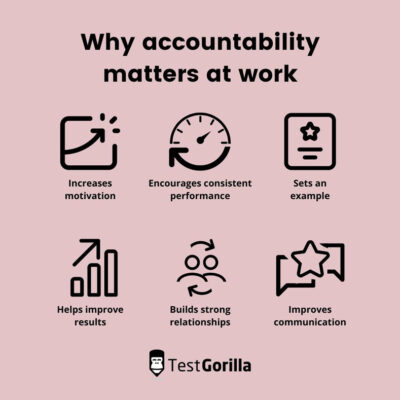
The traditional concept of accountability often conjures images of leaders enforcing rules and consequences to ensure compliance with deadlines and targets. While this approach may yield short-term results, it often fails to cultivate a culture of genuine accountability where individuals are motivated to take ownership of their work and its outcomes. Instead, leaders can adopt a more collaborative and empowering approach by helping their teams develop the ability to account.
Empowering individuals with the ability to account involves nurturing a sense of ownership and responsibility for their actions and decisions. It requires providing them with the support, resources, and guidance needed to take ownership of their work and its outcomes. Rather than imposing accountability from the top down, leaders can create an environment where individuals feel empowered to take initiative, set goals, and hold themselves accountable for achieving them.
One way to foster the ability to account is by promoting transparency and open communication within teams. When individuals understand the broader context of their work and how it contributes to organizational goals, they are more likely to take ownership of their responsibilities. Leaders can facilitate open dialogue by sharing information, providing regular updates on progress and challenges, and encouraging team members to voice their ideas and concerns.
Another essential aspect of fostering accountability is providing clear expectations and goals. When individuals have a clear understanding of what is expected of them and how their performance will be evaluated, they are better equipped to take ownership of their work. Leaders can collaborate with their teams to set SMART (Specific, Measurable, Achievable, Relevant, Time-bound) goals and define clear metrics for success, empowering individuals to track their progress and make necessary adjustments along the way.
In addition to setting clear expectations, leaders can also provide meaningful feedback and recognition to reinforce accountability. Feedback should be constructive, timely, and specific, highlighting areas of improvement and recognizing achievements. By providing regular feedback, leaders help individuals understand their strengths and areas for growth, empowering them to take ownership of their development.
Moreover, fostering accountability requires creating a culture where individuals feel safe to take risks and learn from failure. Failure is an inevitable part of growth and innovation, and leaders play a crucial role in destigmatizing it by encouraging a growth mindset and reframing failure as an opportunity for learning and improvement. When individuals feel supported and encouraged to take risks, they are more likely to take ownership of their decisions and outcomes.
Furthermore, leaders can model accountability by taking ownership of their actions and decisions. When leaders hold themselves accountable for their commitments and demonstrate integrity and transparency in their behavior, they set a positive example for their teams to follow. By modeling accountability, leaders inspire trust and confidence in their teams, fostering a culture where accountability is valued and celebrated.
In conclusion, the ability to account is not just about delivering results; it’s about taking ownership and responsibility for one’s actions and decisions. By reframing accountability as a proactive approach to fostering responsibility, ownership, and growth, leaders can empower their teams to excel. By promoting transparency, setting clear expectations, providing feedback and recognition, creating a culture of learning and innovation, and modeling accountability themselves, leaders can cultivate a culture where individuals feel empowered to take ownership of their work and its outcomes. Ultimately, fostering the ability to account is essential for building high-performing teams and driving organizational success in today’s dynamic and competitive business environment.
Cultivating Accountability Through Coaching: Empowering Leaders to Take Ownership
In the realm of leadership and organizational development, the ability to account serves as a cornerstone for fostering responsibility, ownership, and growth. While traditional management approaches often rely on monitoring, rewards, and discipline to enforce accountability, coaching offers a transformative alternative by providing a safe and supportive space for leaders to reflect, learn, and be held accountable for their commitments and expectations. This essay explores the essential elements of the ability to account and how coaching serves as a catalyst for nurturing accountability in leaders.

At its core, the ability to account requires a combination of self-awareness, responsibility, and commitment to one’s actions and decisions. It encompasses the capacity to set clear goals, take ownership of one’s responsibilities, and follow through on commitments. However, developing this ability requires more than just enforcing rules and consequences—it demands a supportive environment where individuals feel empowered to take initiative, seek feedback, and learn from both successes and failures.
Coaching plays a pivotal role in helping leaders develop the ability to account by providing a safe and supportive space for reflection, exploration, and growth. Unlike traditional management approaches that focus on monitoring and control, coaching emphasizes collaboration, empowerment, and personal development. Coaches serve as accountability partners to their coachees, guiding them through the process of self-discovery, goal-setting, and action planning.
One of the key elements of the ability to account is self-awareness. Effective coaching helps leaders cultivate a deeper understanding of their strengths, weaknesses, values, and motivations. Through reflective questioning, active listening, and feedback, coaches encourage leaders to explore their thoughts, feelings, and behaviors, enabling them to gain insights into their areas of improvement and development.
Furthermore, coaching fosters a sense of responsibility and ownership in leaders by empowering them to take ownership of their actions and decisions. Coaches support leaders in setting clear goals, defining actionable steps, and holding themselves accountable for their commitments. By providing a structured framework for accountability, coaching helps leaders stay focused, motivated, and accountable for achieving their goals.
Moreover, coaching creates a supportive environment where leaders feel safe to take risks, experiment with new ideas, and learn from failure. Coaches serve as trusted allies and sounding boards, offering encouragement, support, and guidance as leaders navigate challenges and setbacks. By reframing failure as an opportunity for learning and growth, coaching empowers leaders to embrace challenges, adapt to change, and strive for continuous improvement.
In addition to fostering self-awareness, responsibility, and resilience, coaching helps leaders develop essential interpersonal skills for building trust, collaboration, and effective communication. Coaches provide feedback, guidance, and perspective on how leaders can enhance their relationships, influence, and impact within their teams and organizations. By improving their interpersonal effectiveness, leaders can create a culture of accountability where individuals feel valued, respected, and empowered to contribute their best.
Furthermore, coaching encourages leaders to seek feedback and accountability from others, including peers, colleagues, and stakeholders. Coaches facilitate 360-degree feedback assessments, team dynamics exercises, and stakeholder interviews to help leaders gain insights into their impact and effectiveness. By soliciting feedback from multiple perspectives, leaders can identify blind spots, uncover hidden opportunities, and make informed decisions that drive positive change and results.
In conclusion, the ability to account is a fundamental competency for effective leadership and organizational success. Coaching offers a powerful approach to nurturing accountability in leaders by providing a safe and supportive space for self-discovery, goal-setting, and action planning. By fostering self-awareness, responsibility, resilience, and interpersonal effectiveness, coaching empowers leaders to take ownership of their actions and decisions, build trusting relationships, and drive positive change within their teams and organizations. Ultimately, coaching serves as a catalyst for developing the ability to account and cultivating a culture of accountability where individuals thrive and organizations excel.
Building Resilient Leaders: The Role of Coaching in Overcoming Setbacks
Building resilience is essential for leaders to navigate the complexities of today’s dynamic and uncertain business environment effectively. Resilience enables leaders to bounce back from setbacks, adapt to change, and continue pursuing their goals with determination and optimism. Coaching plays a crucial role in helping leaders develop resilience by providing support, guidance, and tools to cope with challenges and setbacks effectively.
One way coaching helps leaders develop resilience is by reframing failure as a learning opportunity. Instead of viewing failure as a sign of incompetence or inadequacy, coaching encourages leaders to see it as a natural part of the learning process. Coaches help leaders analyze their failures objectively, identify the root causes, and extract valuable lessons from their experiences. By reframing failure as an opportunity for growth and development, coaching empowers leaders to bounce back stronger and more resilient than before.

Coaches also help leaders develop resilience by fostering a growth mindset. A growth mindset is the belief that abilities and intelligence can be developed through dedication and hard work. Coaches encourage leaders to cultivate a growth mindset by challenging limiting beliefs, adopting a positive outlook, and embracing challenges as opportunities for growth. By cultivating a growth mindset, leaders become more resilient in the face of adversity, as they see setbacks as temporary obstacles that can be overcome with effort and perseverance.
Furthermore, coaching equips leaders with practical tools and techniques for building resilience. Coaches help leaders develop coping strategies to manage stress, anxiety, and overwhelm effectively. These strategies may include mindfulness practices, relaxation techniques, and stress management exercises. By learning how to manage their emotions and regulate their stress response, leaders can maintain their composure and focus during challenging times, enabling them to make better decisions and lead more effectively.
Coaching also helps leaders build resilience by strengthening their support networks. Coaches encourage leaders to cultivate strong relationships with colleagues, mentors, and peers who can provide support, guidance, and encouragement during difficult times. By building a strong support network, leaders have access to resources and perspectives that can help them navigate challenges more effectively and bounce back from setbacks with resilience and determination.
Additionally, coaching helps leaders develop resilience by fostering self-awareness and self-compassion. Coaches encourage leaders to reflect on their strengths, weaknesses, and values, helping them gain insight into their resilience factors and areas for growth. Coaches also promote self-compassion by encouraging leaders to be kind and forgiving to themselves during challenging times. By cultivating self-awareness and self-compassion, leaders develop the inner strength and resilience needed to overcome obstacles and thrive in the face of adversity.
In conclusion, coaching plays a vital role in helping leaders develop resilience in the face of challenges and setbacks. By reframing failure as a learning opportunity, fostering a growth mindset, providing practical tools and techniques, strengthening support networks, and promoting self-awareness and self-compassion, coaching empowers leaders to bounce back stronger and more resilient than before. As leaders continue to navigate the complexities of today’s business environment, resilience will be a critical skill for driving success and leading with confidence and effectiveness.

Case Study: General Electric’s Leadership Transformation Initiative
Background
General Electric (GE), under CEO Jeffrey Immelt, faced tumultuous market conditions and intense global competition. GE’s leadership recognized that fostering resilience among its leaders was crucial for navigating these challenges effectively. To address this, GE launched a comprehensive leadership development program aimed at building resilience.
Problem Statement
Prior to the intervention, GE’s leaders often struggled with the rapid pace of change in the energy, healthcare, and finance sectors. The company needed a strategy to cultivate leaders who could handle setbacks, make strategic decisions under pressure, and drive innovation in a constantly evolving marketplace.
Intervention
GE’s corporate leadership team initiated a resilience training program, designed by its in-house learning and development department and supplemented by external executive coaching. Key components of the program included:
1. Resilience Workshops: These workshops focused on helping leaders understand and manage their reactions to setbacks. They included training in emotional intelligence, stress management, and adaptive thinking.
2. Personalized Coaching: GE provided its top executives with personalized coaching sessions. These sessions helped leaders identify personal resilience barriers and work on specific areas, such as handling uncertainty and developing adaptive leadership styles.
3. Peer Learning Groups: Leaders were grouped into peer learning cohorts where they could share experiences, challenges, and strategies for managing stress and setbacks. This fostered a supportive network and encouraged a culture of collective growth and resilience.
4. Scenario Planning Exercises: Coaches worked with leaders on scenario planning exercises to improve their ability to anticipate challenges and develop contingency plans. This was crucial for enhancing their decision-making confidence under pressure.
Outcomes
The resilience training had profound effects on GE’s leadership dynamics and corporate culture:
• Leaders reported better stress management and enhanced capability to bounce back from setbacks more quickly.
• The initiative fostered a more collaborative and supportive work environment, as leaders felt more connected to their peers through shared learning experiences.
• GE saw improved performance in areas of innovation and strategic planning, as leaders were better equipped to handle the pressures of rapid market changes.
The program was recognized as a key factor in helping GE navigate through significant market shifts and internal restructuring, leading to sustained business performance.
Breaking Through Barriers: Coaching Leaders to Cultivate Accountability
Overcoming barriers to accountability is essential for leaders to foster a culture of responsibility, ownership, and trust within their teams and organizations. Common barriers to accountability include fear of failure, lack of clarity, and resistance to change. Coaching plays a crucial role in helping leaders overcome these barriers and cultivate a mindset of accountability within themselves and their teams.
Fear of failure is a significant barrier to accountability that can paralyze leaders and prevent them from taking risks and making bold decisions. Coaching helps leaders overcome this fear by reframing failure as a natural part of the learning process. Coaches encourage leaders to see failure as an opportunity for growth and development, rather than a reflection of their competence or worth. By shifting their perspective on failure, leaders become more willing to take risks, make mistakes, and learn from their experiences, fostering a culture where accountability is valued and celebrated.
Lack of clarity is another common barrier to accountability that can hinder leaders’ ability to set clear goals, expectations, and priorities for themselves and their teams. Coaching helps leaders clarify their vision, values, and objectives, enabling them to communicate their expectations effectively and hold themselves and others accountable for their commitments. Coaches work with leaders to define SMART (Specific, Measurable, Achievable, Relevant, Time-bound) goals, identify actionable steps, and develop accountability mechanisms to track progress and ensure accountability.
Resistance to change is another barrier to accountability that can impede leaders’ ability to adapt to new circumstances, challenges, and opportunities. Coaching helps leaders embrace change by fostering a growth mindset and promoting a culture of continuous learning and improvement. Coaches support leaders in challenging their limiting beliefs, reframing their perspectives, and developing the resilience and adaptability needed to navigate change effectively. By helping leaders overcome their resistance to change, coaching enables them to embrace accountability as a catalyst for personal and organizational growth.
Furthermore, coaching helps leaders develop the self-awareness and emotional intelligence needed to recognize and address their own accountability barriers. Coaches provide leaders with feedback, insights, and perspective on their behaviors, attitudes, and habits, helping them identify areas for improvement and develop strategies for overcoming their accountability barriers. By cultivating self-awareness and emotional intelligence, leaders become better equipped to lead by example and create a culture of accountability within their teams and organizations.
In conclusion, coaching plays a vital role in helping leaders overcome barriers to accountability and cultivate a mindset of responsibility, ownership, and trust within themselves and their teams. By reframing failure, clarifying expectations, embracing change, and developing self-awareness and emotional intelligence, coaching empowers leaders to overcome their accountability barriers and create a culture where accountability is valued, celebrated, and ingrained in the organizational DNA.

Exercise 1.11: Empowering Accountability Workshop
To shift the focus from merely enforcing accountability to empowering team members to take ownership and responsibility for their actions and outcomes. This workshop aims to cultivate a proactive approach to accountability, fostering responsibility, ownership, and growth within the organization.
• Flip charts or whiteboards
• Markers
• Post-it notes
• Printouts of SMART goals templates
• Feedback forms
1. Introduction to Empowered Accountability
• Brief presentation on the concept of “ability to account,” explaining how it integrates taking ownership with the capability to deliver results.
• Discuss the benefits of shifting from a punitive accountability approach to an empowering one.
2. Understanding Roles and Contributions
• Each team member writes their understanding of their role and major responsibilities on a post-it note.
• Facilitate a group discussion where everyone shares their post-it notes and receives feedback from peers and leaders on their perceived roles.
• Leaders provide insights into how each role aligns with the organization’s broader goals.

Course Manual 12: 10 Coaching Rules
In ‘coaching rules’ we delve into the cornerstone of effective leadership development: the 10 Coaching Rules. This module serves as your gateway to understanding and mastering the fundamental principles that shape our unique approach to leadership coaching. As we progress through this course, we will explore each rule in detail, uncovering the practical applications and transformative potential they hold for enhancing leadership skills.
These ten rules are not just guidelines but foundational maxims that have been distilled from years of research and practice in the field of leadership development. They are designed to equip you with the tools necessary to not only inspire but also effectively guide and support others in their professional journeys. Whether you’re an experienced leader looking to refine your coaching skills or a newcomer aiming to make a significant impact, these rules will provide a solid framework for your growth and success in coaching leaders.
By the end of this module, you will have a clear understanding of each rule and be prepared to apply them in real-world scenarios, fostering an environment of continuous improvement and collaborative success within your team or organization. Let’s embark on this transformative journey together, unlocking the full potential of effective leadership through coaching.
1. Coaching is about the coachee – not the coach.
Coaching fundamentally revolves around the coachee—focusing primarily on their personal growth, aspirations, and the specific challenges they face. It’s a process that prioritizes the coachee’s needs, providing a tailored and impactful experience that is far from a one-size-fits-all solution. In this dynamic, the coach acts not as a director but as a facilitator, offering support and guidance while stepping back to allow the coachee to navigate their own journey towards self-improvement.
This coachee-centered approach ensures that individuals feel empowered to explore and identify their own solutions, fostering a sense of ownership and accountability for their personal and professional development. The coach’s role is crucial but subtly executed, focusing on empowering the coachee to unlock their potential rather than imposing a predetermined path. This method not only enhances the relevance and effectiveness of the coaching process but also aligns it closely with the coachee’s long-term goals and values, making the journey both authentic and deeply transformative.
2. Coaching uses questions – not answers.
Effective coaching hinges on the art of posing powerful questions rather than supplying answers. This method is critical as it provokes thought, inspires self-reflection, and encourages coachees to explore various aspects of their challenges and opportunities. By carefully crafting questions that open up new perspectives, a coach facilitates a deeper understanding in the coachee, empowering them to unearth insights and solutions independently.

This approach enhances the coachee’s autonomy and builds confidence in their decision-making abilities. Instead of being passive recipients of advice, coachees become active participants in their developmental journey, learning to navigate complex situations through self-guided discovery. The strategic use of questions by the coach not only helps uncover the coachee’s inherent capabilities but also instills a robust sense of ownership over their growth process.
Through this questioning methodology, coaching transforms into a dynamic and engaging process where each question propels the coachee closer to clarity, self-awareness, and decisive action. This fosters a learning environment where coachees are continually motivated to think critically and align their actions with their personal and professional goals.
3. Coaching is neither counseling nor consulting.
Coaching is a distinct professional practice that differs fundamentally from counseling and consulting. While counseling typically focuses on emotional healing and addressing personal issues, and consulting involves providing expert advice based on analysis, coaching is centered on enhancing an individual’s performance and development within a professional context. This approach leverages the coachee’s existing strengths and resources, aiming to maximize their potential and assist them in achieving specific professional goals.
In coaching, the relationship between the coach and coachee is a partnership designed to promote continuous improvement and learning. Rather than delving into deep-seated psychological issues, which is the realm of counseling, or offering prescriptive solutions, as in consulting, coaching focuses on the future possibilities and tapping into the coachee’s own capacity to find solutions. It is about empowering the individual through a process of self-discovery, goal-setting, and strategic action that aligns with their values and aspirations.
The coach’s role is therefore to facilitate this process, using tools and techniques that help the coachee to clarify their objectives, overcome obstacles, and enhance their skills. This not only helps in achieving their current goals but also builds their capability to manage future challenges independently, emphasizing coaching’s unique contribution to personal and professional development.
4. Coaching is more pulling than pushing.
Coaching is fundamentally about pulling rather than pushing, emphasizing the extraction of the coachee’s latent potential rather than directing them towards a predetermined path. This nuanced approach creates an encouraging environment where the coachee can freely explore their capabilities and confront challenges without feeling coerced or steered in any particular direction. By fostering this type of supportive space, coaches enable coachees to feel self-motivated and engaged in their personal and professional development journey.
The ‘pulling’ method in coaching is about facilitating discovery and insight, encouraging coachees to unlock their own answers and strategies. This is achieved by asking thoughtful, open-ended questions that prompt deep reflection and self-assessment, leading coachees to evaluate their options and decide their course of action. Such a technique supports a more authentic and sustainable growth, as the individual is directly involved in the identification of their needs and the crafting of their solutions.
This approach contrasts sharply with directive methods that might push coachees towards specific outcomes, which can sometimes lead to resistance or dependency. Instead, pulling nurtures a proactive attitude and a sense of ownership over personal growth, thereby enhancing the effectiveness of the coaching process and leading to more enduring and impactful outcomes.

Case Study: Atlassian’s Emphasis on Autonomy and Self-Direction
Background
Atlassian, an Australian enterprise software company, has made significant strides in fostering a corporate culture that prioritizes employee autonomy and self-directed growth. The company emphasizes coaching techniques that pull potential out of individuals, allowing them to find their paths to success rather than pushing them along a predefined route.
Intervention
1. Emphasis on Team Autonomy: Atlassian encourages teams to set their own goals and decide how to achieve them, a key tenet of the pulling method. This approach is facilitated by coaches and managers who guide teams through the goal-setting process without dictating specific objectives or strategies.
2. ShipIt Days: Formerly known as “FedEx Days,” these are regular events where employees are given 24 hours to work on a project of their choice, unrelated to their normal workload. Coaches support participants by helping them explore their own ideas and potential, significantly enhancing creativity and innovation.
3. Adaptive Performance Reviews: Atlassian has revamped traditional performance reviews to focus more on continuous development rather than periodic assessment. Coaching in this context is about continuous dialogue and development, where employees reflect on their performance and growth opportunities with their coaches.
Outcomes
• Innovative Solutions and Products: By empowering employees to explore their full potential and initiate projects, Atlassian has nurtured an environment ripe for innovation. Products and solutions developed during ShipIt days, for example, often become part of Atlassian’s core offerings.
• Increased Employee Engagement: Atlassian reports high levels of employee engagement and satisfaction, largely attributed to the sense of ownership employees feel over their work and development paths.
• Leadership Development: The coaching culture has also facilitated the development of leaders who are adept at guiding their teams in a non-directive manner. This leadership style supports a sustainable model of growth and adaptation, crucial in the fast-evolving tech industry.
Conclusion
Atlassian’s application of the pulling method in coaching demonstrates its effectiveness in a high-tech environment. By allowing employees the space to explore and develop autonomously, supported by coaching that guides rather than directs, Atlassian has created a robust culture of innovation and continuous improvement. This approach not only enhances employee satisfaction and retention but also drives the company’s success in creating competitive, cutting-edge technology solutions.
5. Silence is golden.
Silence is often undervalued in our fast-paced world, yet in coaching, it is a golden asset. Embracing silence within coaching sessions provides coachees with a critical tool for deeper reflection and insight. This intentional pause allows individuals the space to think, feel, and formulate responses at their own pace, without the pressure of immediate feedback or interruption. Such moments of quiet are not about inactivity but about fostering a rich internal dialogue where coachees can connect more profoundly with their thoughts and emotions.

In coaching, silence can lead to significant self-awareness and breakthroughs. By holding back immediate responses, coaches give coachees the necessary time to dig deeper into their experiences and feelings. This process helps them to unearth underlying issues and generate solutions that resonate on a personal level. The use of silence also respects the coachee’s ability to process complex thoughts and feelings, empowering them to own their developmental journey.
Moreover, effective use of silence can transform a coaching session from a simple conversation into a powerful reflective practice. It encourages coachees to engage more fully, think critically about their situations, and approach problems with enhanced clarity. Coaches who master the art of silence not only facilitate a more impactful coaching experience but also reinforce the coachee’s ability to navigate challenges independently. This approach ultimately cultivates a more thoughtful, introspective, and self-reliant individual.
6. Listening follows questioning.
After posing probing questions, the essential role of a coach shifts to listening—active and empathetic listening. This type of listening transcends merely hearing words; it involves a deep engagement with the coachee’s emotions, thoughts, and underlying messages. By tuning into these nuances, a coach can truly comprehend the breadth and depth of what is being communicated, beyond the surface level.
Active listening in coaching encapsulates a commitment to understanding and empathy. Coaches must pay close attention not only to what is said but also to what is left unsaid, picking up on non-verbal cues and the emotional undertones of the coachee’s responses. This attentive approach allows the coach to guide the conversation more effectively, ensuring that the dialogue is both meaningful and productive.
Empathetic listening further enhances this process by creating a supportive and safe environment where coachees feel genuinely heard and understood. This atmosphere fosters trust and openness, crucial elements for transformative coaching interactions. When coachees feel this level of support, they are more likely to delve into important issues and explore their thoughts and feelings without reservation.
Ultimately, the combination of questioning and listening forms the cornerstone of effective coaching. By mastering this dynamic, coaches can provide the insightful feedback and guidance necessary for coachees to reflect deeply, identify their path forward, and commit to personal and professional growth.
7. You can’t coach who’s not in the room.
The axiom “You can’t coach who’s not in the room” underscores a fundamental principle of coaching: the necessity for the coachee’s full presence and participation. Effective coaching is fundamentally contingent upon the coachee being mentally, emotionally, and physically engaged in the process. Without this level of engagement, the impact of coaching diminishes significantly.
This rule serves as a crucial reminder of the importance of readiness and willingness from the coachee. For coaching to catalyze genuine change, the coachee must be prepared to focus introspectively and commit to their own development. This involves more than just physical attendance; it requires a dedication to actively participate and a mindset geared toward personal transformation.

Moreover, this principle highlights the ineffectiveness of attempting to address or alter someone else’s behavior indirectly through another’s coaching session. The real power of coaching lies in its ability to facilitate a deep, personal engagement with the individual being coached. Here, the coachee’s commitment to the process is paramount. They must be ready to hold a mirror to themselves, explore their behaviors and beliefs, and take accountability for their own growth and change.
Ultimately, coaching is about fostering an environment where the coachee can discover solutions and insights that resonate deeply with their personal and professional challenges. This can only occur when the coachee is fully present, proving that indeed, you cannot coach someone who isn’t in the room.
8. Coaching is a mindset – not an event.
Coaching is not merely a scheduled event; it is a continuous mindset that permeates all interactions and daily practices. This perspective shifts the traditional view of coaching from isolated sessions to an integral part of everyday leadership and engagement. By adopting a coaching mindset, leaders and mentors can transform every interaction into a potential coaching opportunity, reinforcing a culture of ongoing personal and professional growth.
This approach emphasizes the significance of integrating coaching principles into regular communication and management styles. It encourages leaders to consistently apply coaching techniques such as asking insightful questions, actively listening, and providing constructive feedback, not just during formal coaching sessions but in every conversation. This integration helps cultivate an environment where continuous development is the norm, and learning and feedback are part of the daily workflow.
The benefit of seeing coaching as a mindset rather than a discrete event is profound. It promotes a flexible, adaptive, and responsive approach to leadership that is vital in today’s fast-paced and ever-changing work environments. By fostering this coaching culture, organizations can enhance employee engagement, increase accountability, and improve performance across the board.
Ultimately, adopting a coaching mindset requires a commitment to view every interaction as an opportunity for growth and learning. This ongoing process benefits not only the coachee but also enriches the coaching skills of the coach, making it a mutually beneficial endeavor that drives positive change within the organization.
9. Coaching is only one tool – not the only tool.
Coaching is an invaluable tool for fostering growth and development within organizations, yet it is just one of many tools in the leadership arsenal. Understanding that coaching is part of a broader toolkit is essential for effective leadership. Leaders must discern when coaching is the most appropriate method and when other interventions, such as training, mentoring, or direct management, might be more suitable to address specific needs or situations.
Balancing coaching with other leadership strategies allows for a more holistic approach to employee development. For instance, while coaching is excellent for developing personal insights and self-directed learning, training might be better suited for acquiring specific skills or knowledge. Similarly, mentoring can provide a broader career perspective and networking opportunities that coaching might not cover.

Effective leaders recognize the strengths and limitations of each tool and strategically decide which to employ to optimize individual and organizational performance. By integrating coaching with other interventions, leaders can ensure that they are not only addressing immediate performance issues but also investing in long-term development. This comprehensive approach not only enhances individual capabilities but also contributes to building a resilient and adaptable organization.
In conclusion, while coaching is a powerful method for personal and professional development, it should not be viewed as the sole strategy. Understanding the diverse tools available and how to use them effectively is key to leadership success and organizational growth.
10. The coachee does the work – not the coach.
The tenth rule of coaching emphasizes that the true work in a coaching relationship is carried out by the coachee, not the coach. This principle is fundamental, as it places responsibility for growth and change squarely on the shoulders of the coachee. Coaches play a critical role in facilitating this process by providing support, posing challenging questions, and encouraging reflection, but they do not do the work for their coachees.
This approach is designed to empower the coachee to take ownership of their development journey. When coachees are actively involved in their own growth, they are more likely to engage deeply with the process and apply what they learn. This leads to more sustainable and impactful outcomes because the changes are self-directed and intrinsically motivated.
Moreover, this principle underscores the importance of self-driven change. A coach’s role is akin to a guide who provides the map and the tools for the journey, but it is the coachee who must walk the path. By emphasizing that the coachee does the work, coaching helps to cultivate a mindset of self-reliance and accountability, which are essential qualities for personal and professional success.
Ultimately, the effectiveness of coaching hinges on the coachee’s commitment to their own growth and their willingness to put in the necessary work to realize their potential and achieve their goals. This approach not only facilitates immediate improvements but also fosters long-term development and resilience.

Exercise 1.12: Coaching Rules Workshop
• Whiteboard/flip chart and markers
• Printed copies of the ten coaching rules
• Sticky notes
• Pens/pencils
1. Rule Exploration Activity:
• Divide participants into small groups, ensuring each group has a copy of the ten coaching rules.
• Assign each group one or two coaching rules to focus on.
• Instruct groups to discuss and brainstorm practical examples or scenarios that illustrate their assigned rule(s). Encourage creativity and real-world applicability.
• Groups should write down their examples on sticky notes.
2. Sharing and Discussion:
• Have each group present their examples to the larger group, placing their sticky notes on the whiteboard/flip chart.
• Facilitate a discussion after each presentation, allowing participants to ask questions and share insights.
• Encourage connections between the examples and participants’ own experiences with coaching or leadership.
Project Studies
Project Study (Part 1) – Customer Service
The Head of this Department is to provide a detailed report relating to the Introduction To Coaching process that has been implemented within their department, together with all key stakeholders, as a result of conducting this workshop, incorporating process: planning; development; implementation; management; and review. Your process should feature the following 12 parts:
01. Defining Coaching
02. Differentiating Coaching
03. History of Coaching
04. Coaching Research
05. Coaching Types
06. Leadership Focus
07. Defining Leadership
08. Coaching Basics
09. Internal Coaching
10. Coaching Mindset
11. Ability to Account
12. 10 Coaching Rules
Please include the results of the initial evaluation and assessment.
Project Study (Part 2) – E-Business
The Head of this Department is to provide a detailed report relating to the Introduction To Coaching process that has been implemented within their department, together with all key stakeholders, as a result of conducting this workshop, incorporating process: planning; development; implementation; management; and review. Your process should feature the following 12 parts:
01. Defining Coaching
02. Differentiating Coaching
03. History of Coaching
04. Coaching Research
05. Coaching Types
06. Leadership Focus
07. Defining Leadership
08. Coaching Basics
09. Internal Coaching
10. Coaching Mindset
11. Ability to Account
12. 10 Coaching Rules
Please include the results of the initial evaluation and assessment.
Project Study (Part 3) – Finance
The Head of this Department is to provide a detailed report relating to the Introduction To Coaching process that has been implemented within their department, together with all key stakeholders, as a result of conducting this workshop, incorporating process: planning; development; implementation; management; and review. Your process should feature the following 12 parts:
01. Defining Coaching
02. Differentiating Coaching
03. History of Coaching
04. Coaching Research
05. Coaching Types
06. Leadership Focus
07. Defining Leadership
08. Coaching Basics
09. Internal Coaching
10. Coaching Mindset
11. Ability to Account
12. 10 Coaching Rules
Please include the results of the initial evaluation and assessment.
Project Study (Part 4) – Globalization
The Head of this Department is to provide a detailed report relating to the Introduction To Coaching process that has been implemented within their department, together with all key stakeholders, as a result of conducting this workshop, incorporating process: planning; development; implementation; management; and review. Your process should feature the following 12 parts:
01. Defining Coaching
02. Differentiating Coaching
03. History of Coaching
04. Coaching Research
05. Coaching Types
06. Leadership Focus
07. Defining Leadership
08. Coaching Basics
09. Internal Coaching
10. Coaching Mindset
11. Ability to Account
12. 10 Coaching Rules
Please include the results of the initial evaluation and assessment.
Project Study (Part 5) – Human Resources
The Head of this Department is to provide a detailed report relating to the Introduction To Coaching process that has been implemented within their department, together with all key stakeholders, as a result of conducting this workshop, incorporating process: planning; development; implementation; management; and review. Your process should feature the following 12 parts:
01. Defining Coaching
02. Differentiating Coaching
03. History of Coaching
04. Coaching Research
05. Coaching Types
06. Leadership Focus
07. Defining Leadership
08. Coaching Basics
09. Internal Coaching
10. Coaching Mindset
11. Ability to Account
12. 10 Coaching Rules
Please include the results of the initial evaluation and assessment.
Project Study (Part 6) – Information Technology
The Head of this Department is to provide a detailed report relating to the Introduction To Coaching process that has been implemented within their department, together with all key stakeholders, as a result of conducting this workshop, incorporating process: planning; development; implementation; management; and review. Your process should feature the following 12 parts:
01. Defining Coaching
02. Differentiating Coaching
03. History of Coaching
04. Coaching Research
05. Coaching Types
06. Leadership Focus
07. Defining Leadership
08. Coaching Basics
09. Internal Coaching
10. Coaching Mindset
11. Ability to Account
12. 10 Coaching Rules
Please include the results of the initial evaluation and assessment.
Project Study (Part 7) – Legal
The Head of this Department is to provide a detailed report relating to the Introduction To Coaching process that has been implemented within their department, together with all key stakeholders, as a result of conducting this workshop, incorporating process: planning; development; implementation; management; and review. Your process should feature the following 12 parts:
01. Defining Coaching
02. Differentiating Coaching
03. History of Coaching
04. Coaching Research
05. Coaching Types
06. Leadership Focus
07. Defining Leadership
08. Coaching Basics
09. Internal Coaching
10. Coaching Mindset
11. Ability to Account
12. 10 Coaching Rules
Please include the results of the initial evaluation and assessment.
Project Study (Part 8) – Management
The Head of this Department is to provide a detailed report relating to the Introduction To Coaching process that has been implemented within their department, together with all key stakeholders, as a result of conducting this workshop, incorporating process: planning; development; implementation; management; and review. Your process should feature the following 12 parts:
01. Defining Coaching
02. Differentiating Coaching
03. History of Coaching
04. Coaching Research
05. Coaching Types
06. Leadership Focus
07. Defining Leadership
08. Coaching Basics
09. Internal Coaching
10. Coaching Mindset
11. Ability to Account
12. 10 Coaching Rules
Please include the results of the initial evaluation and assessment.

Project Study (Part 9) – Marketing
The Head of this Department is to provide a detailed report relating to the Introduction To Coaching process that has been implemented within their department, together with all key stakeholders, as a result of conducting this workshop, incorporating process: planning; development; implementation; management; and review. Your process should feature the following 12 parts:
01. Defining Coaching
02. Differentiating Coaching
03. History of Coaching
04. Coaching Research
05. Coaching Types
06. Leadership Focus
07. Defining Leadership
08. Coaching Basics
09. Internal Coaching
10. Coaching Mindset
11. Ability to Account
12. 10 Coaching Rules
Please include the results of the initial evaluation and assessment.

Project Study (Part 10) – Production
The Head of this Department is to provide a detailed report relating to the Introduction To Coaching process that has been implemented within their department, together with all key stakeholders, as a result of conducting this workshop, incorporating process: planning; development; implementation; management; and review. Your process should feature the following 12 parts:
01. Defining Coaching
02. Differentiating Coaching
03. History of Coaching
04. Coaching Research
05. Coaching Types
06. Leadership Focus
07. Defining Leadership
08. Coaching Basics
09. Internal Coaching
10. Coaching Mindset
11. Ability to Account
12. 10 Coaching Rules
Please include the results of the initial evaluation and assessment.

Project Study (Part 11) – Logistics
The Head of this Department is to provide a detailed report relating to the Introduction To Coaching process that has been implemented within their department, together with all key stakeholders, as a result of conducting this workshop, incorporating process: planning; development; implementation; management; and review. Your process should feature the following 12 parts:
01. Defining Coaching
02. Differentiating Coaching
03. History of Coaching
04. Coaching Research
05. Coaching Types
06. Leadership Focus
07. Defining Leadership
08. Coaching Basics
09. Internal Coaching
10. Coaching Mindset
11. Ability to Account
12. 10 Coaching Rules
Please include the results of the initial evaluation and assessment.

Project Study (Part 12) – Education
The Head of this Department is to provide a detailed report relating to the Introduction To Coaching process that has been implemented within their department, together with all key stakeholders, as a result of conducting this workshop, incorporating process: planning; development; implementation; management; and review. Your process should feature the following 12 parts:
01. Defining Coaching
02. Differentiating Coaching
03. History of Coaching
04. Coaching Research
05. Coaching Types
06. Leadership Focus
07. Defining Leadership
08. Coaching Basics
09. Internal Coaching
10. Coaching Mindset
11. Ability to Account
12. 10 Coaching Rules
Please include the results of the initial evaluation and assessment.
Program Benefits
Production
- Building Autonomy
- Building Competence
- Building Relationships
- Building Confidence
- Leveraging Motivation
- Increasing Accountability
- Increasing Retention
- Shared Vision
- Leadership Empowerment
- Building Trust
Human Resources
- Performance Enhancement
- Leader Retention
- Bench Depth
- Increased Engagement
- Succession Planning
- Employee Development
- Enhanced Assessment
- Job Satisfaction
- Team Building
- Conflict Management
Management
- Shared Leadership
- Self Determination
- Leadership Culture
- Improved Relationships
- Effective Delegation
- Management Excellence
- Change Leadership
- Emotional Intelligence
- Effective Communication
- Goal Clarity
Client Telephone Conference (CTC)
If you have any questions or if you would like to arrange a Client Telephone Conference (CTC) to discuss this particular Unique Consulting Service Proposition (UCSP) in more detail, please CLICK HERE.






















